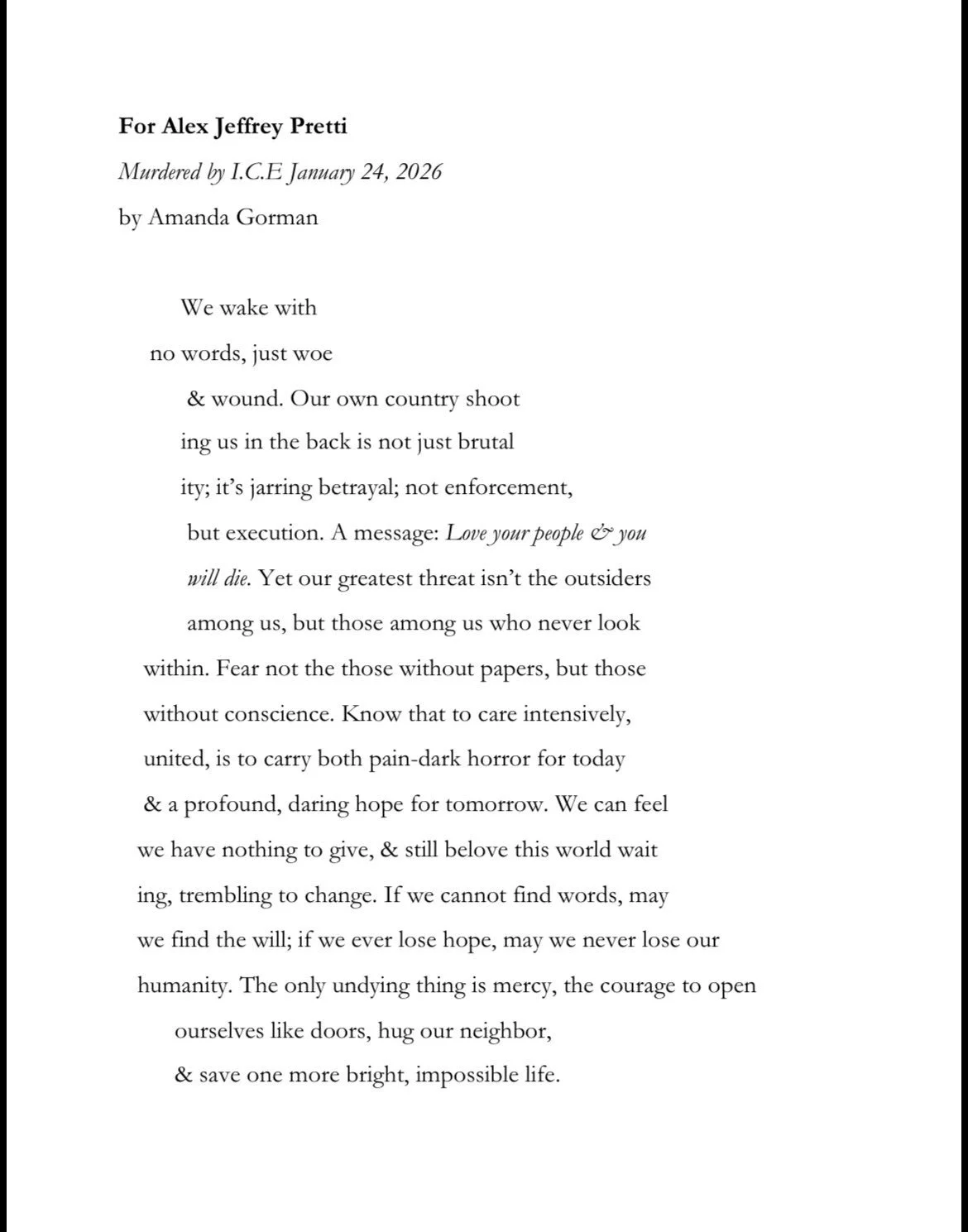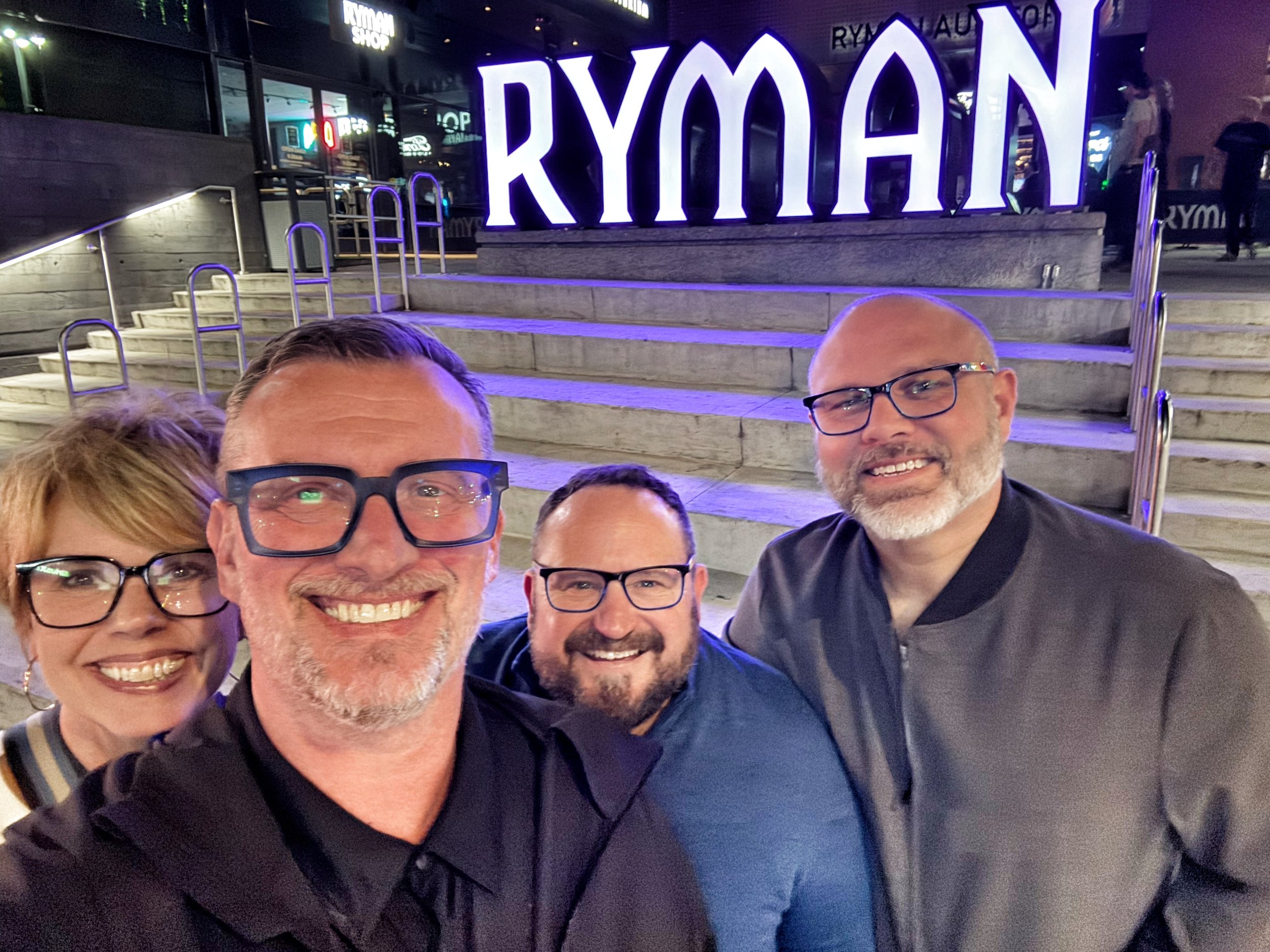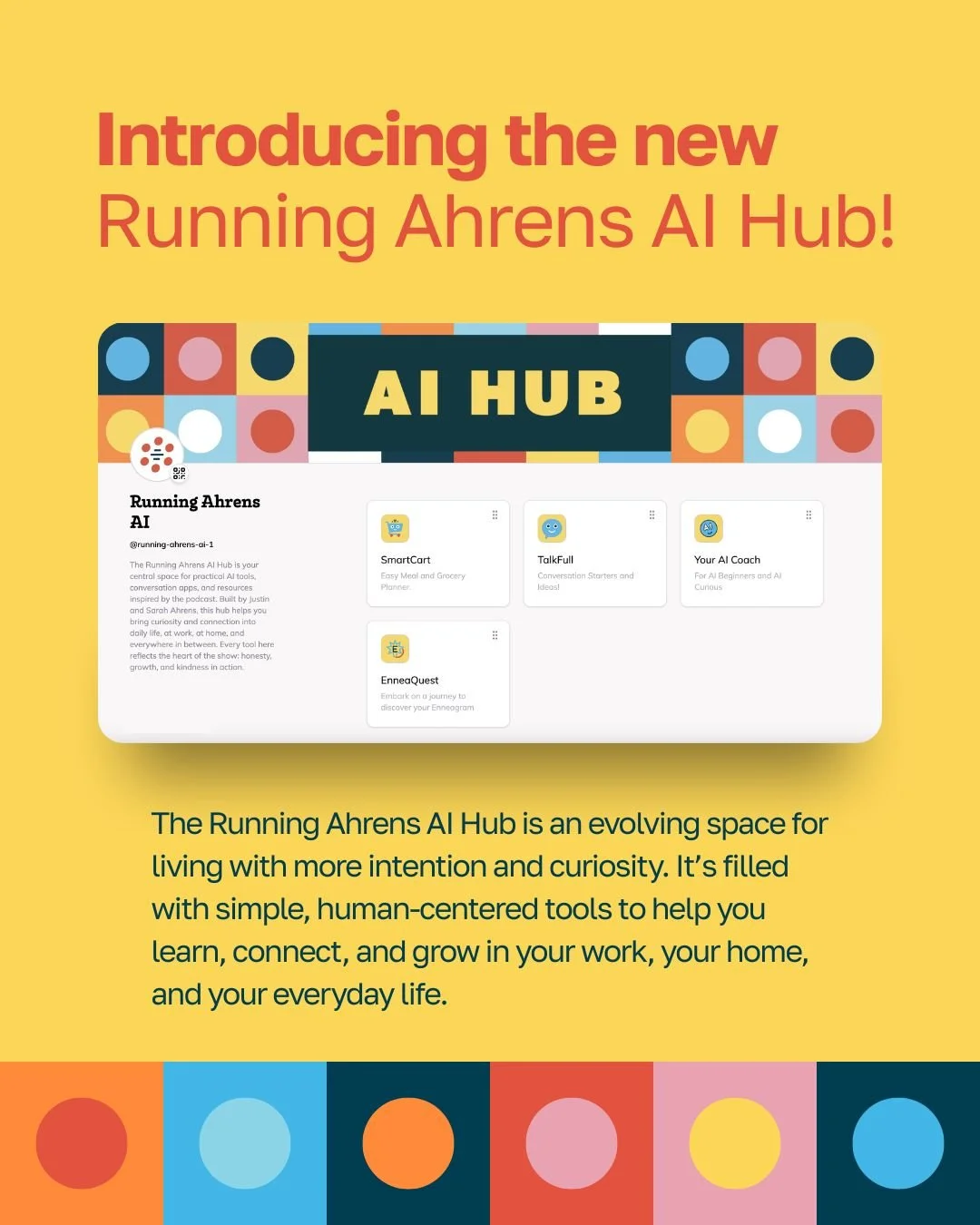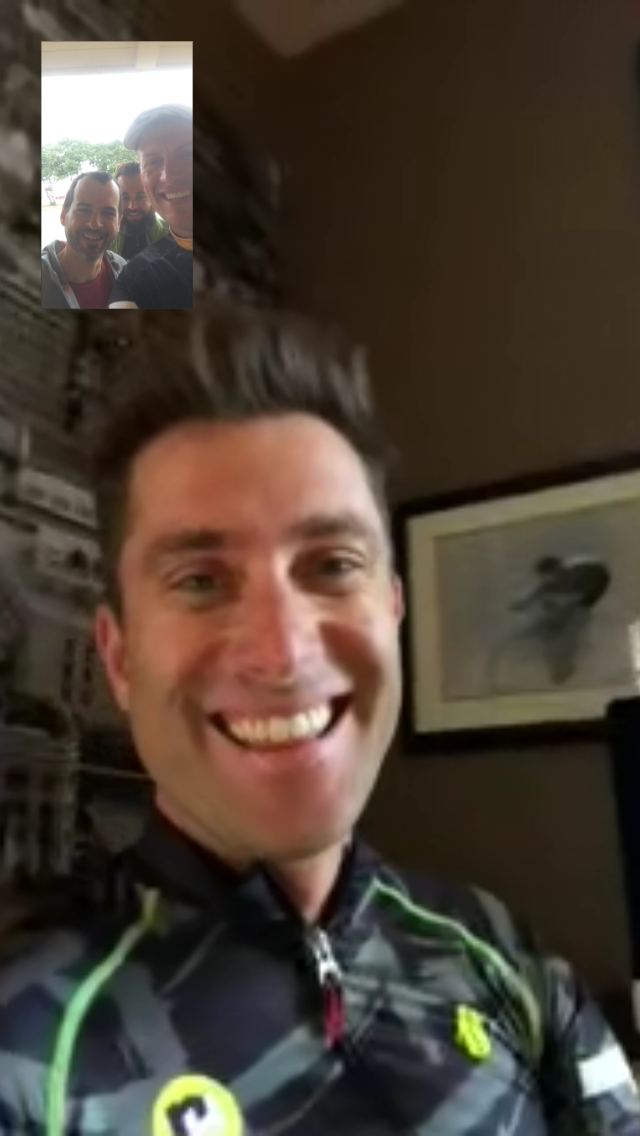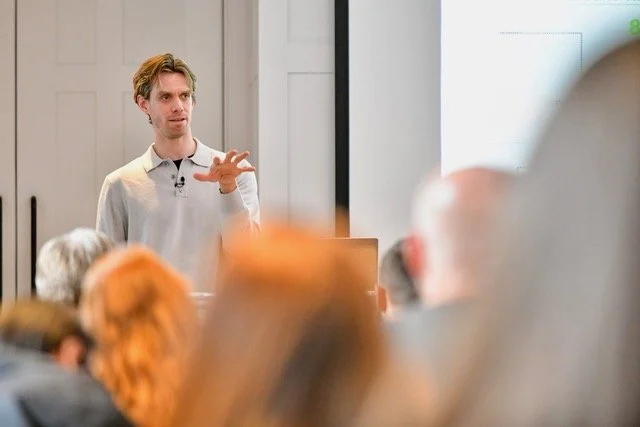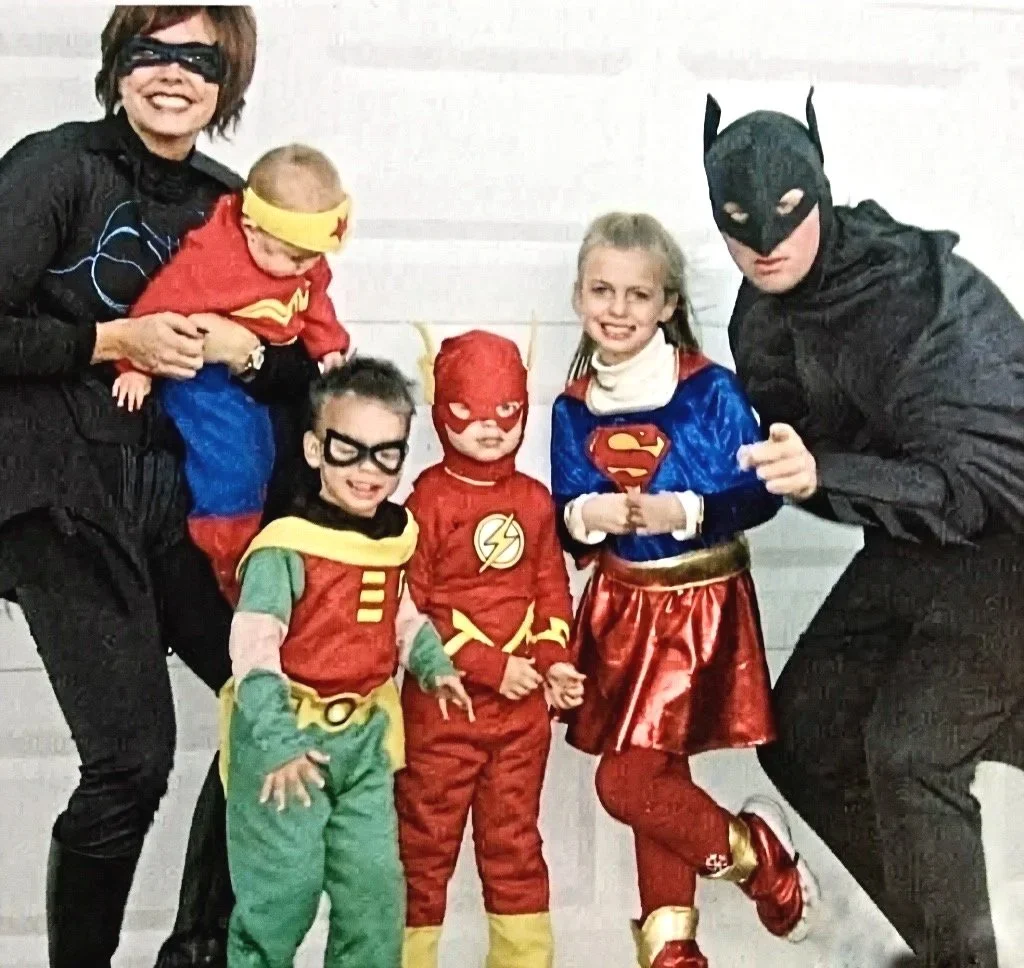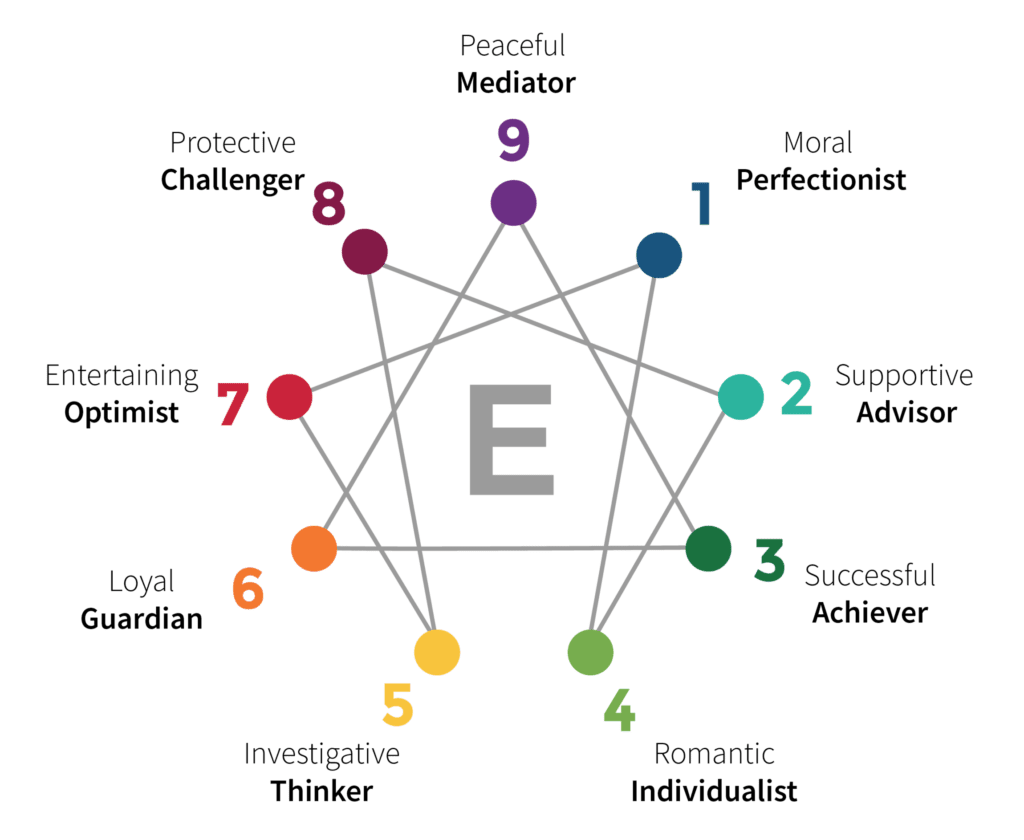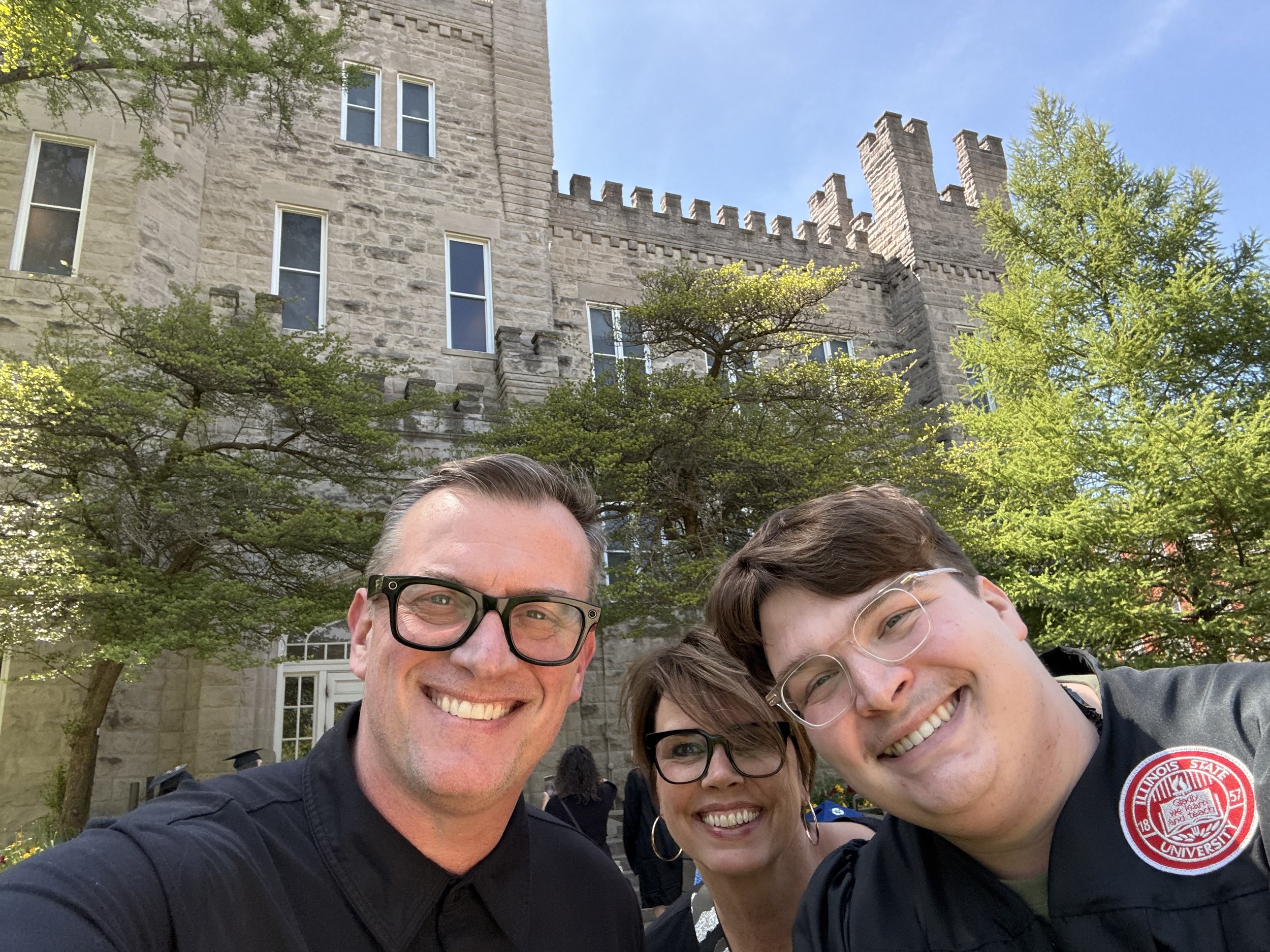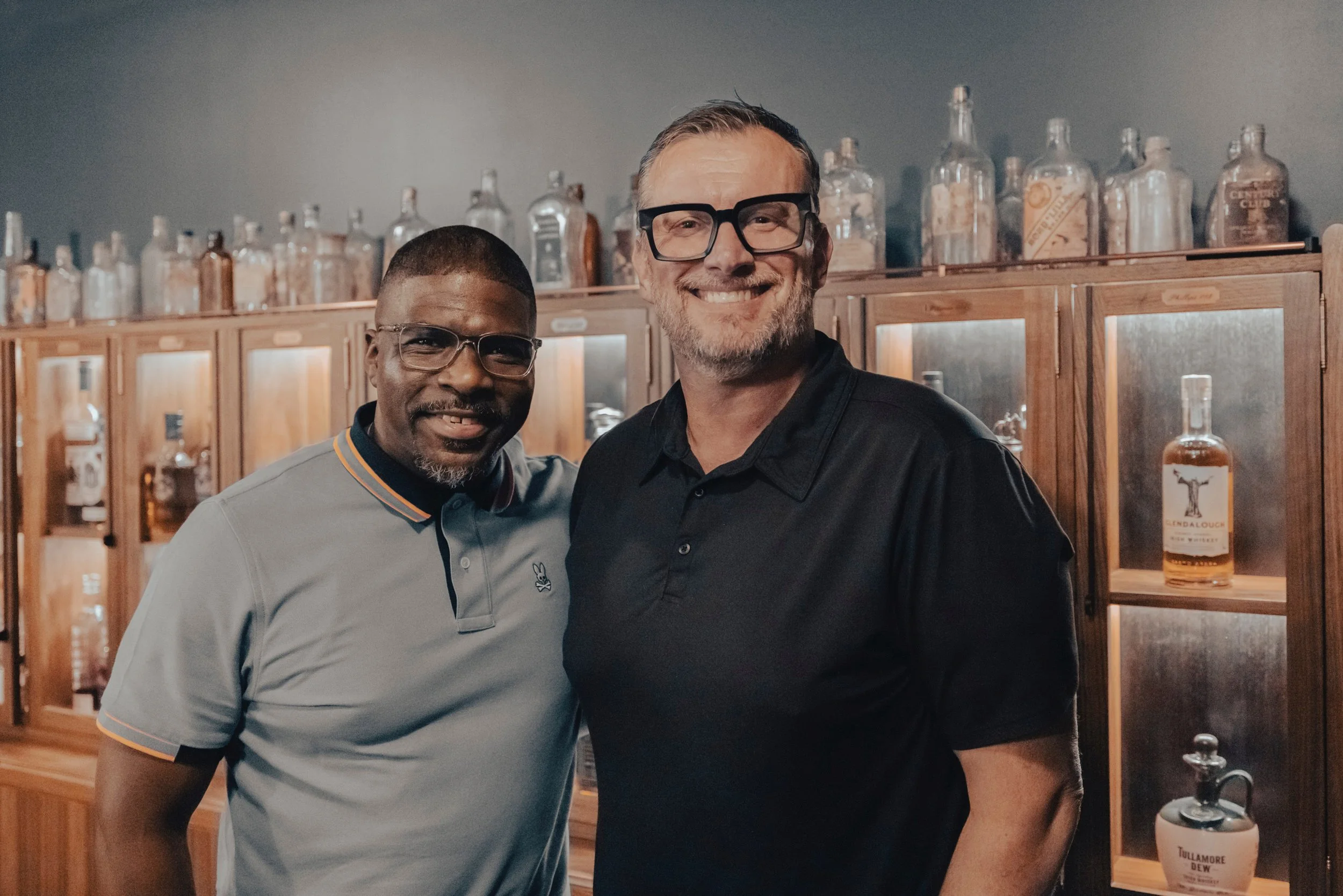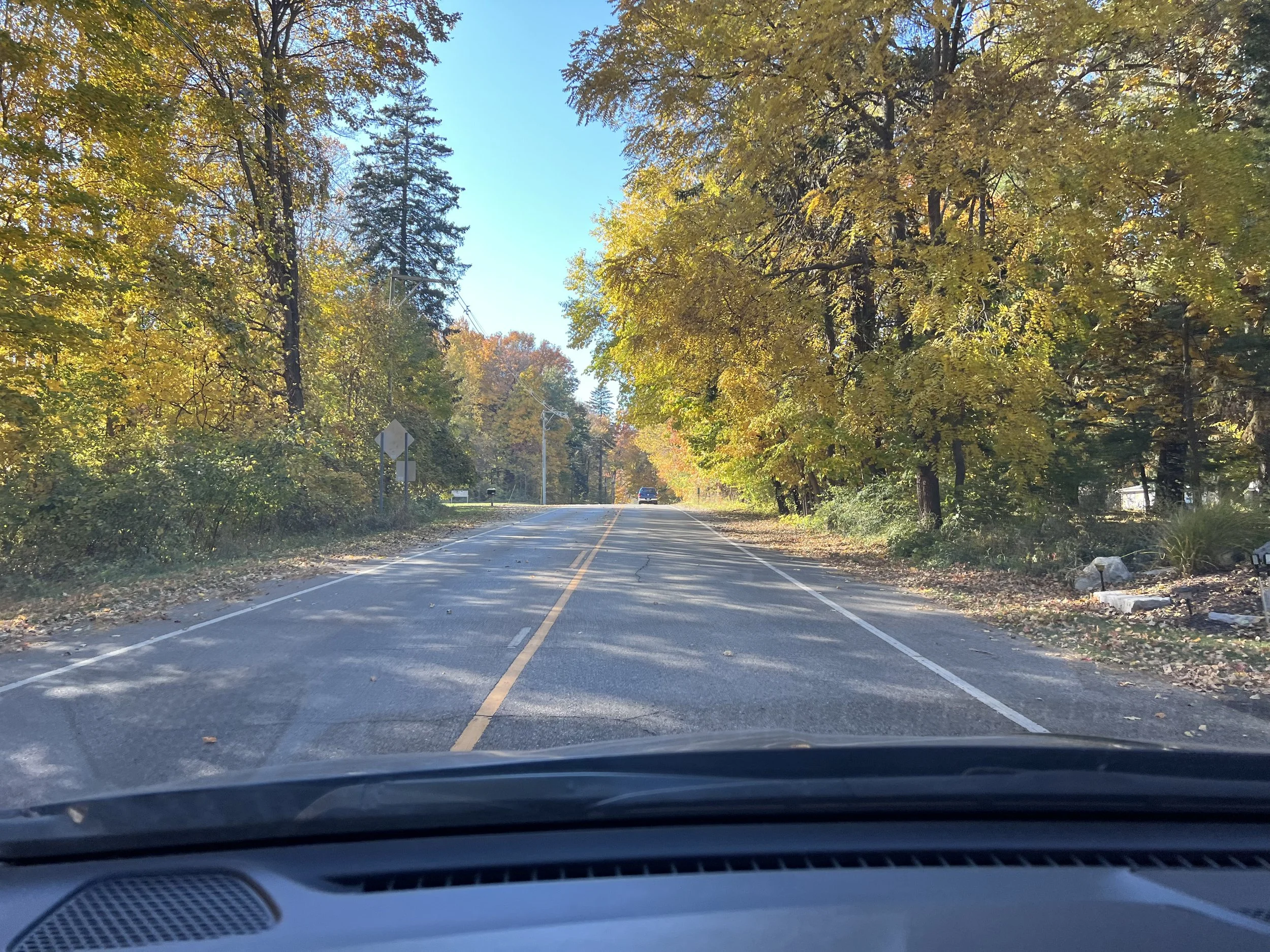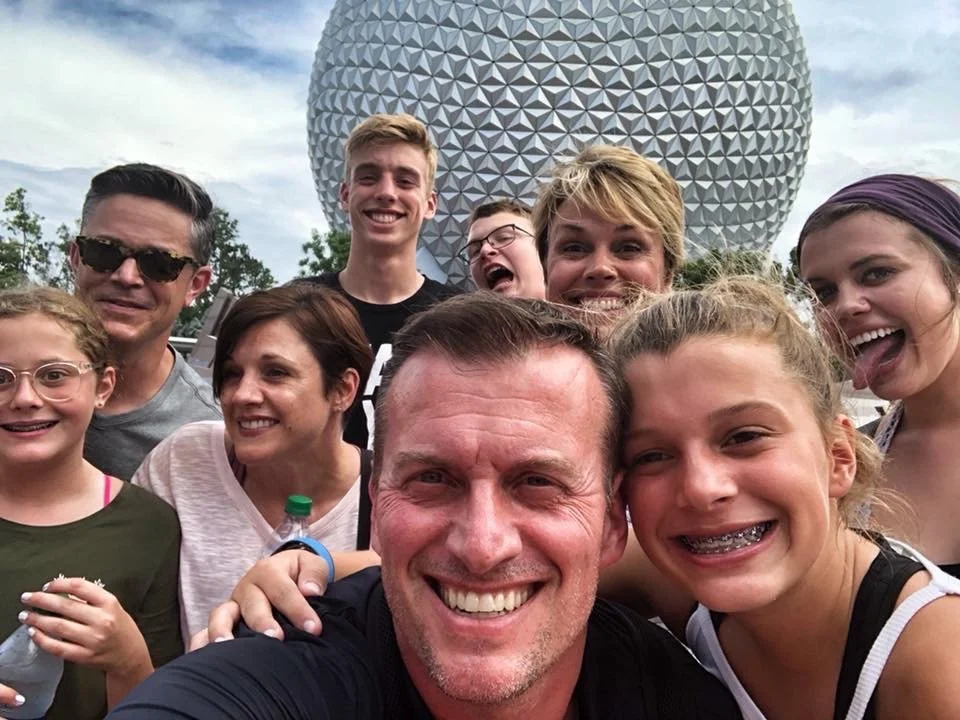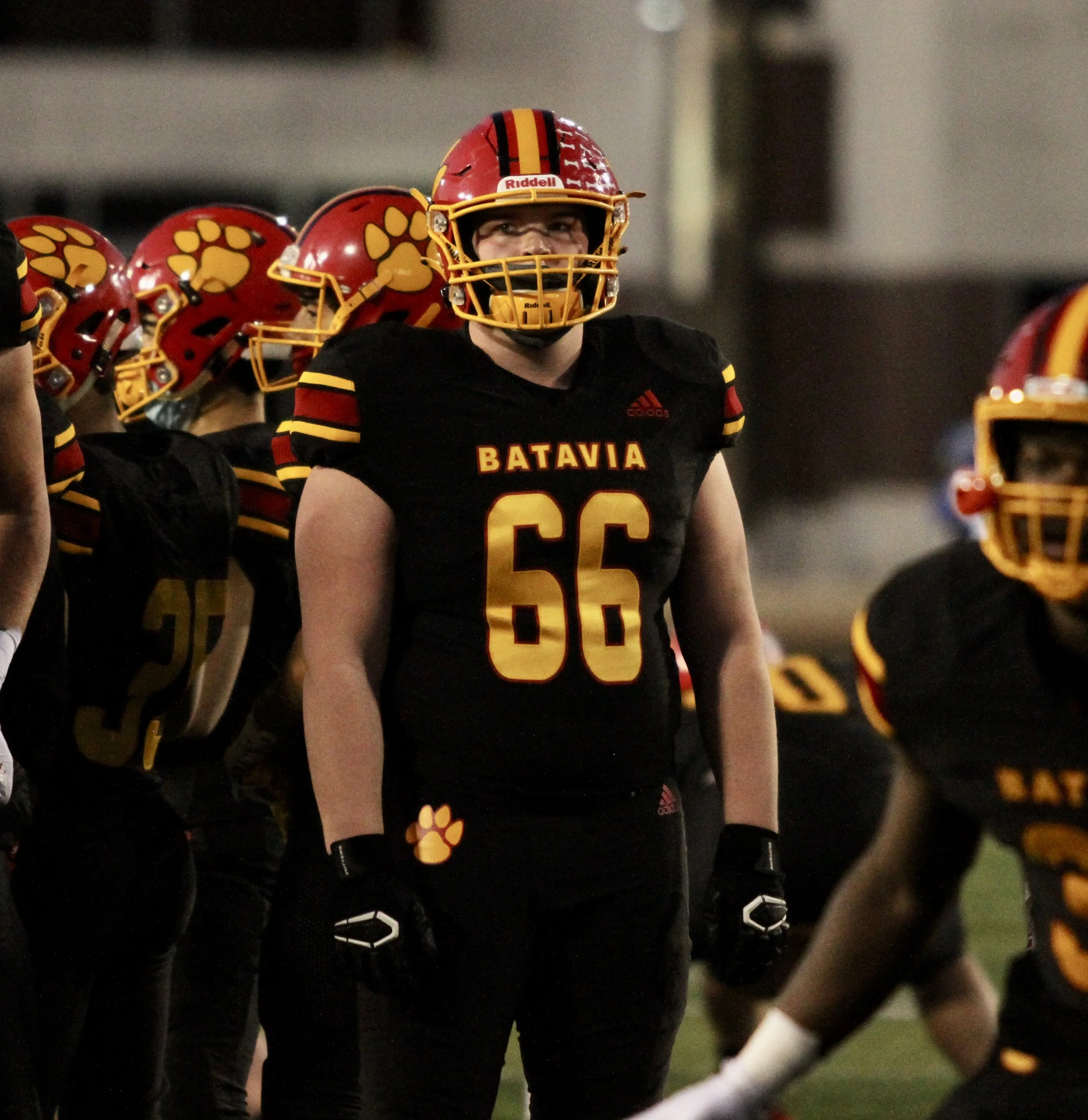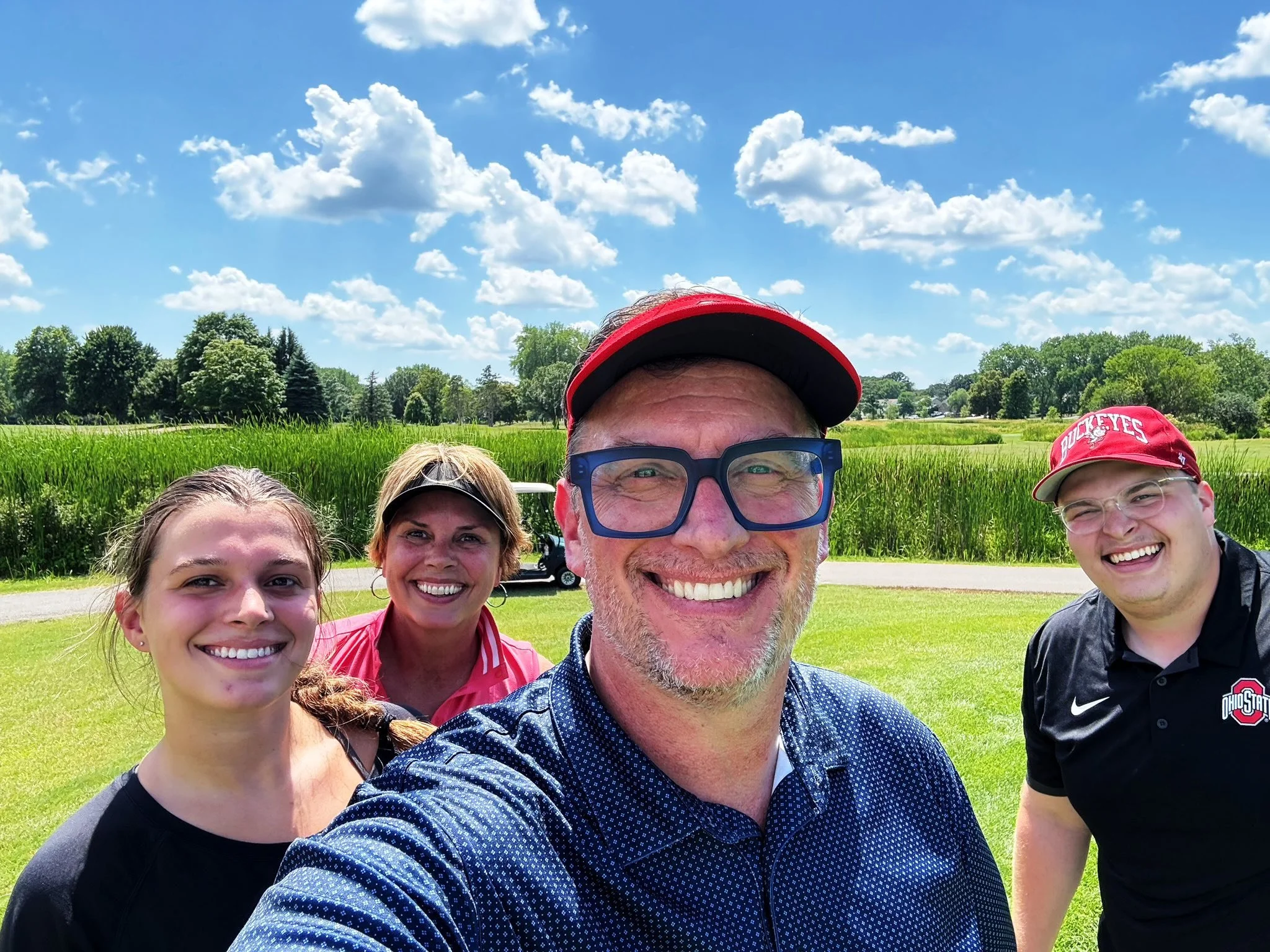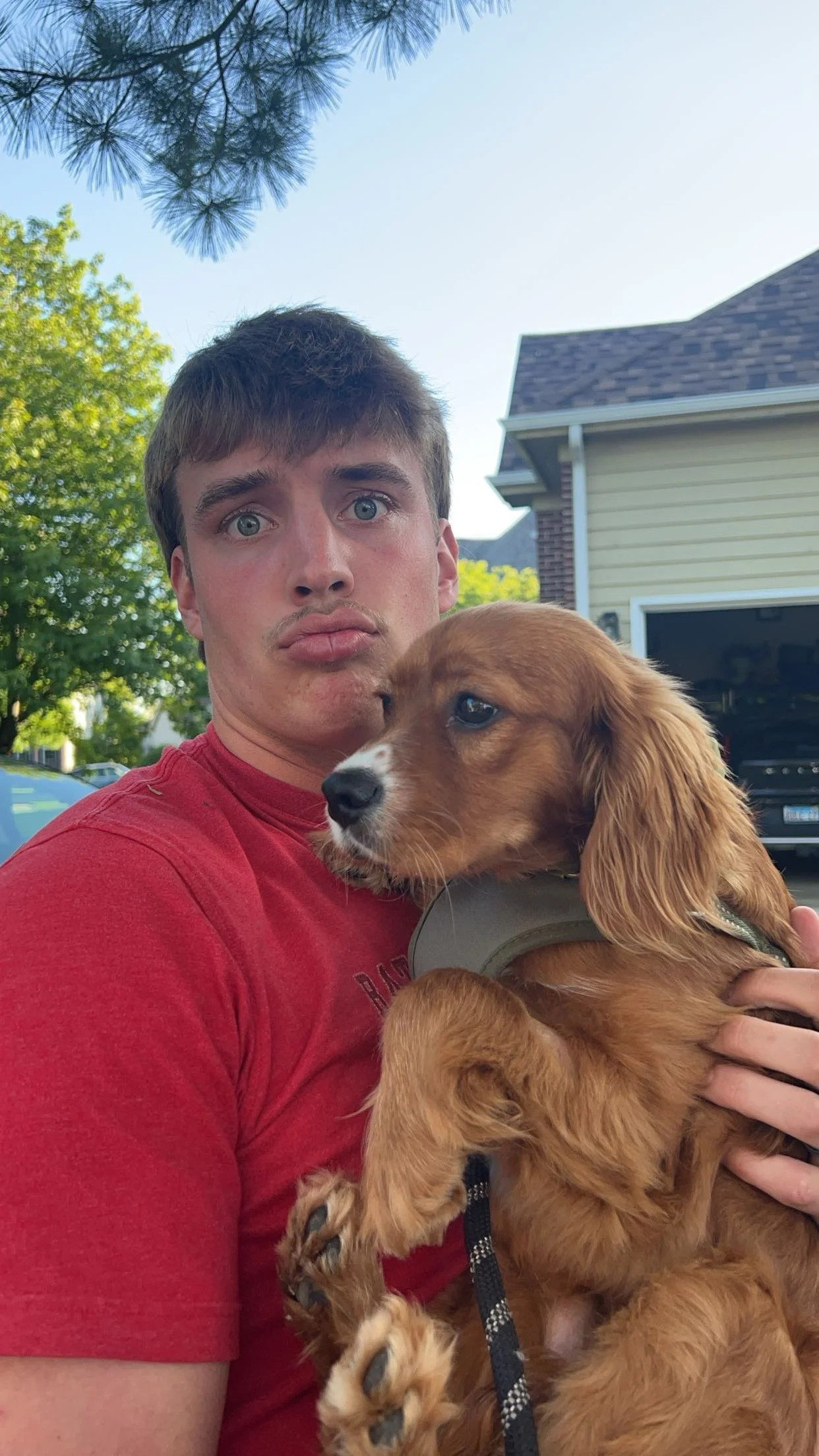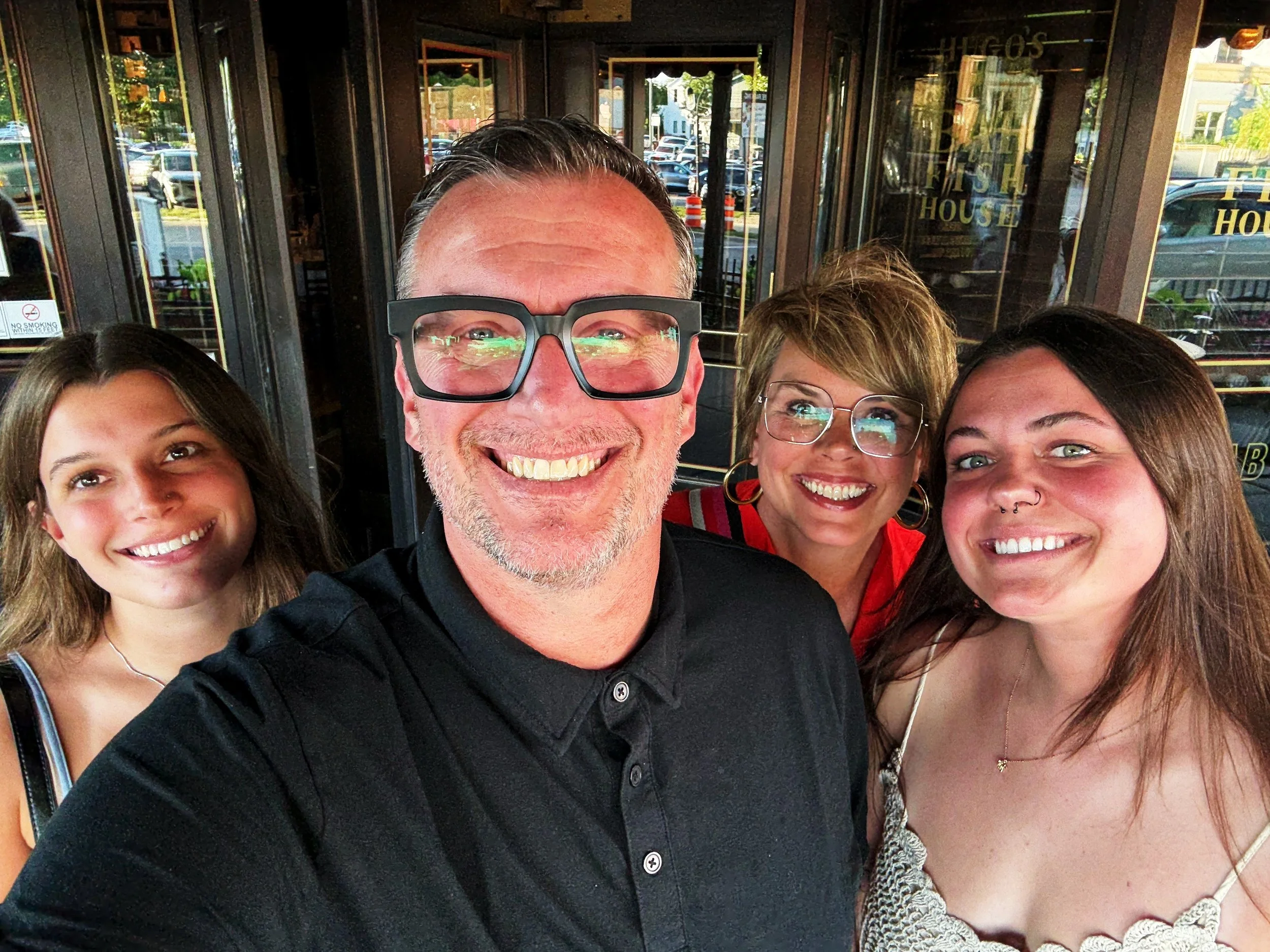When the Future Asks Who You Were
This is one of those moments when staying quiet is a choice. When things don’t sit right and our response matters. Not how we feel. What we stand up for. This is a reflection on voice, conscience, and the courage to stay human when truth asks more of us.
The Question That Won’t Go Away
There’s a moment that’s coming. It hasn’t happened yet, but it will.
Years from now, a younger relative, a grown kid, a grandchild, or maybe even someone who once worked for you will ask about this stretch of time. What was it like back then? What did you believe? What did you stand for? And then the harder question. What did you do about it?
That question isn’t about how we felt. It’s about what we did with the voice we were given. Because silence is not neutral. Silence is a position. Silence is complicit. History doesn’t record our internal wrestling or monologue. It records what we stood up for and spoke out against when it mattered.
Finding Your Voice Before You Raise It
Most of us don’t lose our voice all at once. We slowly talk ourselves out of using it.
We tell ourselves to wait. To gather more information. To not overreact. To keep the peace. To stay in our lane. To not make people uncomfortable. And before we know it, the moment passes and silence has done its work. Our message has been sent.
But there’s other signals we’re given long before certainty shows up. Our gut. Our heart. That internal knowing that something isn’t right, even if we can’t yet explain it perfectly.
Those signals matter.
Following your heart and gut isn’t recklessness or being “too emotional”. It’s the wisdom and drive that comes from lived experience. Learned from years of paying attention. From knowing the difference between inconvenience and injustice.
What Amanda Gorman Is Really Saying
That’s the space Amanda Gorman speaks into with her poem written in the wake of Alex Jeffrey Pretti’s death. She isn’t only grieving a life lost. She is putting words to what happens when people are asked to ignore their conscience in the name of order.
The poem draws a clear line between authority and humanity. Between enforcement and execution. Between following commands and protecting life. And then it turns outward, toward all of us.
When she writes, ‘‘Fear not those without papers but those without conscience”, she’s telling the truth plainly. The danger is not disagreement. The danger is blind obedience without love. Demanded compliance without discernment. Power enforced to protect the strong with no consideration to stand in favor of the weak. Her poem isn’t asking abut how we feel. It’s asking whether we will listen to that inner voice that tells us something is wrong, and whether we’ll act on it.
Trust What You Saw. Trust What You’ve Lived.
Most of us recognize that moment. The one when what we’re told doesn’t match what we’ve witnessed. When the explanation feels thin, even false. When your body registers dissonance before your brain starts negotiating it away.
That isn’t emotion. That’s wisdom.
Your years matter. Your experiences matter. They shape your moral clarity and compass. Then one day, when someone younger will ask what you did with that clarity. “I didn’t want to cause trouble” won’t sound like wisdom then. “I didn’t want to make anyone uncomfortable” won’t sound like good manners.
When Speaking Up Takes Different Forms
Using your voice doesn’t look the same for everyone.
For some, it’s speaking up in a room where silence is expected. Speaking up in a room for someone who it not there to defend themselves.
For others, it’s writing, calling, or showing up.
Sometimes it’s marching and carrying protest signs. Sometimes it’s walking quietly with others so they know and feel they are not alone.
Sometimes it’s donating, organizing, or protecting someone who is being targeted.
There is no single right form. The point is action.
Follow what is motivating you toward truth, reality, and being a good human. Let your heart and gut guide how you show up. Protest if that’s what’s stirring in you. Walk if that’s how you process. Speak if that’s where your courage is growing. Remember, courage is not the absence of fear, it’s taking that action, speaking those words, showing up at that rally even though you are afraid.
What matters is that you don’t stay still. Don’t stay silent.
People Are Paying Attention
Your kids are watching this closely. So are your neighbors, your friends and your community. Not your posts, but your presence.
They’re learning whether your compassion is performative. Whether dignity is defended or negotiated. Whether love of neighbor is something we talk about or something we practice.
They won’t ask if you were comfortable or even safe. They will ask, did you stand up for people when it mattered? Did you give a voice to those that desperately need it?
When Leadership Is Tested
If you lead people, employ people, or influence people, then you must realize this moment is not abstract.
Leadership shows up in who you protect, what you tolerate, and whether truth is allowed to prevail or quietly buried to preserve order and comfort. Neutrality does not preserve peace. It preserves power. Regardless of who possesses it.
Standing up for dignity is not political. It is moral. It is human.
The Story We Hope to Tell Later
One day the question will come.
Our hope should not be that we feel good about ourselves. Our hope should be that we can confidently say we listened to our conscience. That we followed our heart and gut toward truth. That we used our voice and privilege in ways that protected dignity and affirmed humanity. That we loved our neighbor in real, tangible ways, even when it cost us comfort, approval, or certainty.
This is not about being loud for the sake of noise. It is about refusing to let fear, lies, or dehumanization have the final word.
Truth matters. People matter.
Love your neighbor.
Just keep running…and I know we are all tired,
Justin and Sarah
Season 1 Reflections: Stories That Help Us Feel Seen
What started as a way for Sarah and me to stay connected in a new season grew into something we didn’t expect. Through honest conversations and shared stories, people felt seen, more aware, and less alone. Season 1 reminded us that story is how we connect, make meaning, and remember we’re not running alone.
As Season 1 of Running Ahrens comes to a close, we wanted to pause and say thank you.
When Sarah and I started this, it was simply a way for us to stay connected in a new season of life. Our kids were growing up. The house felt different. Conversations needed more intention. Sitting down to talk became a way to slow things down and stay close.
We didn’t expect it to grow into something more.
Over the season, something simple kept happening. People told us they felt seen. They felt more aware of what they were carrying. They felt less alone. And that shifted this from something personal into something shared.
Here are a few moments that brought people together.
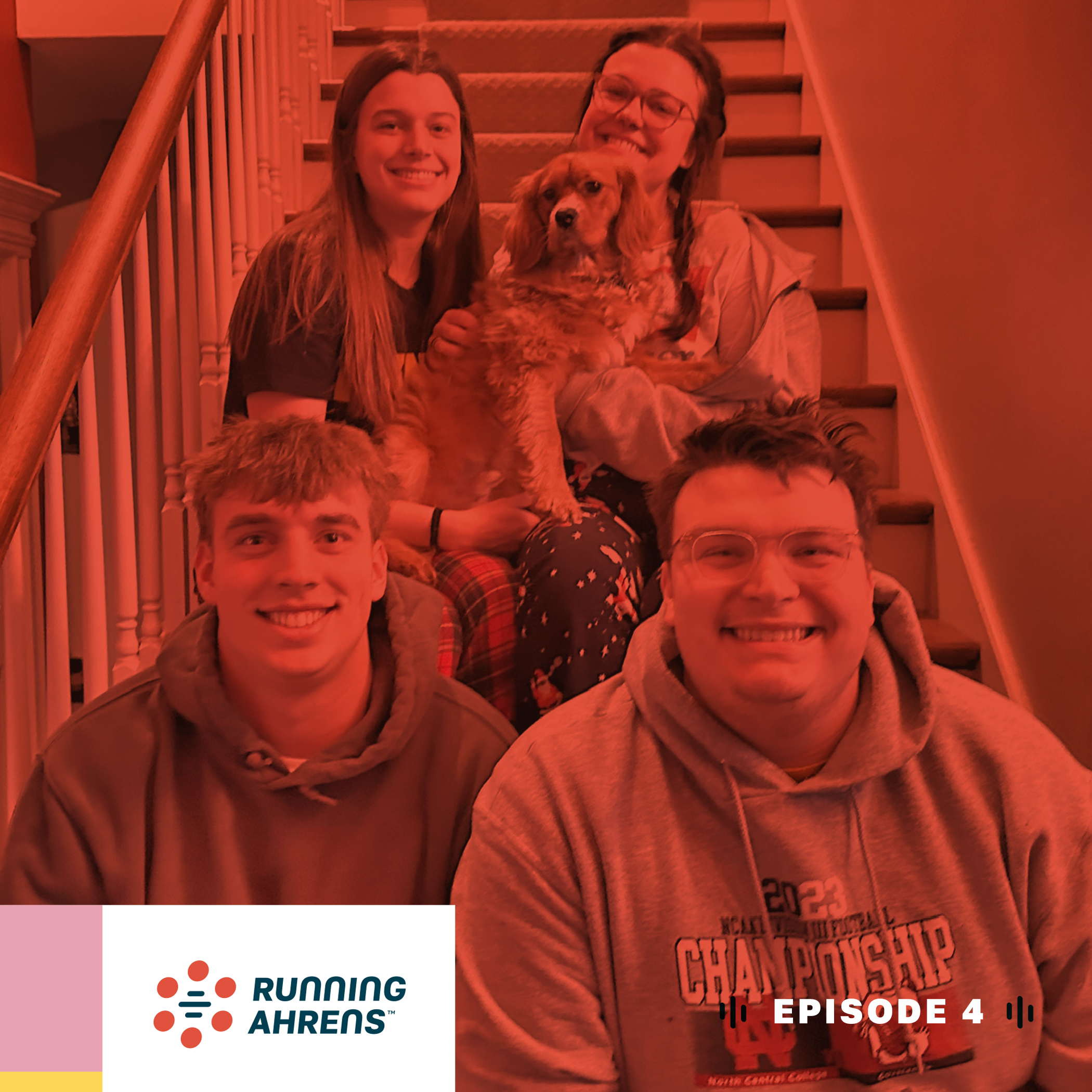
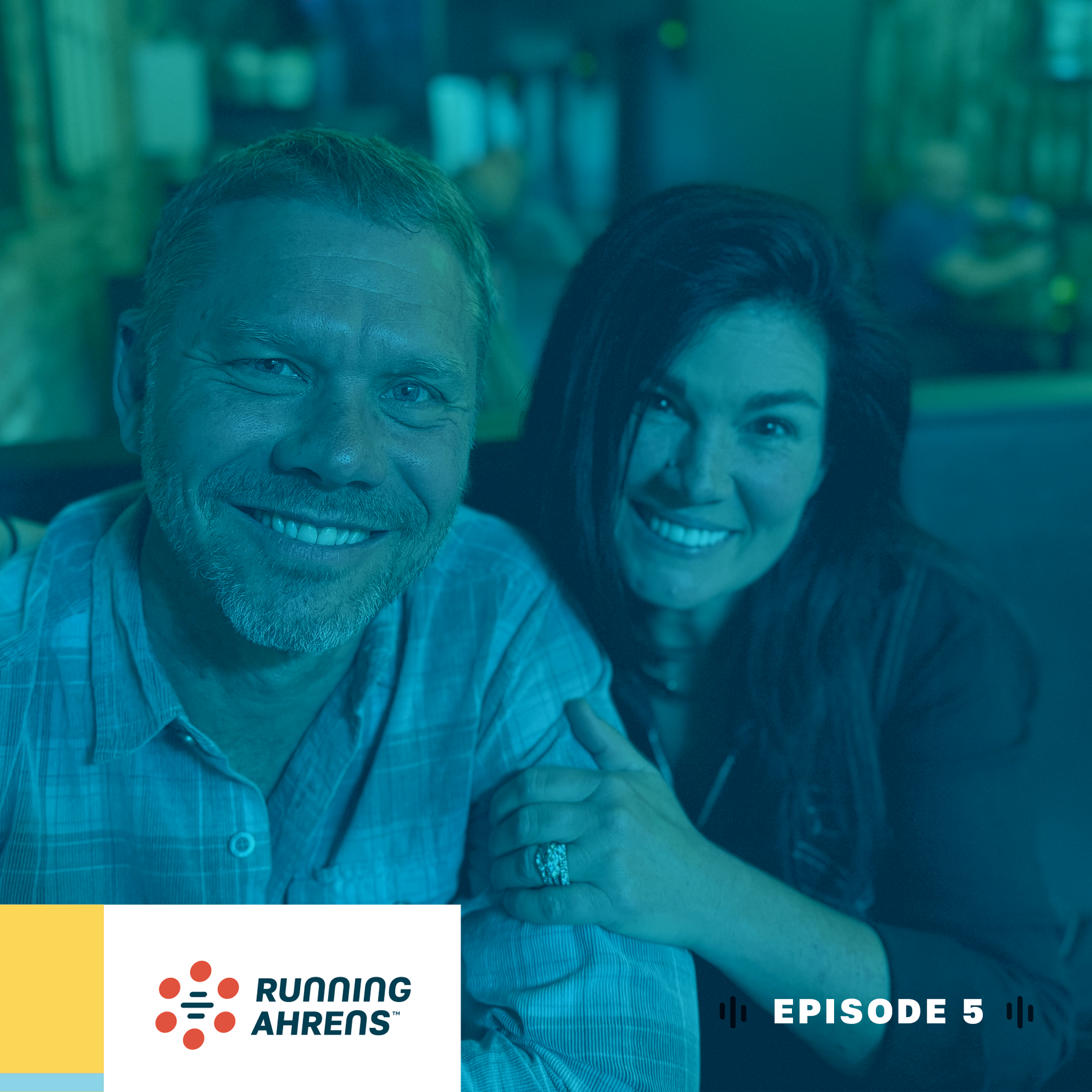
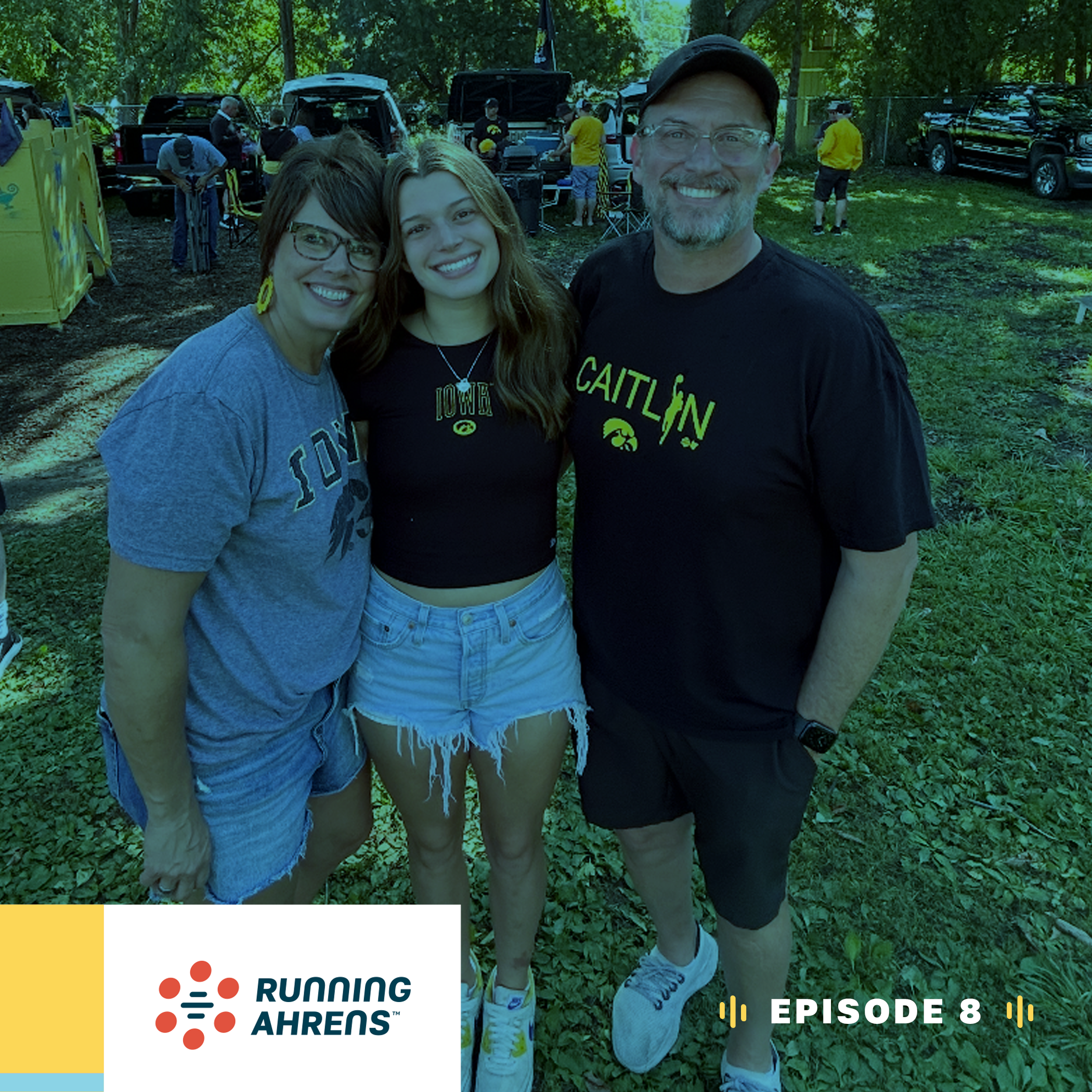
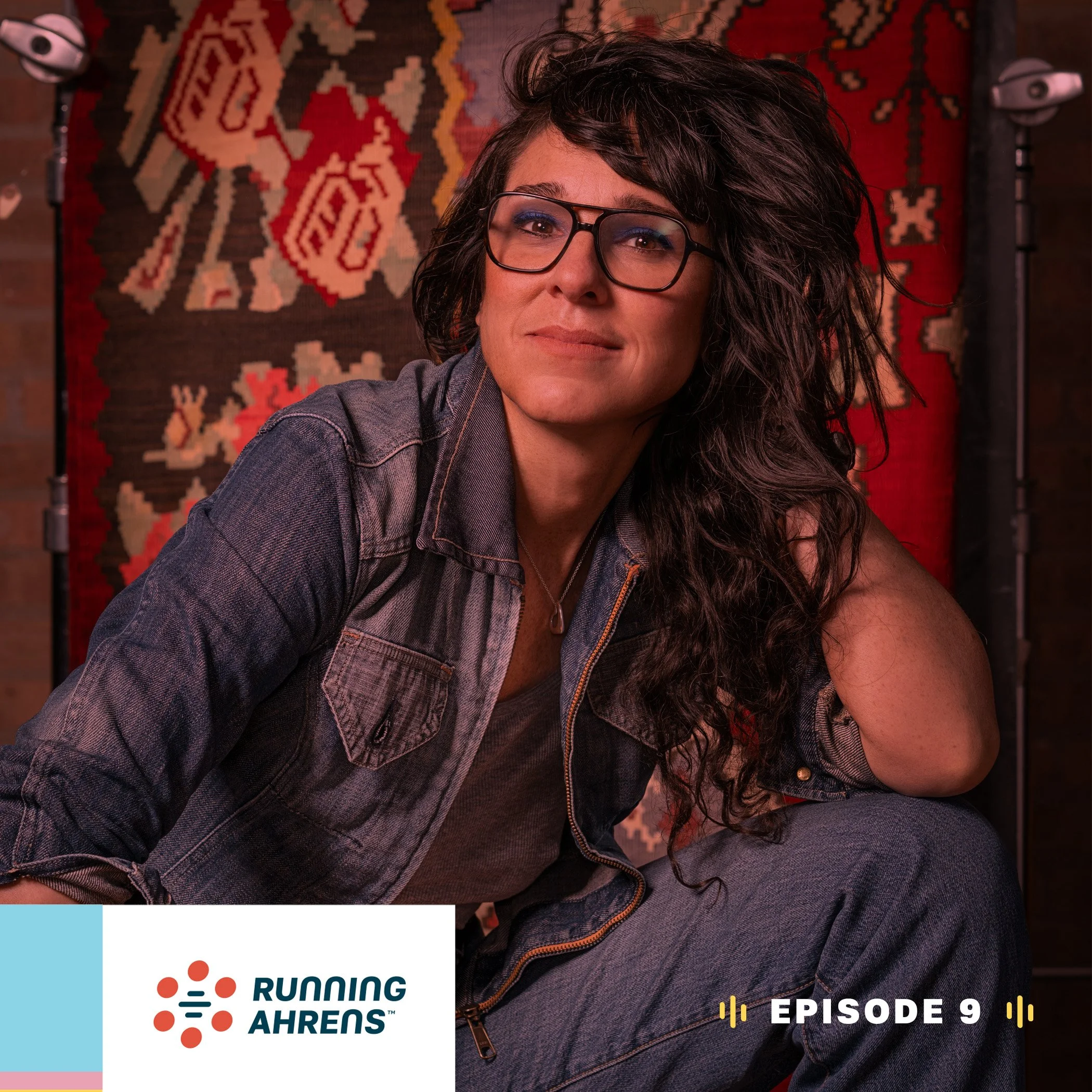
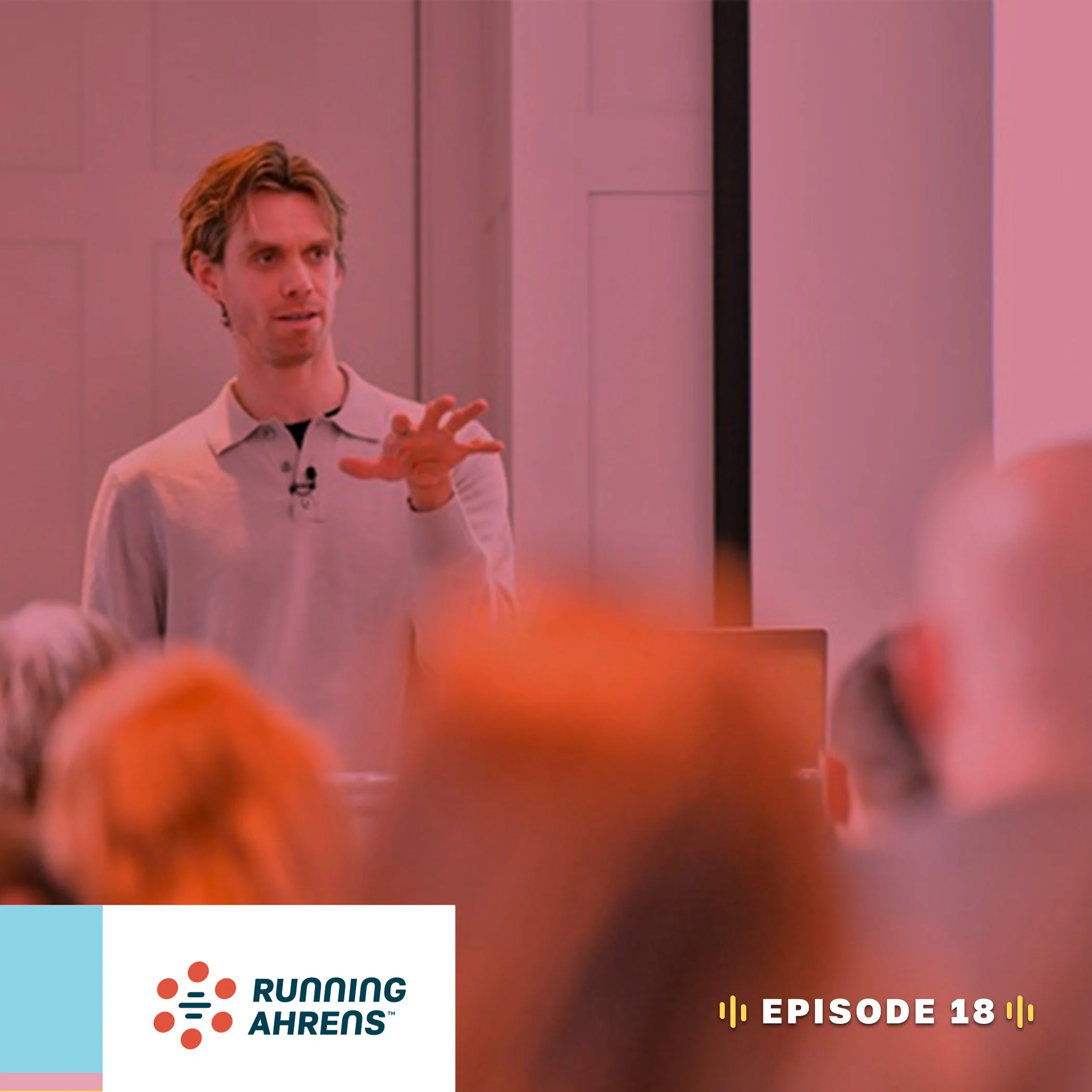
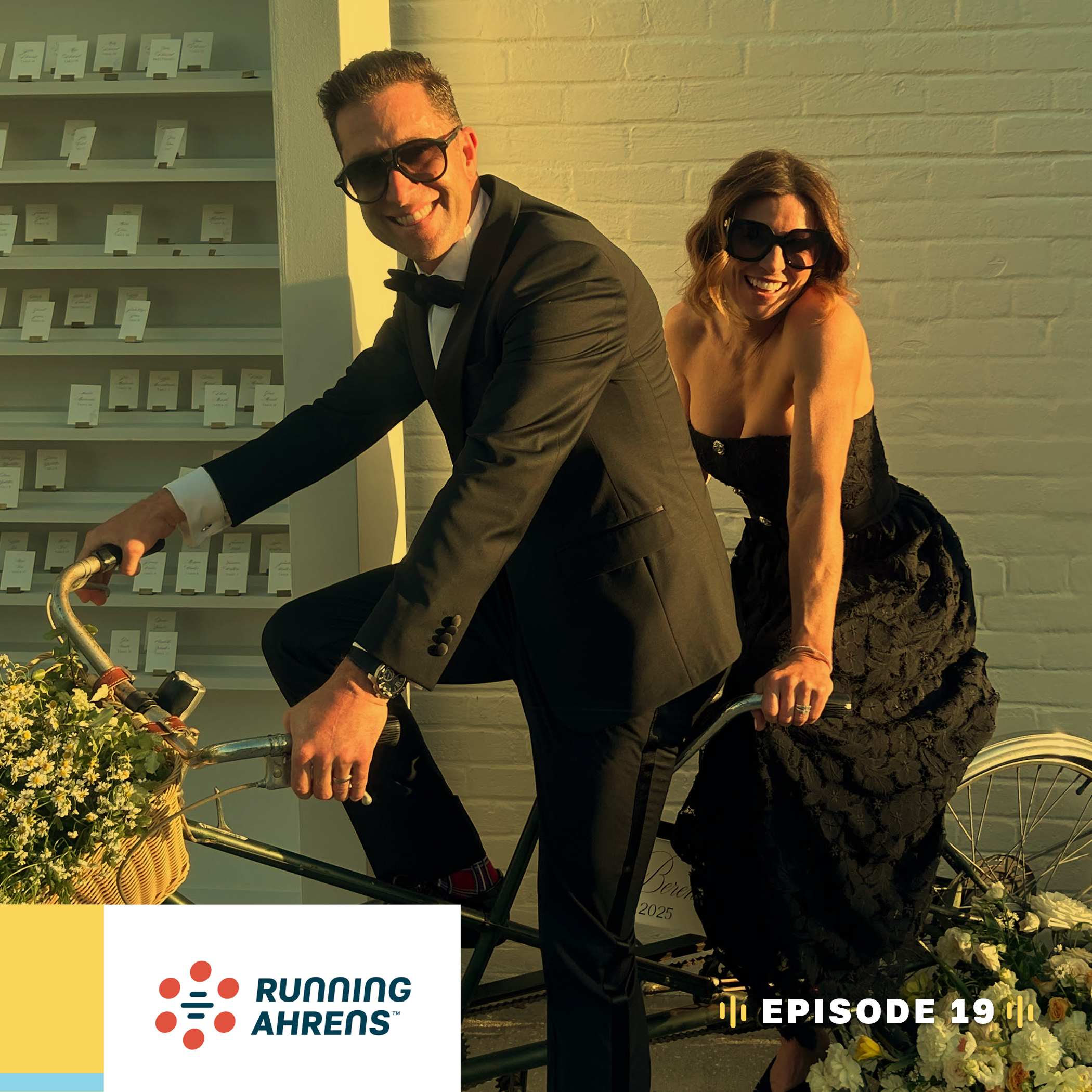
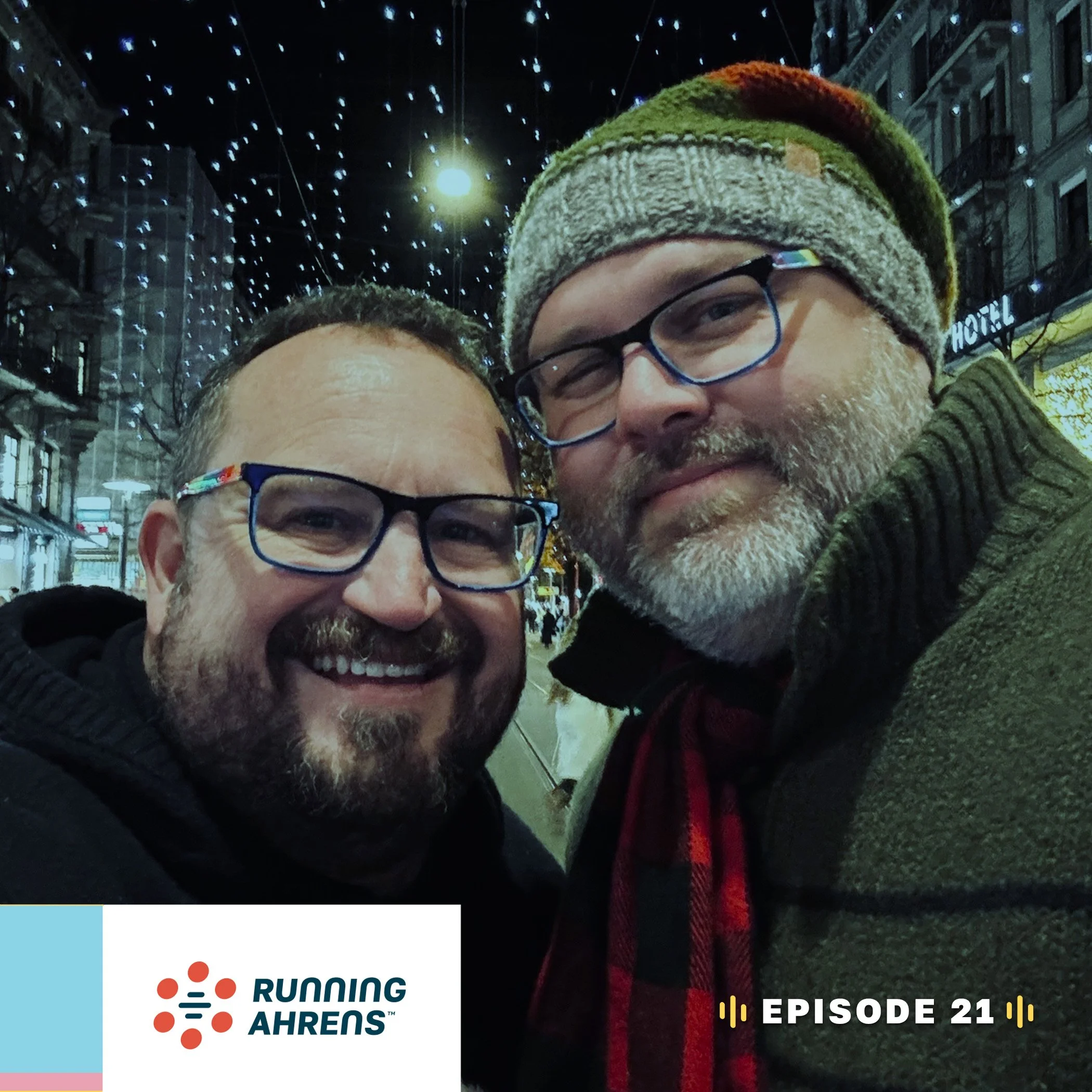
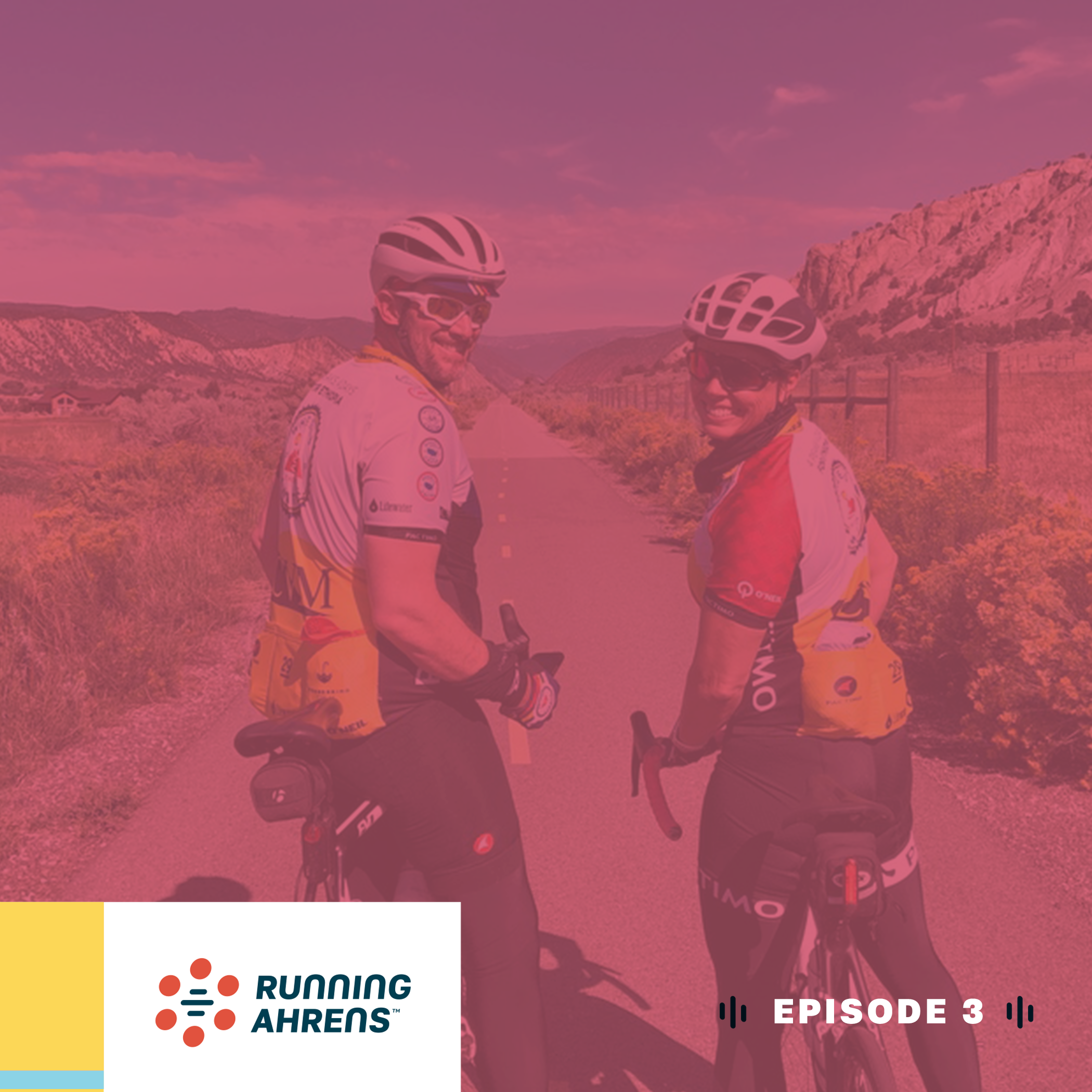
Episodes You Spent Time With
These conversations weren’t about answers. They were about awareness. About naming real seasons of life and realizing we’re not the only ones living them. Here are this seasons top episodes:
• From Sidelines to Self-Awareness
• Parenting in the Launch Years
• Meet the Ahrens
• Baby of the Family, Boss of the Moment: Ava Takes the Mic
• The Enneagram and Us
Guest Stories That Connected Us
Season 1 also gave us the privilege of listening to others share their lives with honesty and courage.
• Kelly Grief, growth, and learning how to keep going.
• Uncle Deon What it looks like to show up for chosen family.
• Jeff & Ed What it looks like to choose love clearly and honestly.
• The Vande Veldes Building a life together through grit and commitment.
• JJ & Jamey When everything changes and you decide to rebuild anyway.
• The Rowans Quiet strength. Deep love. The kind of story that defies the odds.
Stories of love, loss, friendship, rebuilding, and choosing each other again. Nothing polished. Nothing performative. Just real people telling real stories. And somehow, those stories pulled us closer together.
Stories That Needed the Page
Some moments asked for more space than a conversation allows. Writing gave us that space.
• When Your Child Comes Out and the World Shifts in Front of You When parenting asks more of you than you expected and gives more back than you imagined.
• Both Sides of the Family: How Friendship Becomes More How real friendship is built slowly, through shared life and showing up.
• What Becomes of Us After the Breaking What it takes to begin again when life doesn’t follow the plan.
• What We’ve Learned From Running Ahrens (So Far) What surprised us when we chose honesty over polish.
• Grateful for the Rowans: A Story of Love, Resilience, and Starting Again Young love, near loss, and the quiet courage of choosing each other again.
We write to think through, more deeply, what we’ve had the privilege to hear and experience, and to give readers the same space to do that for themselves.
There’s a reason this kind of sharing works. Science tells us our brains are wired for story. When we hear or read a real story, we don’t just take in information. We connect. We recognize ourselves. We make meaning. Story has always been how humans remind each other, “You’re not alone.” That hasn’t changed.
What started as a way for Sarah and me to stay connected has become something even more fun and meaningful. A place where awareness grows. Where people feel seen. Where stories bring us together.
If you listened, read, shared, or quietly sat with a story this season, thank you.
We’re really glad you’re here.
Season 2 is coming, and we can’t wait to keep running together.
Justin and Sarah
When Your Story Changes
Inspired by JJ and Jamey’s story, this piece explores what happens when your life no longer fits who you’re becoming. Justin reflects on identity, faith, honesty, and the quiet courage it takes to name the truth. A human, relatable look at change for anyone trying to build a life that feels real and aligned.
As promised we made it down to Nashville so see JJ and Jamey :)
Every so often, you meet people whose lives hold up a mirror to your own. That’s how we felt talking with JJ and Jamey.
Their story is about coming out later in life, building a blended family, and learning to tell the truth after years of trying to fit a version of themselves that no longer worked. But underneath all of that is a question every one of us faces:
What do you do when your life no longer matches your soul?
You don’t have to be gay to feel that question.
You don’t have to come out to understand it.
You just have to be human.
Most of us eventually wake up to a quiet truth: something about our life, our faith, our identity, or our relationships needs to shift. And we’re afraid to name it because we don’t want to disappoint the people who shaped the earlier version of us. Or the community we came from. Or God or our greater belief.
Sometimes we’re even afraid of disappointing ourselves.
And yet, the story of nearly every adult I know is this:
Change comes for all of us.
Truth comes for all of us.
And when it does, we either hide or we grow.
JJ and Jamey chose growth, even when it meant uncertainty, fear, and starting over. They didn’t get clean answers. They didn’t get an easy path. They got grief, long conversations, therapy sessions, school transitions, slow rebuilding, and a lot of days where they had to ask themselves whether honesty was worth it.
But here’s the part that stays with me:
They also found peace.
They found joy.
And they found a life that finally felt like their own.
Not because it was simple.
But because they stopped pretending.
And this is where their story touches all of us, regardless of who we are or who we love.
Living Your Faith When Life Gets Honest
Many of us grew up with a faith that promised clarity and clean edges.
Then adulthood happened. Loss. Identity shifts. Marriage challenges. Parenting. Jobs that no longer fit. Beliefs that once held steady now feel too small.
Plenty of straight people I know aren’t wrestling with sexuality; they’re wrestling with:
A marriage that feels disconnected
A longing for a different kind of work
A church that no longer reflects their lived experience
A version of spirituality that doesn’t make room for real life
A sense that who they are becoming no longer fits the old script
We avoid naming these things because change feels like betrayal.
Letting go feels like failure.
Telling the truth feels like risking the life we’ve built.
But here’s what I’m learning, both from JJ and Jamie and from my own life:
Faith was never meant to freeze you in place.
Faith is meant to make you honest.
Faith is meant to make you whole.
Whatever faith means to you whether you call it God, Spirit, your greater belief, or a deep inner knowing the point is not to hold the old version of yourself together at all costs.
The point is to listen to the truth rising inside you.
Freedom rarely shows up without cost.
But it does show up with alignment.
The Hardest and Most Honest Work
The hardest part of change isn’t the change itself. It’s the courage to admit what’s real.
JJ and Jamey reminded me that truth-telling is not a single moment.
It’s a lifelong practice. A posture.
A way of honoring your own soul.
You may never walk their path, but you probably know your own version of this:
Where in my life does something no longer fit?
What truth am I afraid to say out loud?
What version of myself am I still trying to protect?
What would freedom look like in my actual life right now?
What is God or my greater belief inviting me to see, release, or trust?
And maybe the deepest question:
What if the spiritual work isn’t proving you’re right, but becoming someone honest enough to grow?
Why Their Story Matters for All of Us
JJ and Jamey didn’t just come out.
They came forward.
Into honesty.
Into alignment.
Into a life they could actually breathe in.
Most of us will never face their exact crossroads.
But all of us eventually face a moment where truth asks something from us.
Maybe that’s the real invitation of their story:
Where is your life asking for honesty, courage, and a deeper kind of freedom?
Because the moment you stop pretending, the moment you allow your story to shift,
the moment you trust God or your greater belief with who you’re becoming…
That’s the moment you finally step into a life that fits.
May you find the courage to keep telling the truth, and the grace to keep becoming.
Thanks for running with us,
Justin and Sarah
#RunningAhrens #FamilyConversations #Identity #ComingOutStories #ModernParenting #RealTalk #Courage #ChosenFamily #BeingHumanKind
From Grocery Lists to Strategy: AI for Family and Small Businesses
Speaking together at Chipp Con SC reminded us how much of our life overlaps. We work in different worlds, but we build side by side. With three of our four kids back home, we’re documenting this season for us and for them. Watch the highlight videos and explore the Running Ahrens AI Hub.
One of my favorite parts of Running Ahrens is how much of our life overlaps. We have different jobs. Different rhythms. Different strengths. But we keep finding ourselves building things side by side.
Chipp Con SC was another one of those moments.
Sarah and I stepped on stage together to talk about how we work, parent, plan, argue, and dream as a team. Not because we have it all figured out, but because this is how our life actually works. Our family conversations bleed into business ideas. Our business ideas follow us home. And somehow it shapes the way we grow together.
This rhythm might not work for everyone, but after a lot of years, we’ve learned it’s simply who we are. We like business. We like solving problems. We like trying things. We like making experiences that feel meaningful. And doing it together has become a natural part of our life, especially now as our kids move in and out of the house and we figure out what this next season looks like.
And it’s been a surprise how much we’ve enjoyed doing this podcast. Hearing from so many of you has given us even more ideas and more energy. It’s funny. We thought all of this was happening because we were about to be empty nesters, but most of you know three of our four kids are back home. So we’re documenting this adventure in real time, both for us and for them, so they can see what’s possible if this is something they ever want to pursue.
We laughed about how a simple request for grocery help turned into a new way of thinking. We talked about what happens when a marriage becomes a place where ideas can land, get tested, and sometimes grow into something bigger.
If you want to see a little of our rhythm on stage, the highlight videos are below. And if you want to see some of the tools and ideas we’ve been building together, check out the Running Ahrens AI Hub. It’s a small window into the things we’re creating as a team.
Thanks for reading!
#RunningAhrens #FamilyAndBusiness #WorkingTogether #MarriageAndWork #ParentingAdultKids #CreativeLife #LifeInProgress #SmallBusinessLife #ChippConSC #AIForGood
When Your Child Comes Out and the World Shifts in Front of You
Our daughter came out, and the world shifted in front of us. A few friends faded away. But our family grew tighter, kinder, and more honest. What felt scary at first became one of the clearest gifts in our parenting.
When our daughter Mackenzie came out to us, it happened in a small booth at a college bar. No script. No warning. Just a shaky voice, her brother’s hand on her arm, and then the truth she had carried alone for too long.
“I like girls and boys.”
I can still feel the air go still.
Not because we loved her any less.
But because our understanding of her life, her future, and even our own faith widened in one instant.
Sarah reached for her hand.
I sat there working through shock and love at the same time.
That was the day our family changed. Not because of who she is, but because of who we were being asked to become.
The First Grief
There is a kind of grief that happens in the quiet moments after your child comes out. It isn’t grief about them. It’s grief over the expectations you built without realizing it.
The future you pictured.
The traditions you assumed.
The story you thought you were all in together.
Parenting forces you to release the script you wrote in your head so you can embrace the life unfolding right in front of you.
When we got home that night, we sat in silence for a long time. Then we finally said it out loud.
“This is her life. She gets to be herself. Our job is to love her better.”
Something in both of us softened. A door opened that we didn’t know was locked.
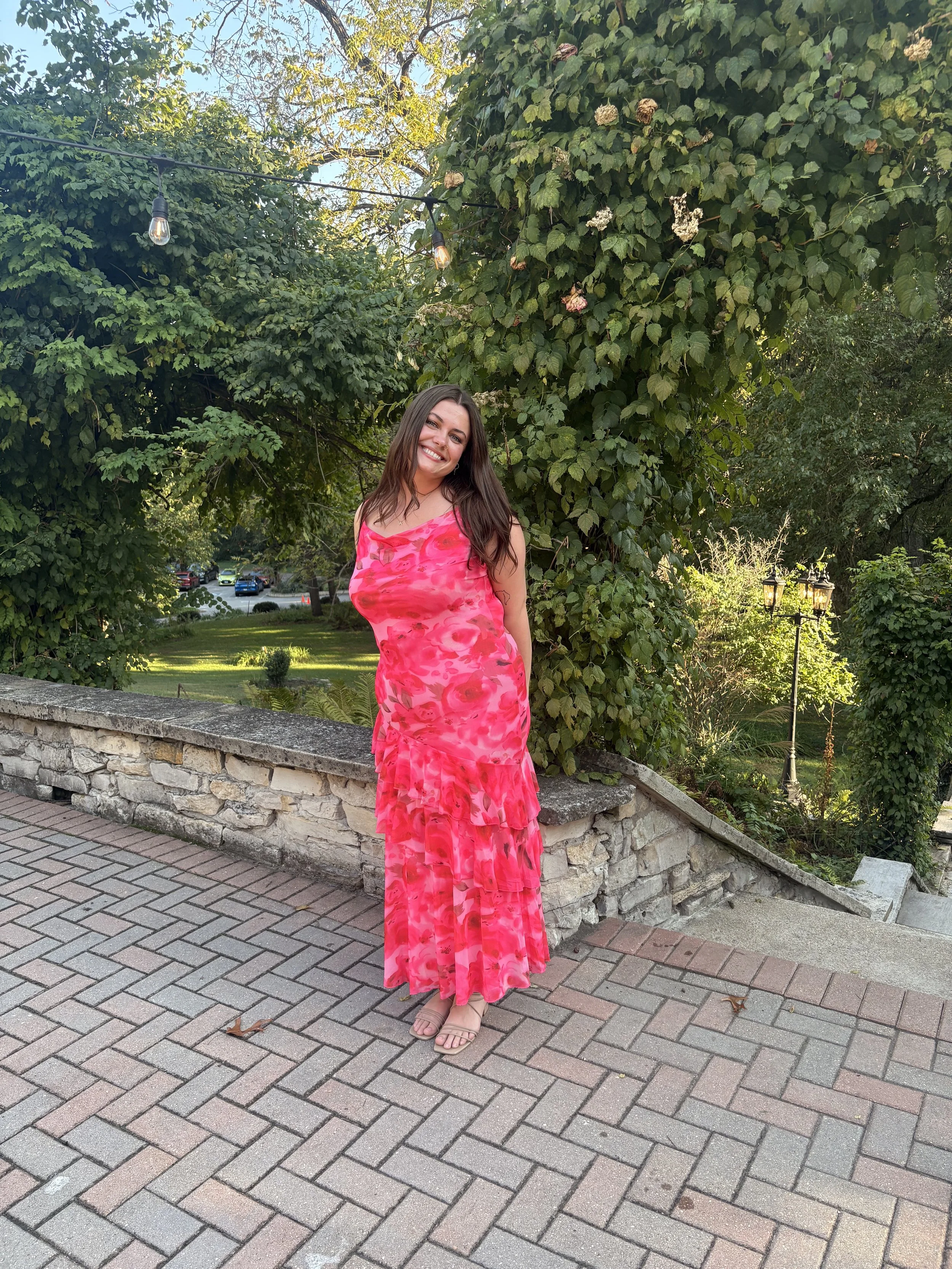
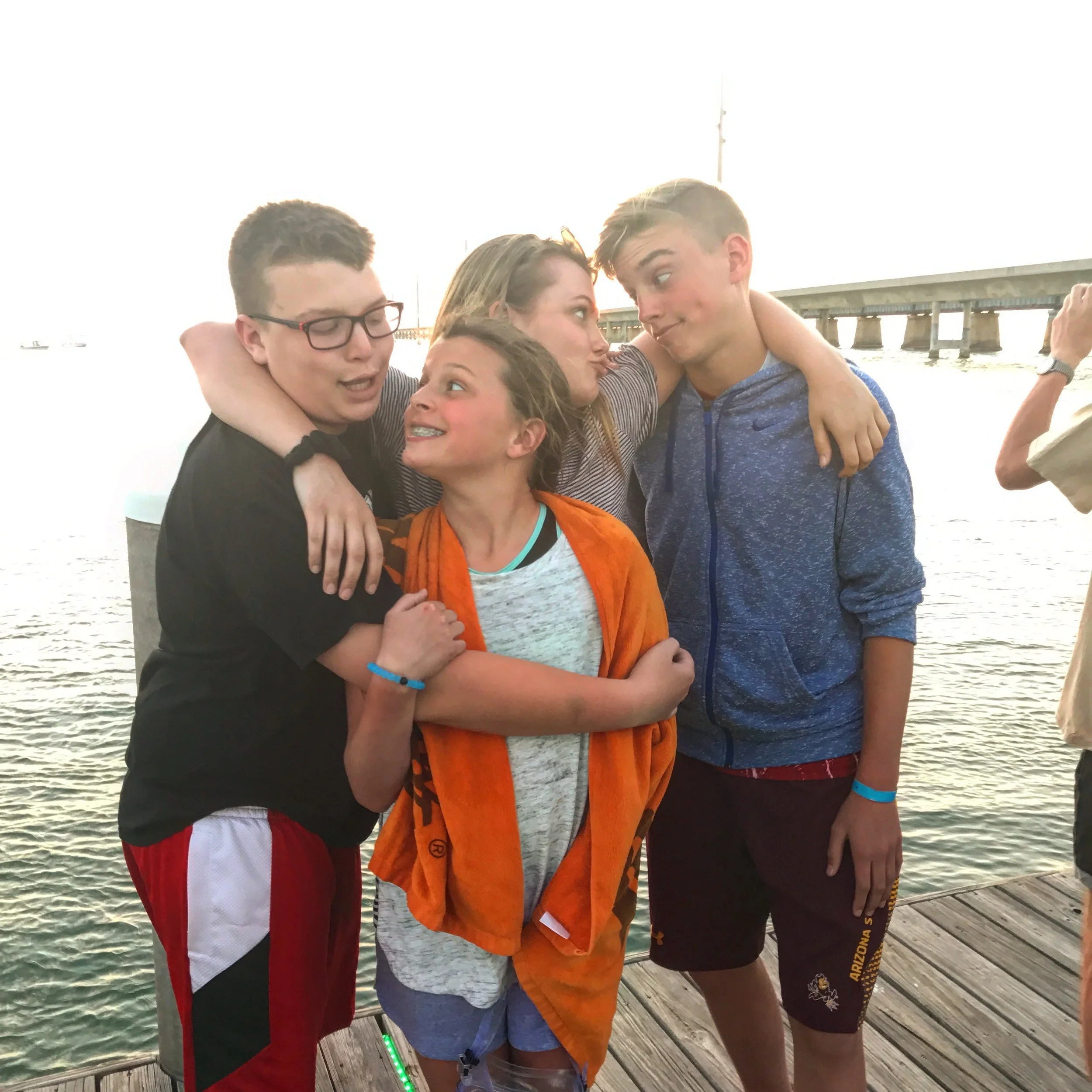


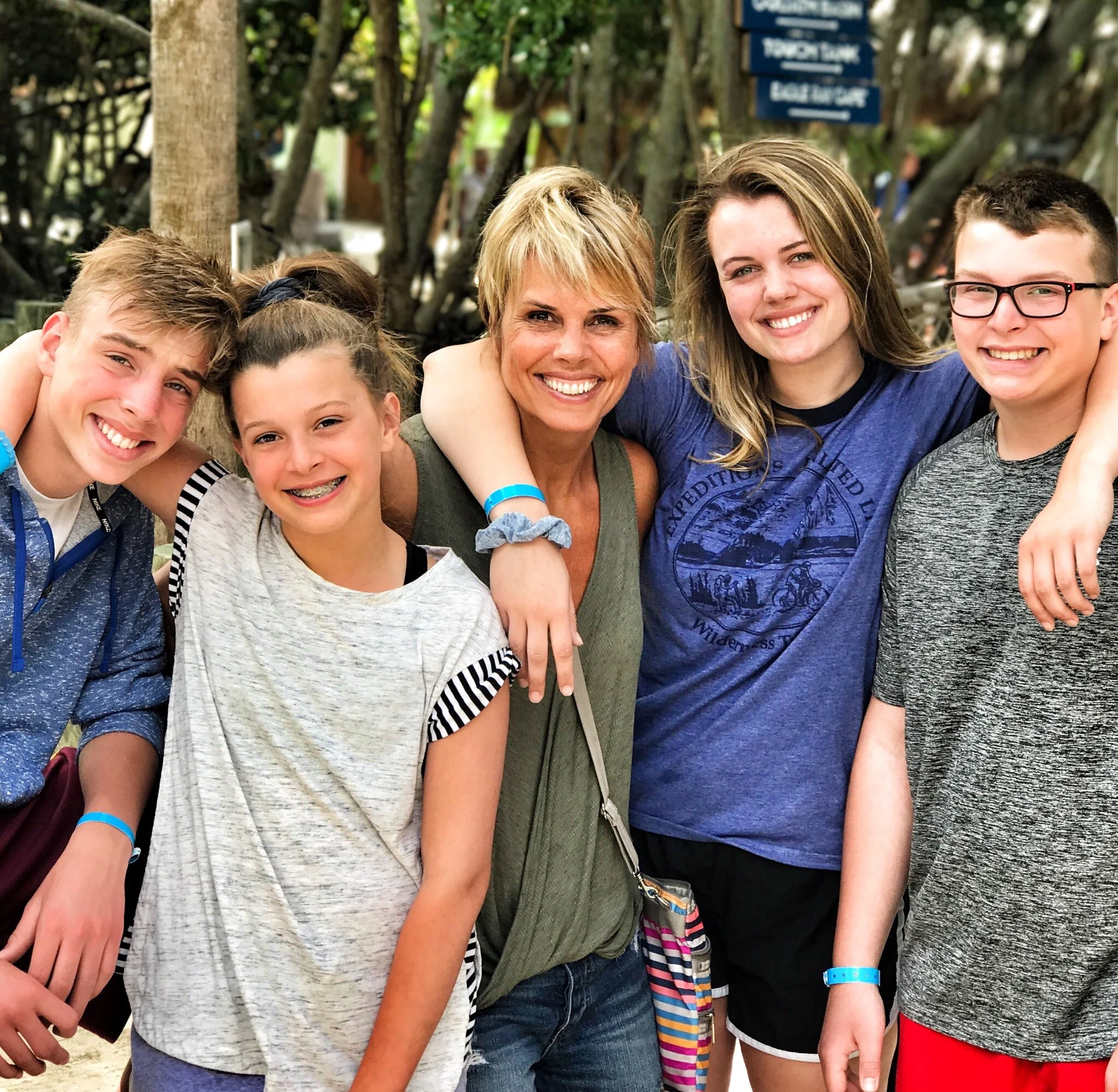
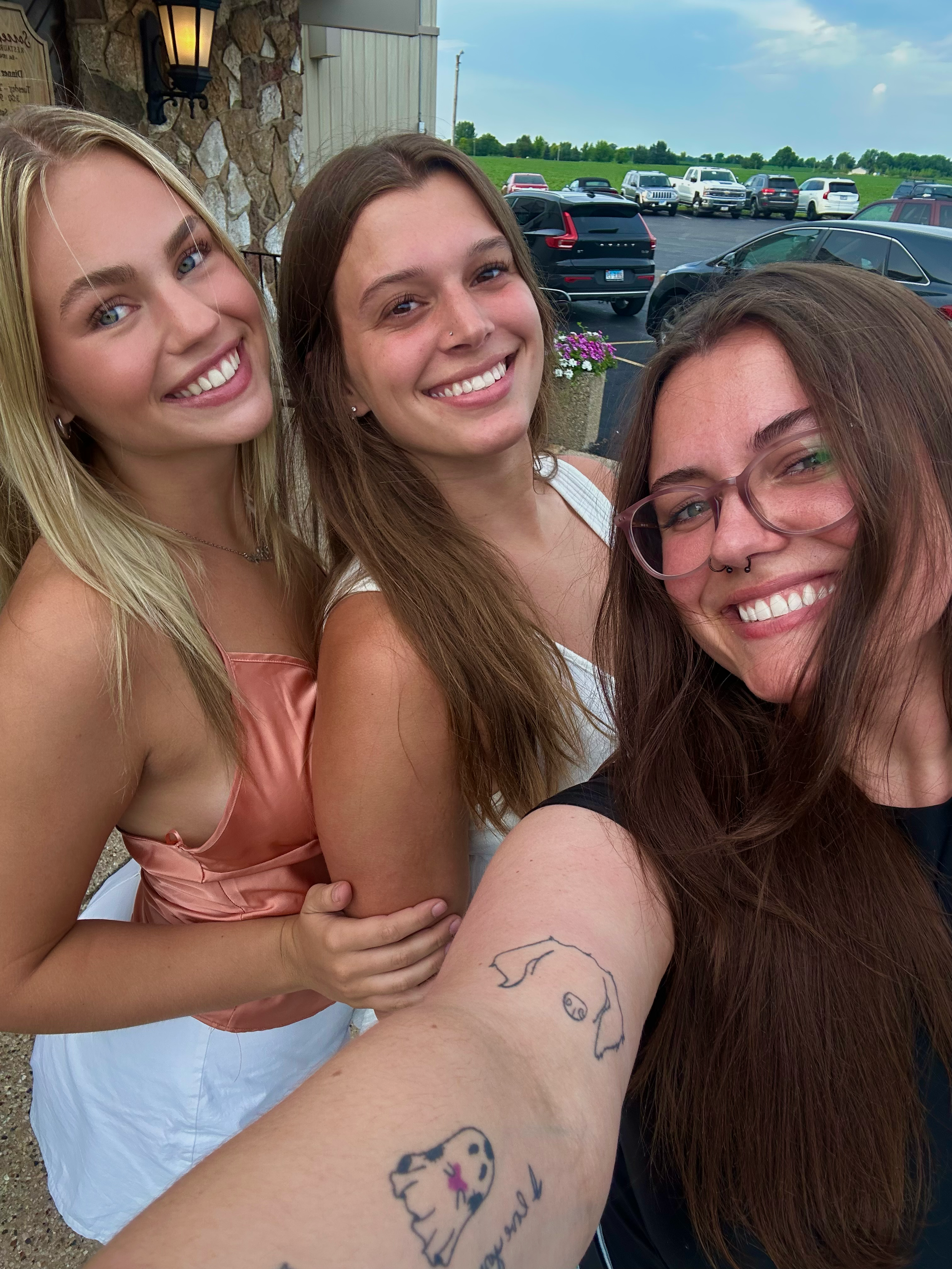





When Some People Walk Away
Not everyone walked through that door with us.
Some church friends stepped back.
Texts slowed.
Invites disappeared.
The tone shifted.
There weren’t arguments or Bible verses thrown our way. Just distance. A quiet signal that our family had become something they no longer knew how to handle.
That hurt.
Not because we needed validation.
But because it showed how fragile some people’s love becomes when it’s tested.
It forced us to reevaluate who we trusted, what our faith meant, and what kind of community we wanted to build around our kids.
The Faith That Stayed
We didn’t lose our faith. We lost the small box we had kept it in.
Little by little, we began to see God less as a gatekeeper and more as a presence. Less concerned with categories and more concerned with the condition of a person’s heart.
We started asking real questions.
We started reading voices we used to avoid.
We started wondering if faith was bigger and more beautiful than we had allowed it to be.
And it was.
Mackenzie didn’t pull us away from faith.
She pulled us toward a better one.
A wider one.
A kinder one.
A Family That Became Closer
Something unexpected happened. Our family pulled in. Tighter than before. More honest. More direct. More grace. More listening. More laughter.
The kids talk to each other differently now.
They protect each other more.
They tell the truth sooner.
There is no pretending in our house anymore.
No fear of saying the wrong thing.
No shame hanging in the corners.
And Sarah and I grew closer too. This stretched us, but stretching isn’t breaking. It’s growth.
We had to ask hard questions.
We had to be honest about our fears.
We had to let go of assumptions about what parenting was supposed to look like.
There is a gentleness now. A patience we didn’t have before. A deeper understanding of what it means to love your kids in the full truth of who they are.
What We’re Learning
We are still learning, but this is what has stayed with us:
Your child is not changing. They are telling you the truth.
There is nothing wrong with your child. Nothing to fix. Nothing to correct.
Sometimes the thing that needs to grow is not your child, but you.
Education is the responsibility of the parent, not the burden of the kid.
Your “confusion” is not theirs to carry.
You cannot love your child well if you center your discomfort instead of their safety.
Faith can be bigger, wider, and more beautiful than the version you inherited.
Some people will walk away. Let them. Your child stays.
This is not a loss. It is an invitation to grow.
The family you build through honest love becomes stronger than the one built through fear.
What We Want Other Parents to Know
If this moment comes to your home, here is what we hope you keep close:
1. Don’t make your child carry your questions.
It’s not their job to explain theology, identity, or terminology to you. That’s your work. Read. Listen. Ask better questions. Let them breathe.
2. Your faith is not breaking. It is stretching.
What feels like uncertainty in the moment may actually be the beginning of a deeper, truer faith. One grounded in love, not fear. In presence, not rules. In seeing people as whole and beloved, not as categories.
3. There is nothing wrong with your child.
Not spiritually. Not emotionally. Not morally.
Their identity is not a problem. The real problems are shame, silence, and the idea that love must shrink to stay “safe.”
4. Love them out loud.
Say it clearly. Say it early. Say it again.
Your child will remember your first response for the rest of their life.
5. Move at their pace, not yours.
They have lived with their truth far longer than you have. They do not need you to catch up in one night. They need you to stay, listen, and keep choosing them.
6. Choose education over reaction.
There are resources, counselors, books, and communities dedicated to helping parents understand and support LGBTQ+ kids. Use them. Do the work. Take the weight off your child.
7. This moment can make your family stronger.
Honesty brings people closer. Vulnerability builds trust.
When you respond with love, you create a home where everyone can breathe.
8. Faith can grow with your child, not against them.
A faith rooted in love will never ask you to abandon your kid.
It will push you to see the fullness of who they are.
And it will stretch you in the best ways.
Your child is not the one who needs changing.
Your understanding, compassion, and imagination might.
And that is not a failure. That is growth.
Keep Running,
Justin and Sarah
#RunningAhrens #FamilyStories #ParentingWithLove #LGBTQFamily #FaithAndFamily #ParentingAdultKids #RealConversations #GrowingTogether #HonestParenting #LoveWithoutFear
Kindness, Grit, and the Vande Veldes – A Story About Good Humans
Some people impress you with what they’ve done, but the Vande Velde’s impress you with how they treat you. Christian and Leah welcome you with a kindness and strength that stays with you.
A teaser video Christian did for our Wheels4Water Ride 11 years ago.
Some people impress you with their accomplishments.
Others impress you with how they treat you.
Christian and Leah Vande Velde do both without trying.
I first met Christian through my good friend Todd. Todd, Brian, and I grabbed lunch with him, and I remember feeling a little starstruck. He was one of my favorite American cyclists. I followed him, Lance Armstrong, and George Hincapie for years. These were the riders I looked up to.
And then, before we even left the restaurant, Christian said, “Hey fellas, I just retired this weekend. Want to come by my house and help me finish these kegs?”
I didn’t know him at all.
He didn’t know me.
But he opened his home like we had known each other forever.
I was training for Wheels4Water, trying to get ready to ride 100 miles a day for 10 days. I wasn’t confident. I didn’t feel ready. But Christian was encouraging from the start. Supportive. Present. No ego.
A few weeks later he invited Brian and me into his “pain cave.”
We thought we were going to ride stationary bikes next to him.
We showed up dressed and ready.
Instead, he came downstairs in a jacket, holding a coffee and a stopwatch, because the pain cave was freezing in the middle of winter, and he coached us. Hard. Pushed us to the edge. Tried to get us to puke.
And honestly, we almost did.
But I’ll never forget it, a world-class cyclist, retired or not, taking a winter afternoon to help two guys he barely knew get ready for a mission that mattered to us.
That’s Christian.
Fast forward to some of our Wheels4Water rides.
He would FaceTime us during long days just to check in.
Encourage us.
Tell us we had more left than we thought.
It was simple, steady kindness, the kind that sticks.

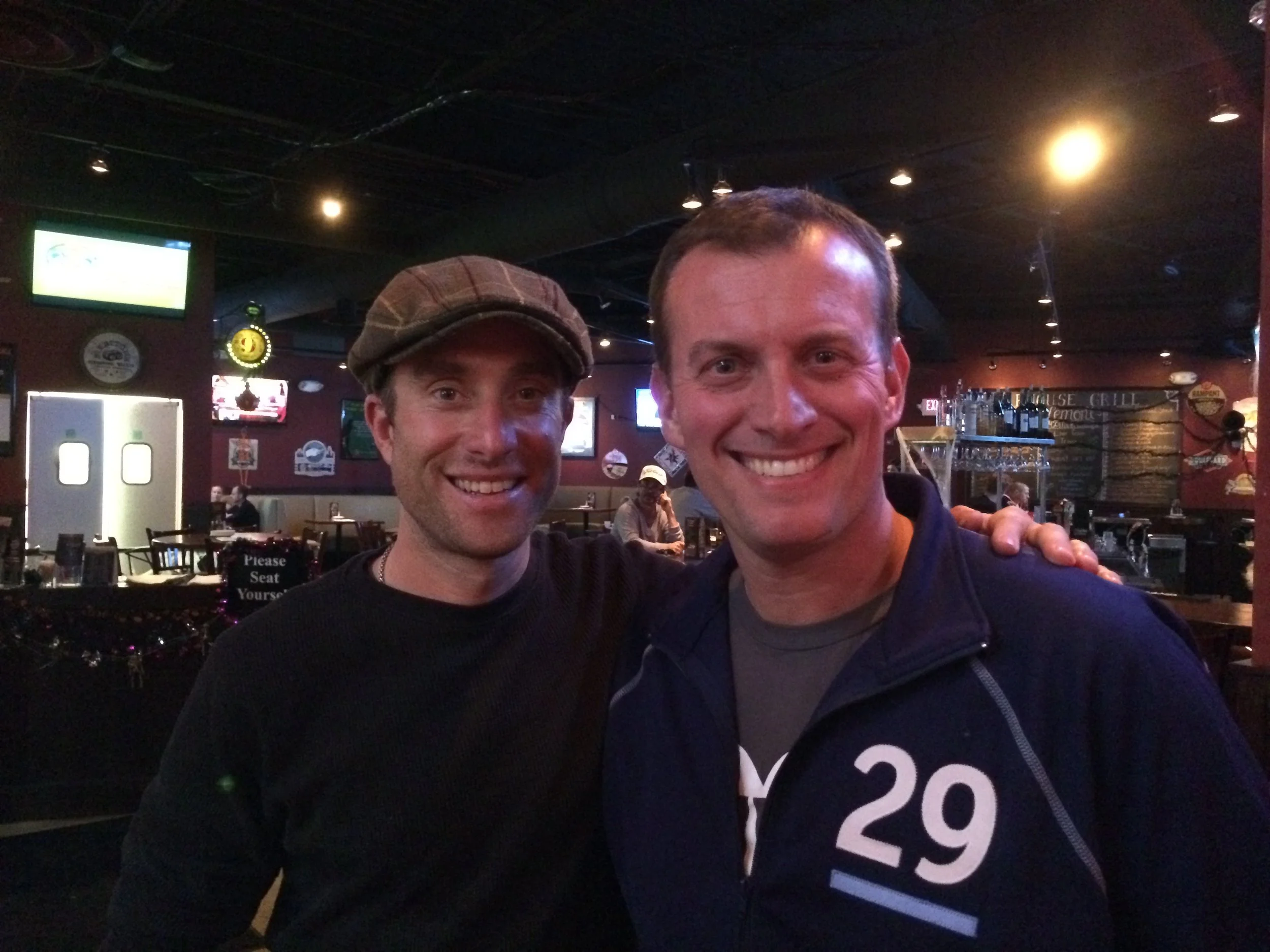
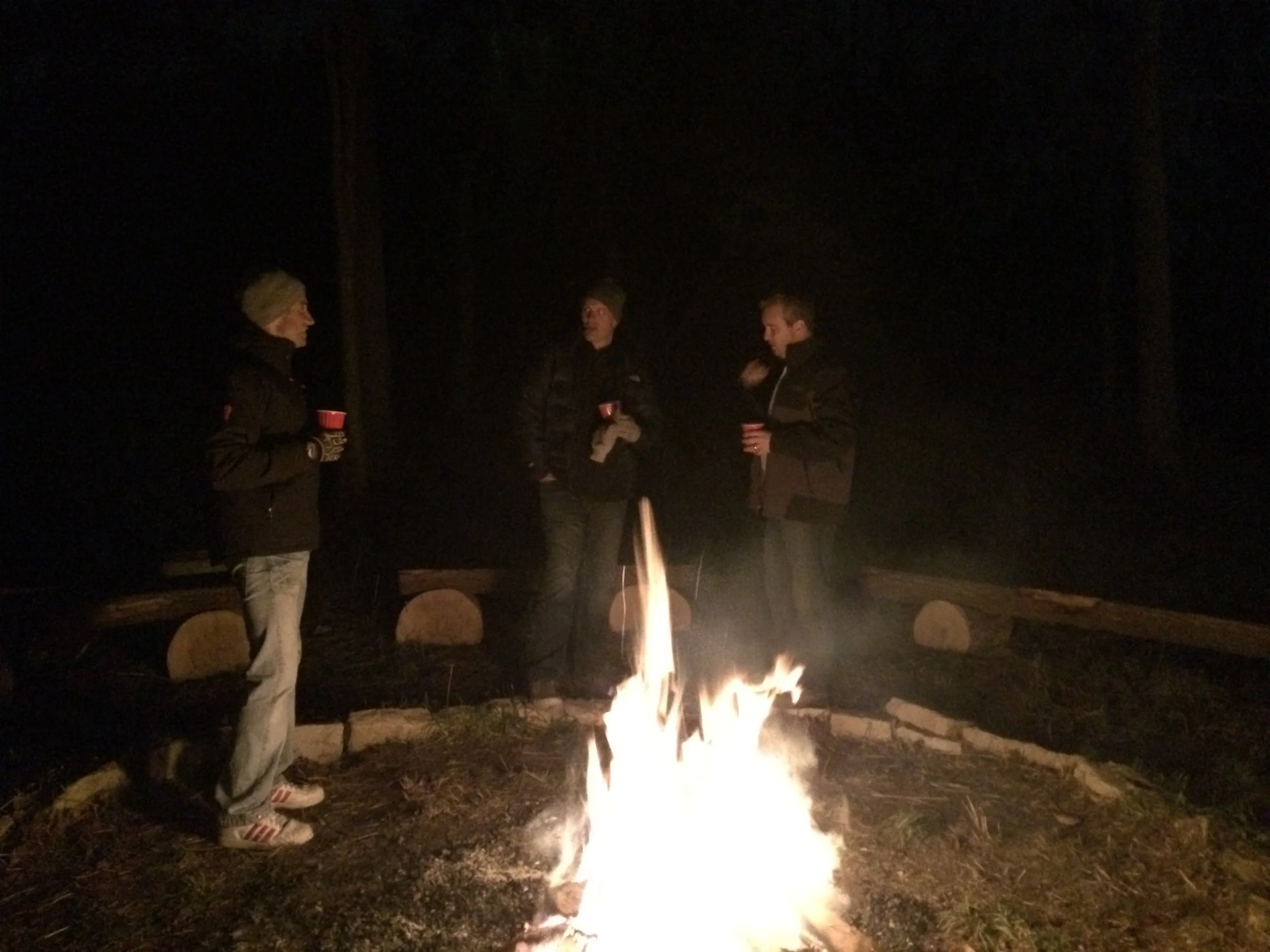
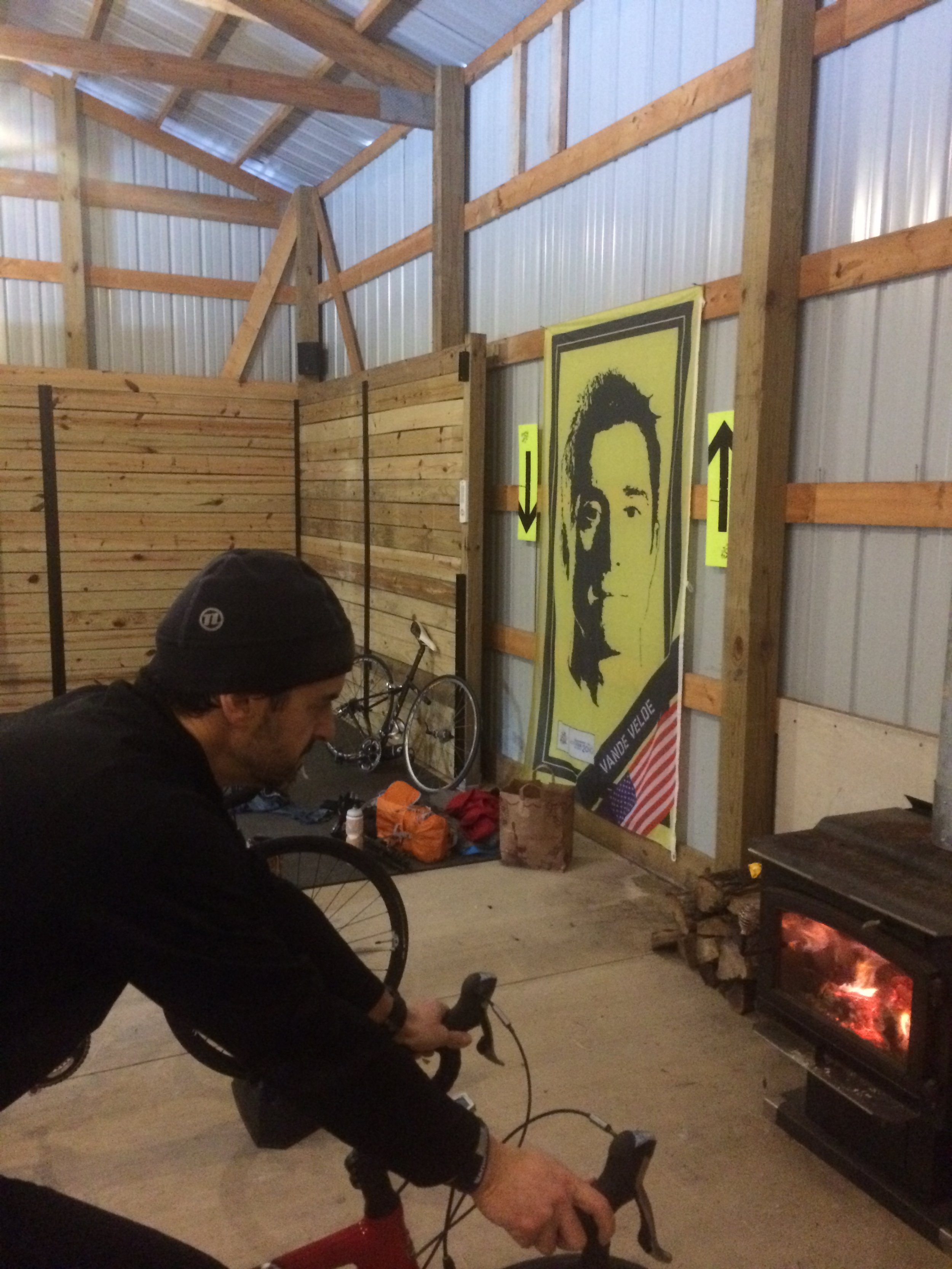
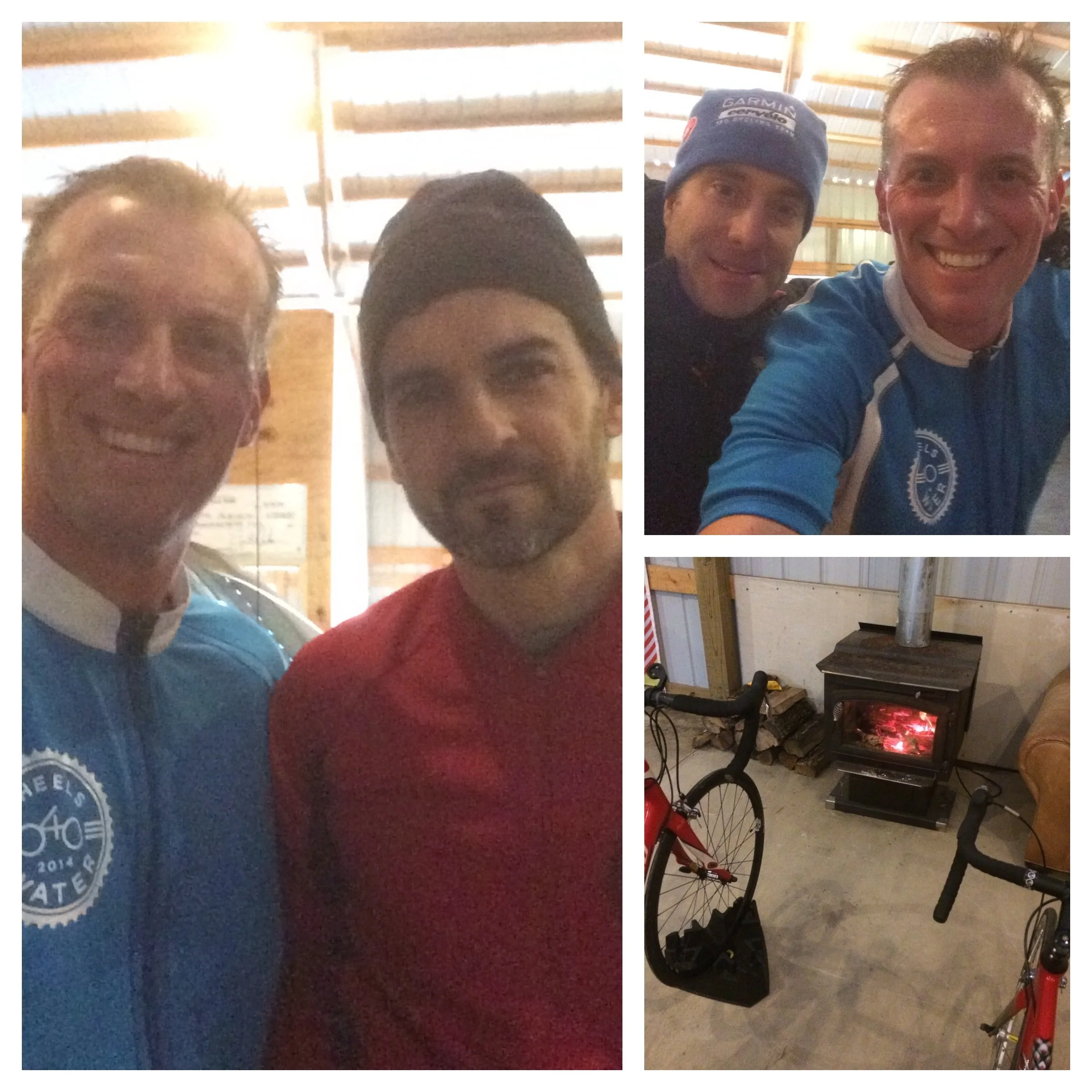
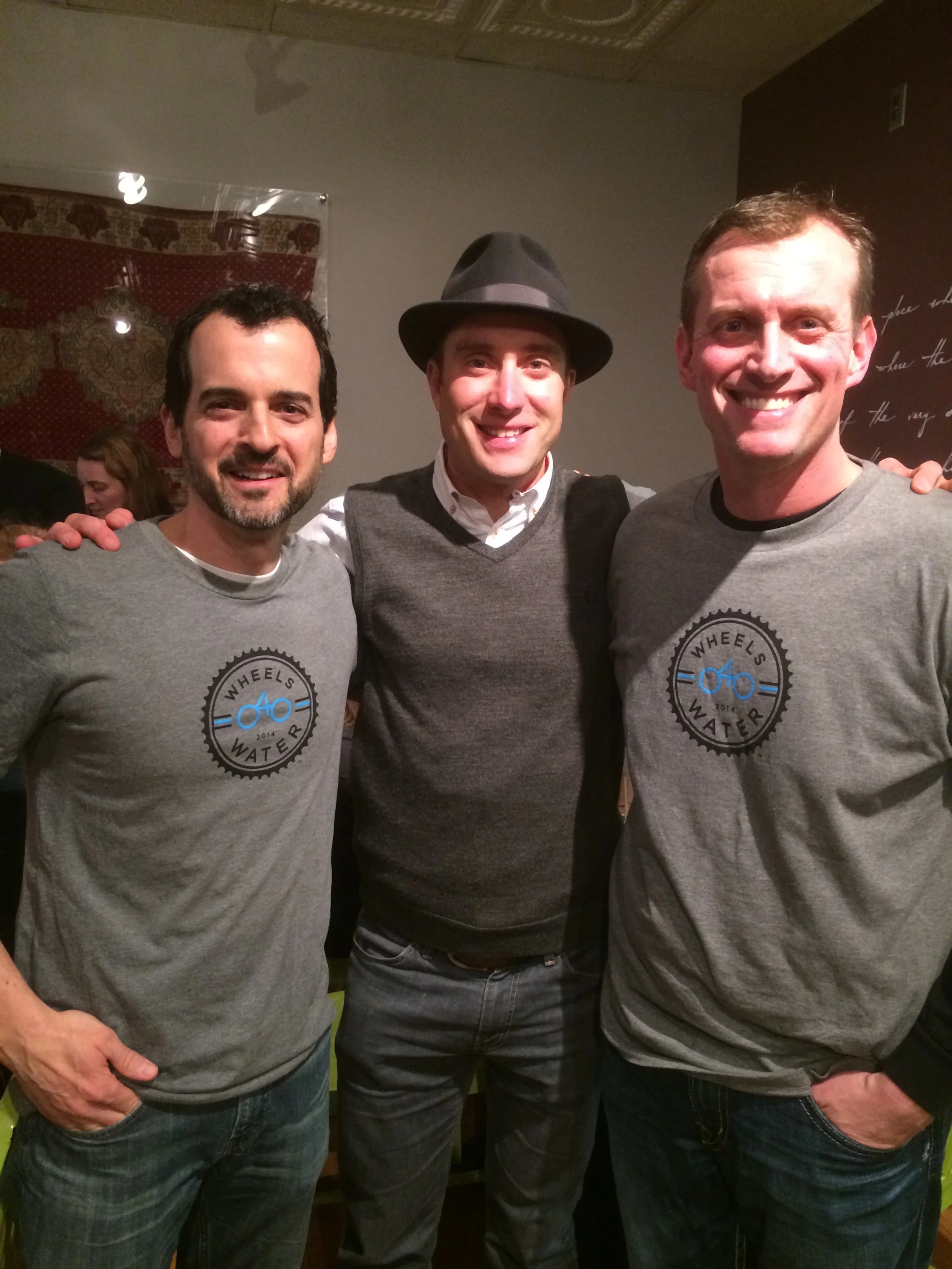
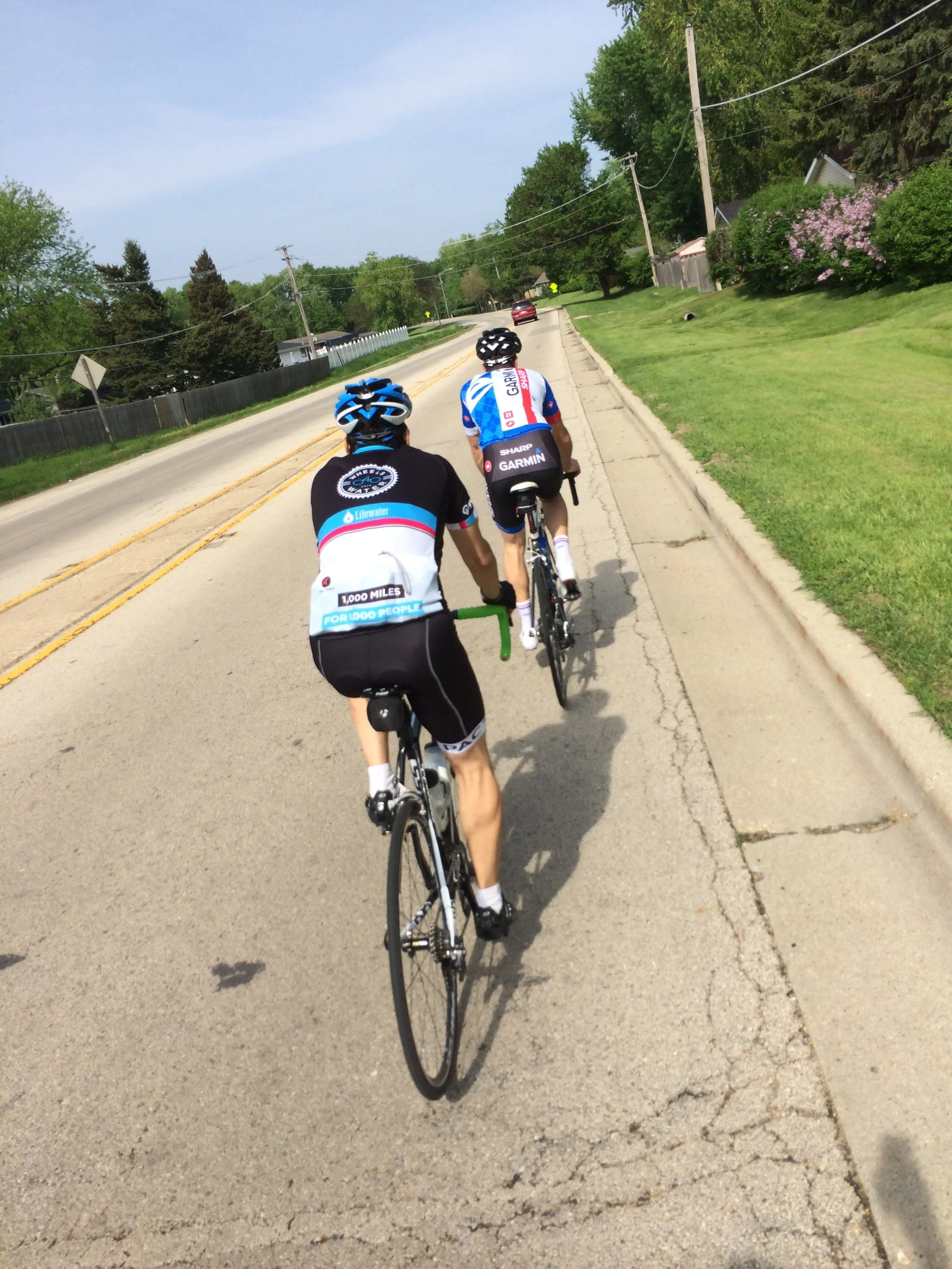
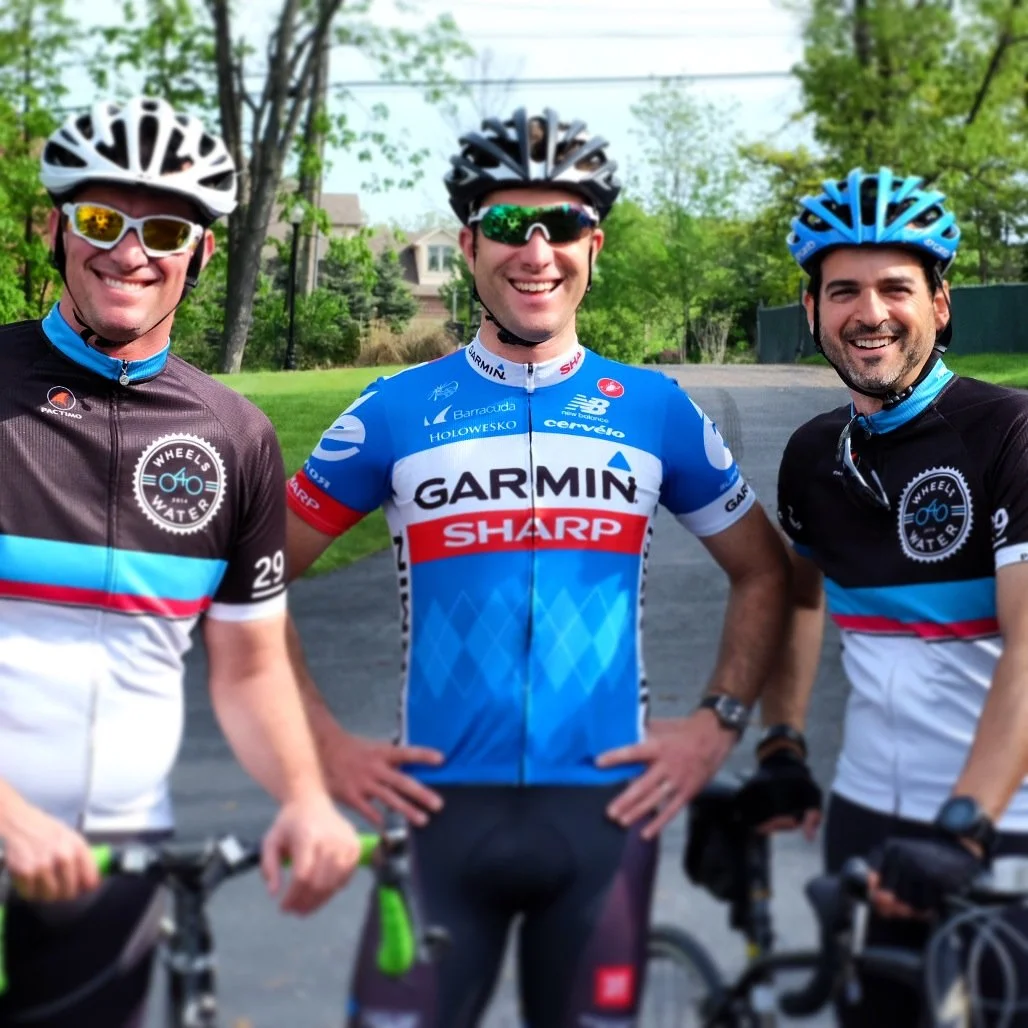


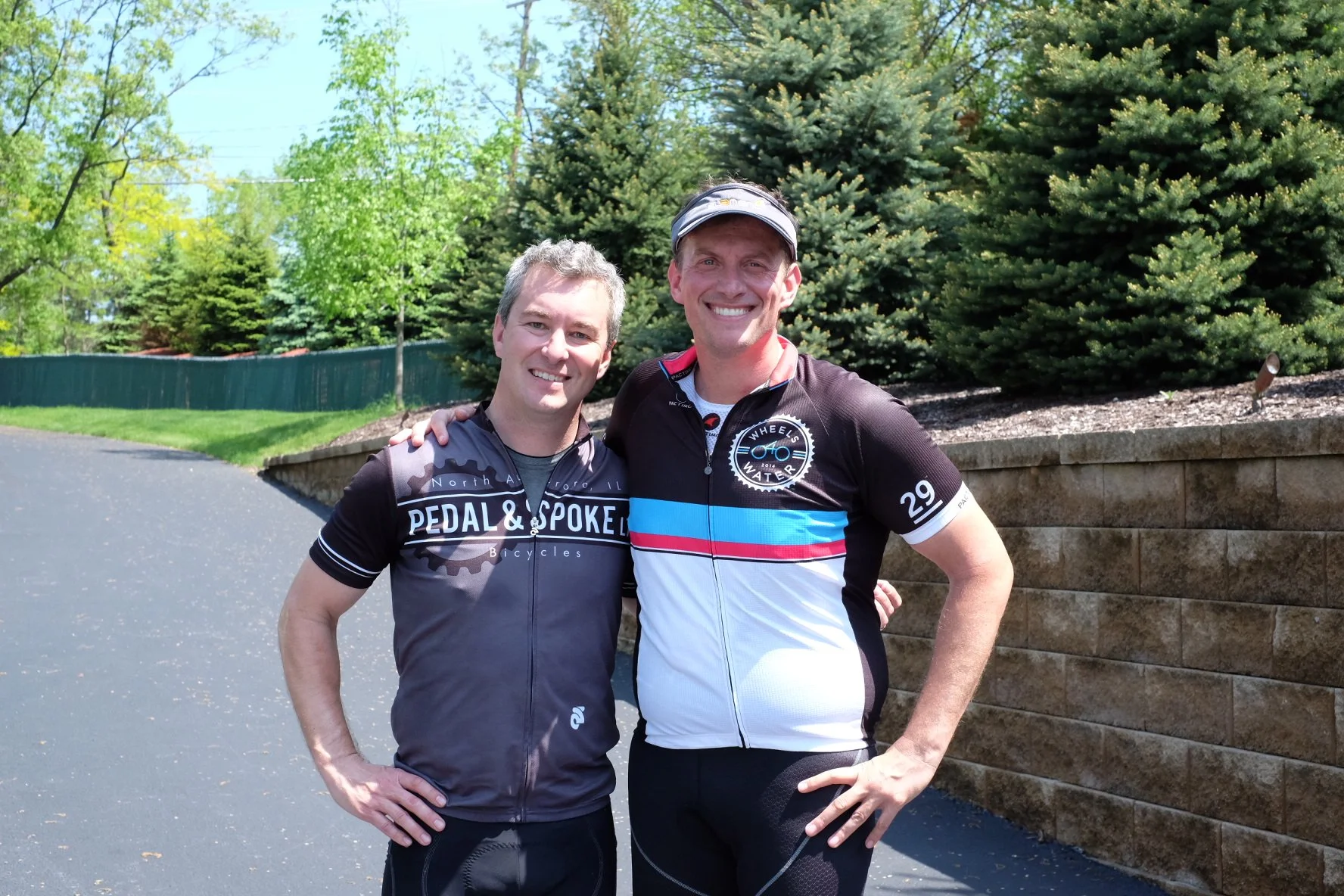

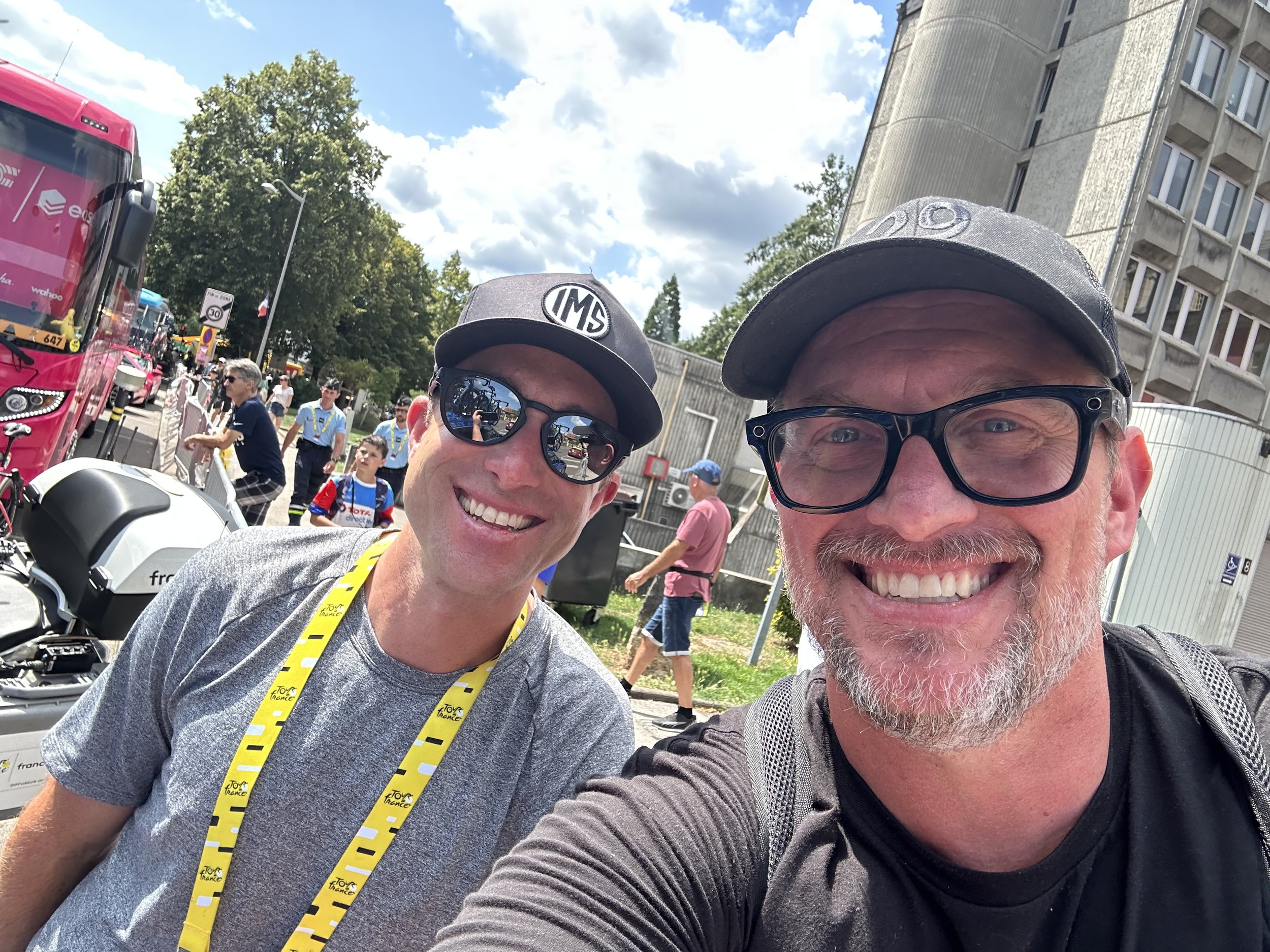
And there was the time Christian took us out on the road to train us more and said, “Every time you can tag me in the next mile, I’ll donate more to Wheels4Water.” It sounded possible for about five seconds… until he took off. The competitor in him showed up fast. We never got within a hundred feet. He was a dot on the horizon, smiling the whole way. But the offer, the laughter, and the generosity behind it said everything about who he is.
And then there’s Leah, and “supportive spouse” doesn’t even come close to describing her. She’s a badass. A chef. A triathlete. An athlete who can hold her own anywhere. She moved to Spain, learned the rhythms of a new place, and built her own life while Christian was racing across Europe. She has worked in Michelin-level kitchens, created a personal chef business from scratch, and later launched Honest Fork and Honest Scoop - both driven by skill, creativity, and heart.
She’s strong, direct, kind, and steady. She adapts. She leads. She brings her own fire and talent into every part of their life. And when Brian and I trained at their home, she made us feel welcome without hesitation, because that’s who she is.
She doesn’t just keep up with Christian.
She matches him.
She challenges him.
And she brings her own force into the world.
Together, they’re not just a couple.
They’re a team.
A real one.
They speak to each other with respect. They carry the weight of hard seasons with honesty. They have lived in different countries, raised kids across time zones, navigated injuries, crashes, relocations, and careers that did not sit still. And they did it without losing the small things: humor, compassion, presence, and the ability to make people around them feel at ease.
When you listen to their episode on Running Ahrens, you hear all of it, the grit, the joy, the messiness, the laughter. You hear the kind of love that is built, not assumed. You hear two strong individuals who know how to lift each other up.
In a world obsessed with speed and spotlight, the Vande Veldes remind me that the real measure of a life is how you treat the people right in front of you.
And I’m grateful our paths crossed.
And grateful Christian never actually made us puke.
Thanks for reading and keep running,
Justin
#RunningAhrens #VandeVelde #KindnessInAction #GoodHumans #CyclingLife #TourDeFrance #Wheels4Water #EnduranceJourney #MarriageAndGrit #StrongPartnerships #AthleteLife #RealStories #BehindTheScenes #CommunityMatters #ShowUpForEachOther #HonestFork #HonestScoopGVL #GreenvilleSC #LifeOnAndOffTheBike #SupportAndStrength
From Awareness to Action: What the Enneagram (and AI) Can Teach Us About Living Awake
The Enneagram helps us understand who we are. The Running Ahrens AI Hub helps us live it out. In this post, we connect awareness and action, how reflection, empathy, and curiosity can reshape how we love, lead, and grow.
Micheal teaching in one of his live coaching sessions.
When we first started exploring the Enneagram years ago, we didn’t expect it to shape so much of how we see the world. What began as curiosity, something to help us understand ourselves and each other, has become one of the most meaningful tools in our marriage, parenting, and leadership.
After two conversations with Michael Burditt Norton, a certified Enneagram teacher and conscious leadership coach, one truth stands out: self-awareness only matters if it changes how we show up.
The Enneagram doesn’t just name your patterns, it helps you notice them. It reveals why you react, retreat, or repeat certain stories in your life. It’s not about fixing who you are. It’s about being present enough to grow into who you’re meant to be.
And that’s the same spirit behind something else we’ve been building, our Running Ahrens AI Hub.
What the Enneagram Teaches Us About Awareness
The Enneagram reminds us that real growth happens in the space between recognition and response. It helps us move from reactivity to reflection, from blame to curiosity.
Here’s what we’ve learned from this journey:
1. Awareness is the starting line, not the finish line.
Seeing your patterns is powerful, but change comes when you choose to respond differently.
2. Compassion follows understanding.
When you begin to see what drives you, it’s easier to offer that same grace to others.
3. Leadership begins with self-leadership.
You can’t lead others well until you understand how you show up under pressure.
4. Parenting is about attention, not control.
The Enneagram teaches us that our kids already have their own way of seeing the world—our role is to listen, not define.
5. Growth doesn’t happen alone.
Awareness thrives in community. It’s in conversation, reflection, and the willingness to be honest together.
How the AI Hub Fits In
The Running Ahrens AI Hub was built from the same belief that drives our love for the Enneagram: That self-awareness, curiosity, and connection can change everything.
It’s your central space for practical AI tools, conversation apps, and resources inspired by the podcast. Built by us, this hub helps you bring reflection and presence into daily life, at work, at home, and everywhere in between.
Built for you—to make reflection practical and growth possible. We’ll keep creating new ways to help you learn, lead, and live awake.
Each tool is designed not to replace reflection, but to invite it. Not to tell you who you are, but to help you notice how you live.
Here’s what you’ll find right now:
🌀 EnneaQuest — An interactive way to explore your Enneagram and see your patterns with curiosity, not judgment.
💬 TalkFull — Conversation starters that help you connect deeply with your partner, family, or friends.
🎯 Your AI Coach — A friendly guide for those curious about using AI intentionally and creatively.
🛒 SmartCart — A meal and grocery planner that helps free up time for what really matters—your people.
The AI Hub isn’t about adding more noise to your life. It’s about creating small moments of awareness, curiosity, and connection, the same values at the heart of the Enneagram.
👉 Visit the Running Ahrens AI Hub
Keep Learning
If you’re new to the Enneagram, start with our first post:
👉 The Enneagram and Us: Learning to See, Lead, and Love Better
It lays the foundation for what the Enneagram is and how it can bring clarity to your relationships, work, and inner life.
We’d love your feedback, too.
Tell us what’s been most helpful in these episodes or thoughts around AI tools , or what topics and challenges you’d want us to explore on the show.
Your stories and ideas shape where this community goes next.
Keep Running,
Justin & Sarah
#RunningAhrens #Enneagram #AIHub #SelfAwareness #PersonalGrowth #Marriage #Parenting #Leadership #Podcast
The Halloween Years: Messy, Magical, and Gone Too Fast
Some years it was sweltering, some years snowing, but every year was magic. For us, Halloween was never about spooky stuff or a faith violation. It was about imagination, laughter, and connection. From wagons full of toddlers to late-night pumpkin carving with grown kids, it’s been a good chapter. And for anyone in that stage now, don’t wish it away. Dress up. Be a kid. Make the memory. And save me some Reese’s.
Justice League Magic
Some years it was sweltering. Some years, snow. Only in Illinois can you go trick-or-treating in shorts or a parka. One year we had flurries, another I was sweating through a foam costume. Either way, we were out there, because that’s what you do when your kids are little and still think you’re fun.
Halloween was always a full-family event. Sarah wasn’t a big Halloween fan at first, but once the kids got into it, she was all in. Costumes, candy, and chaos—it became tradition. Our stepmom Lynn was legendary for it. She dressed up every year and handed out candy like it was an Olympic event.
I’ll never forget those early neighborhood nights, the wagon full of toddlers, the “coffee” mugs that maybe weren’t just coffee, and the slow parade of parents laughing while the kids ran house to house. According to a 2023 YouGov survey, about 78% of parents celebrate Halloween with their kids every year, and I get why. It’s one of the few nights where everyone, adults included, gets permission to play.



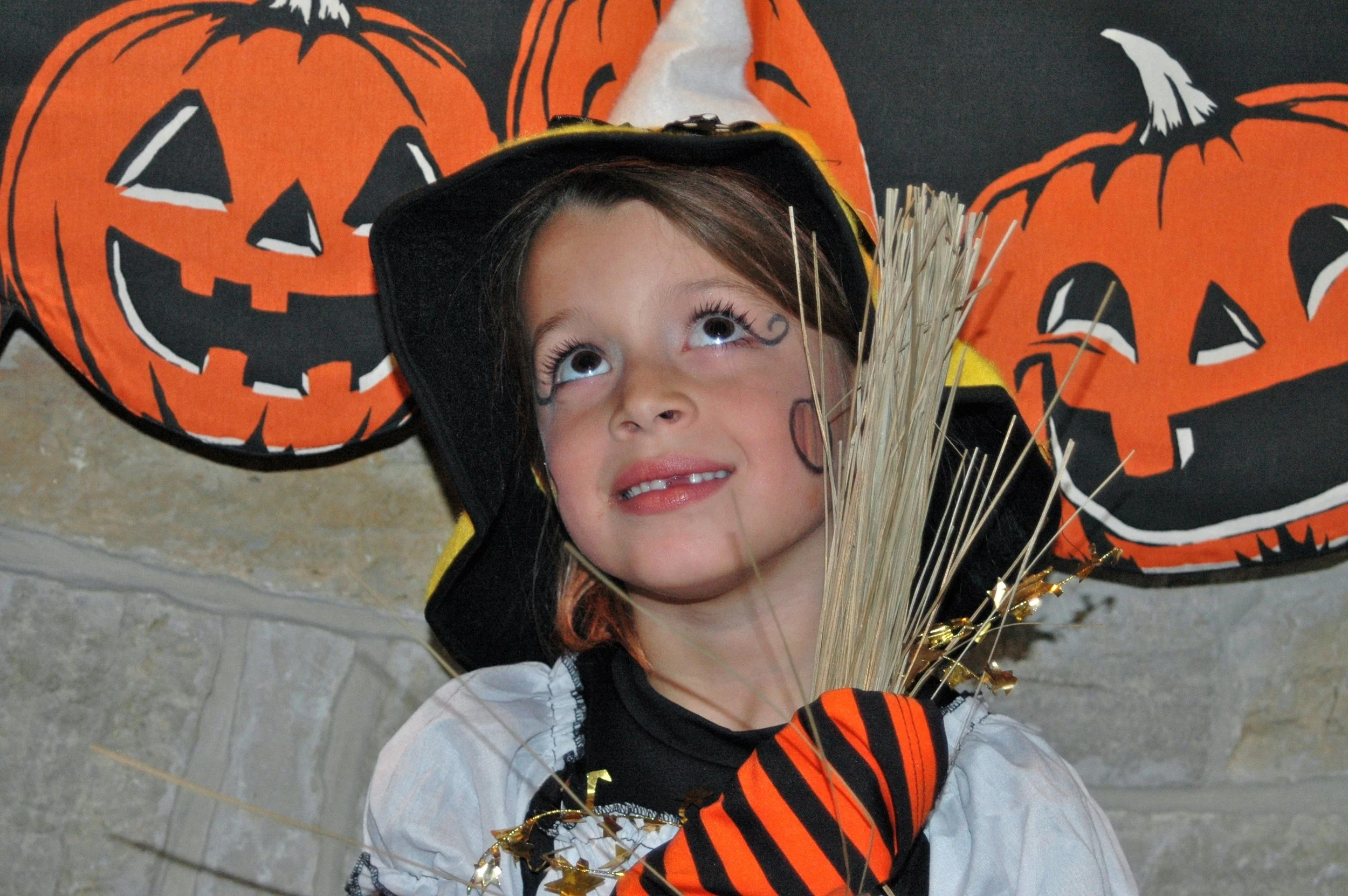



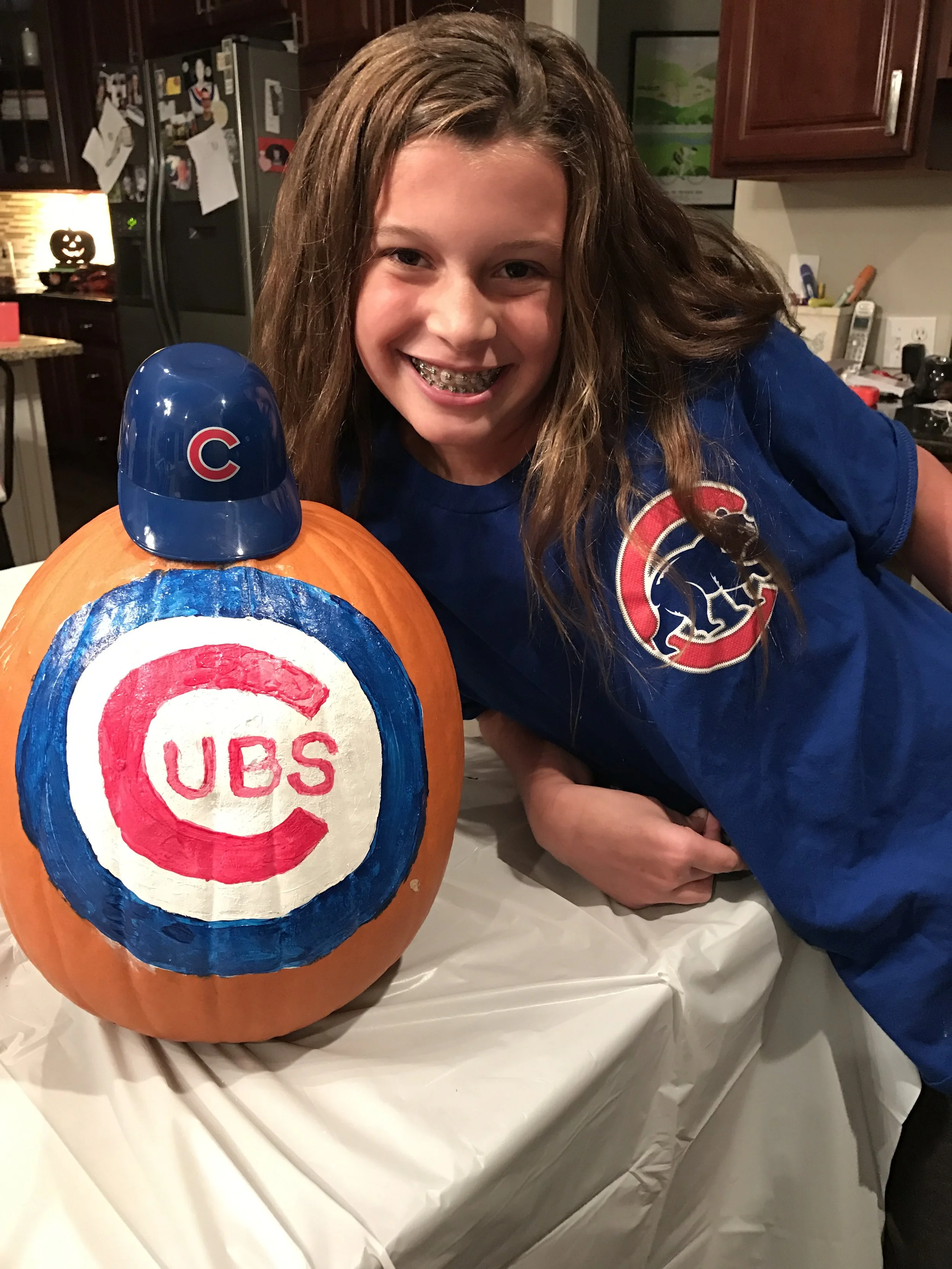


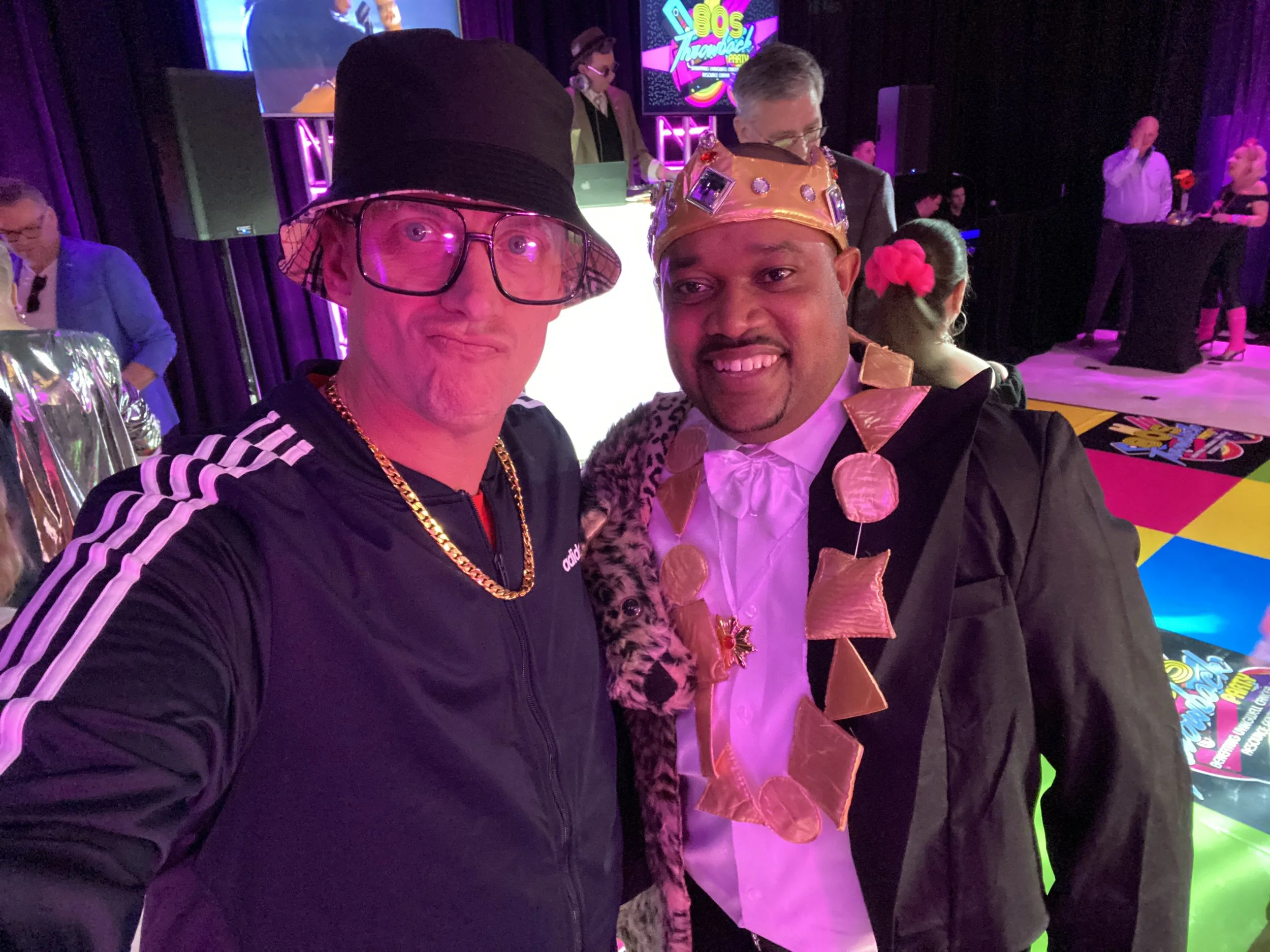
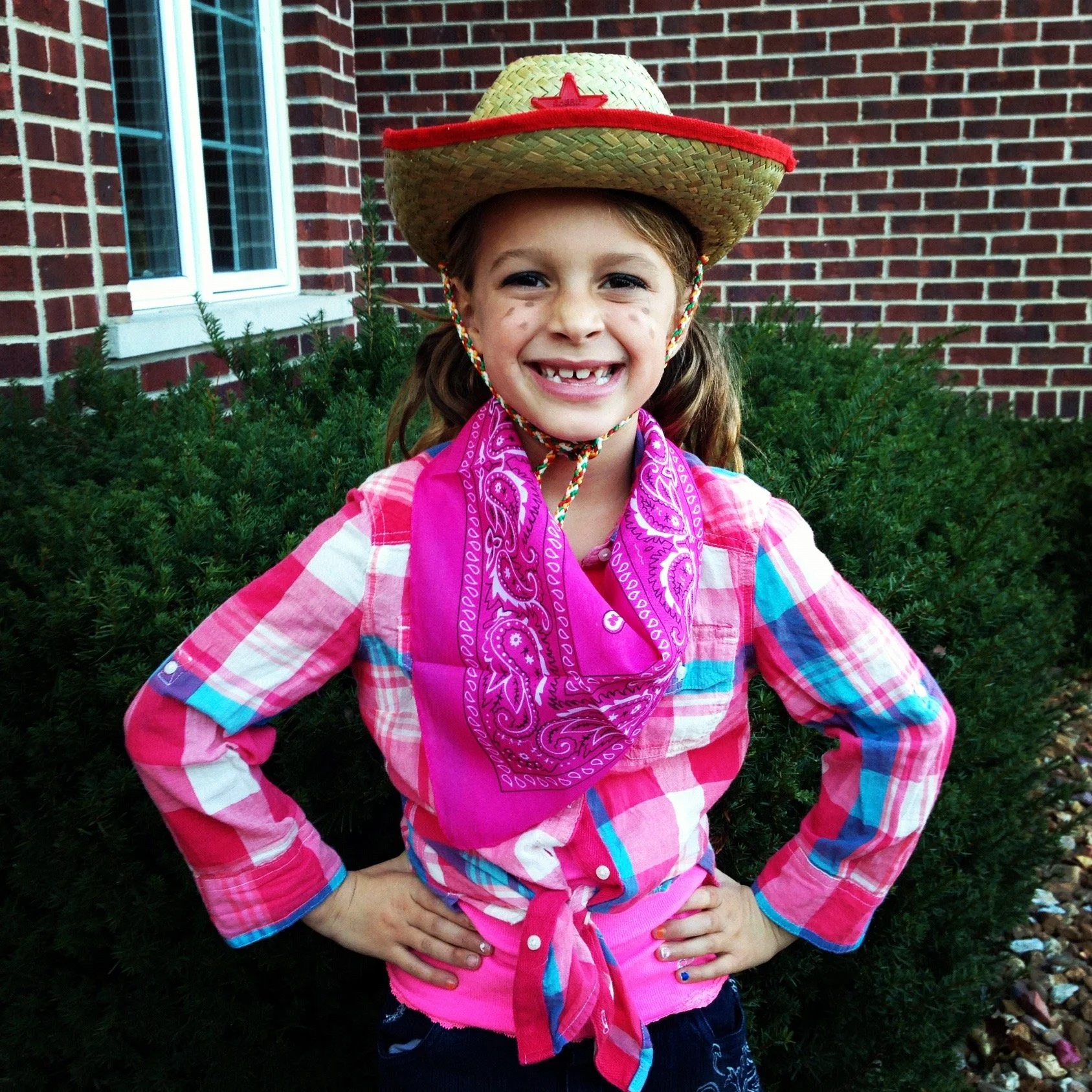
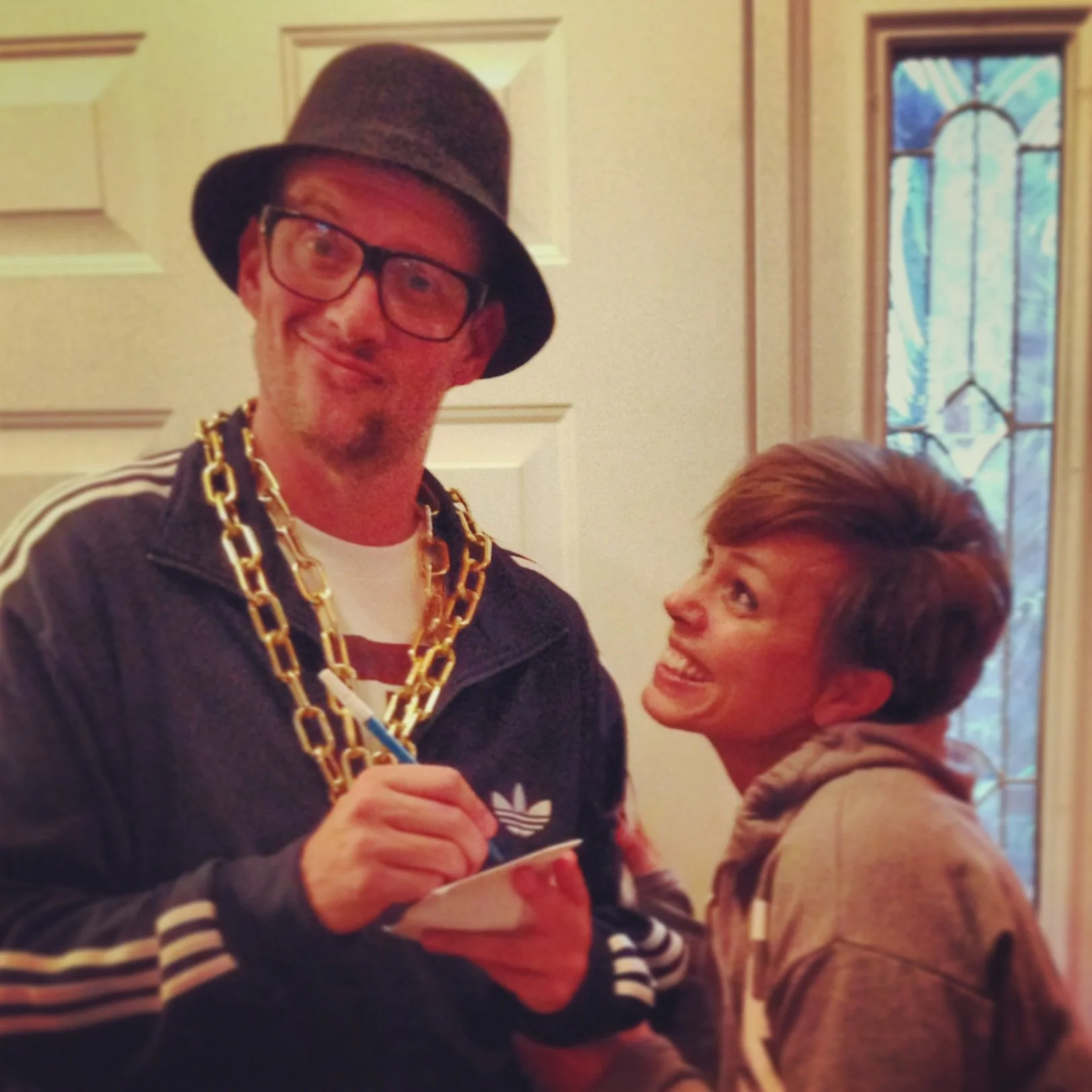
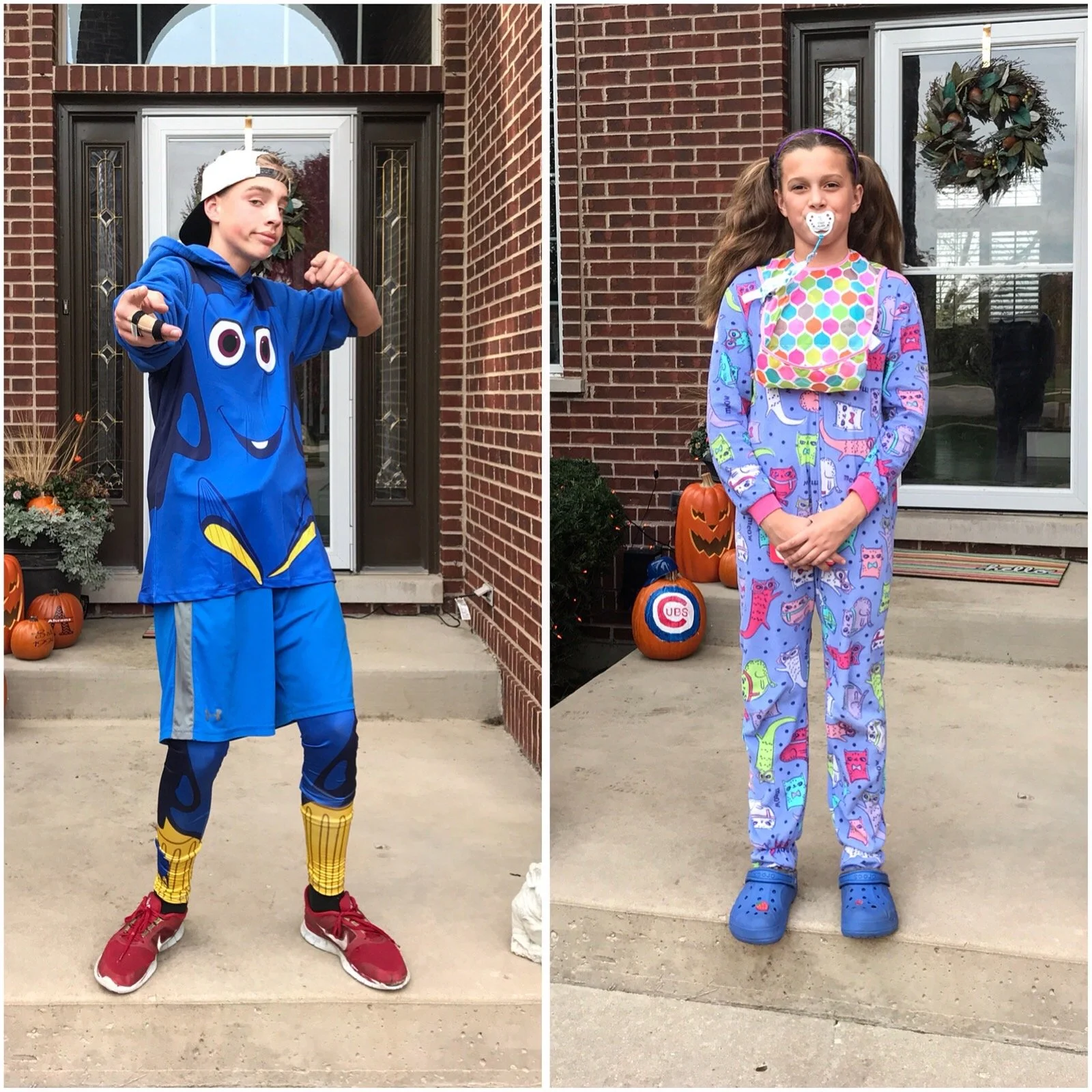


For us, it was never about a faith violation or spooky stuff. It was about imagination, laughter, and connection. Seeing what the kids dreamed up each year was the best part. For a while, we all dressed in themes, superheroes, Star Wars, even a year we don’t talk about that involved a King Triton costume that was a little saggy. Then one Halloween, they wanted to do their own thing. And just like that, the family costumes stopped.
I remember feeling a little bummed that first year. We still carved pumpkins, I still “inspected” the candy (mostly Reese’s), but it marked the end of a sweet chapter.
Now our kids are adults, and it makes me smile that they still love it. The last few years, some have been home to carve pumpkins, music playing, loud voices, the same friendly debate over who made the best one. Then later that week they head off to their Halloween parties and do their own thing. And I love that.
For any of you in that stage, don’t wish it away. Dress up. Be a kid again. Make the memory.
And if you have any leftover Reese’s… save me some.
Go Trick and Treat,
Justin
#RunningAhrens #FamilyTraditions #HalloweenMemories #ParentingJourney #MakingMemories #SweetChapters #ReesesPlease
Finding Freedom in Awareness: The Real Gift of the Enneagram
The Enneagram isn’t just a personality test, it’s a mirror that helps you see why you do what you do. From marriage and parenting to leadership and personal growth, it offers a clearer way to understand yourself and others. Read this blog for fresh insight and a few tools to help you start.
Some tools help you manage life. Others help you understand it. The Enneagram is one of those tools.
If you’ve listened to Running Ahrens, you’ve heard us talk about the Enneagram before, how it’s helped us as a couple, as parents, and as business leaders. But here’s the truth: it’s not just a personality test. It’s a mirror. And when you’re ready to look in that mirror with honesty, it can change everything.
The Enneagram doesn’t tell you who you are, it helps you see why you do what you do. It shows the patterns that drive your choices, reactions, and relationships, and gives you the awareness to grow beyond them.
Why It Matters in Real Life
In your personal life
Most of us live on autopilot. We move fast, avoid discomfort, and miss the subtle ways we self-sabotage. The Enneagram slows you down long enough to notice what’s actually happening underneath the surface, your motives, fears, and blind spots. That kind of awareness is the first step toward living with more freedom and peace.
In marriage
Every couple knows what it feels like to have the same argument on repeat. The Enneagram helps you see those patterns without judgment. It reveals what you each need when you’re stressed, how you handle conflict, and what it looks like to love each other better, based on who you really are, not who you wish the other person would be.
In parenting
No two kids see the world the same way. The Enneagram reminds us that our children are wired with their own perspectives from the start. Instead of typing them too soon, it helps us notice their attention patterns, what lights them up, what shuts them down, and respond with empathy rather than control.
In leadership and business
Workplaces thrive when people understand themselves. Teams break down when they don’t. The Enneagram gives leaders a map for emotional intelligence, how to recognize reactivity, communicate clearly, and build trust that lasts longer than a project or a paycheck. Studies show that self-aware leaders make better decisions and create stronger, more resilient teams.
In friendship and community
The Enneagram can help you show up differently. It teaches you to see others as they are, not through your own filter of what’s “right.” It’s the beginning of compassion, the kind that makes relationships last through difference, distance, and change.
How to Begin
If you’re curious where to start, here’s how:
🎧 Listen to Episode 1: The Enneagram and Us – Seeing Ourselves Clearly with
Michael Burditt Norton certified Enneagram teacher and conscious leadership coach, joins us to explain what the Enneagram really is, how the nine types work, and why self-awareness matters in every area of life.
🎧 Then listen to Episode 2: Coming Soon!
Explore Trusted Enneagram Resources
If you want to keep learning, these are some of our favorite places to start:
Enneagram.is — a visual, modern look at the types
Narrative Enneagram — in-depth learning from certified teachers
The Conscious Leadership Group — tools to apply the Enneagram in work and leadership
The Enneagram Institute — clear explanations of all nine types
Try Our EnneaQuest AI
To make this exploration easier (and more personal), we’ve built EnneaQuest—an interactive AI tool inside the Running Ahrens AI Hub.
EnneaQuest helps get you started with questions you may have. It is not an official test, but it is a great resources to ask some questions to.
It’s not about perfection. It’s about awareness.
At its core, the Enneagram isn’t about self-improvement—it’s about self-understanding. Because once you understand why you do what you do, everything else gets a little clearer: how you love, how you lead, and how you live.
Get started today.
Listen to Episode 1. Explore the resources above. Try EnneaQuest.
And keep becoming who you were meant to be.
Keep Running,
Justin & Sarah
#RunningAhrens #Enneagram #SelfAwareness #Marriage #Parenting #Leadership #PersonalGrowth #ConsciousLeadership #Podcast
Just Enough Jack: What Our Son Is Teaching Us About Effort, Fear, and Knowing What’s Enough
Sometimes enough is right. Sometimes enough is fear. Parenting Jackson has taught us to tell the difference, to recognize when to support, when to push, and when to simply sit beside him in the process. “Just Enough Jack” isn’t about effort or laziness. It’s about learning what’s needed in each moment and showing up with curiosity, respect, and love as he figures out what enough means for him.
Every parent has that one phrase that sticks, a nickname that started as a joke but turned into a lesson. For us, it’s “Just Enough Jack.”
Jackson’s our second child, our first son, and someone who knows how to give what the moment calls for. Sometimes that means working hard, leading well, and showing real commitment. Other times, it means doing what’s required, no more, no less. And that’s where things get interesting.Because “enough” isn’t simple.
Sometimes enough is wisdom. Knowing when to stop, rest, and recharge.
And sometimes enough is fear. Holding back because pushing harder might mean failing, stretching, or being seen.
As parents, we’re learning that the line between the two isn’t always clear. What matters is how we show up in each situation. Not to judge, but to understand. Our role with Jackson, and really with all our kids, is to stay present, curious, supportive, and to know when to push. To recognize when“enough” is healthy, and when it’s holding them back.
Jackson is teaching us that growth doesn’t come from constant effort; it comes from honest reflection. He’s a hard worker, a loyal friend, and a natural leader when he believes in what he’s doing. He’s also deeply protective of his people, the kind of loyal that doesn’t need words to prove it.
And when he’s with those people, the ones who make him feel safe and known. he’s loud, funny, and full of life. That’s when Just Enough Jack becomes All In Jack.
We love both.
Because both are true. He’s figuring out what “enough” means for him. And we’re learning, right alongside him, how to guide without pushing too hard, how to trust his pace, and how to meet him where he is with respect.

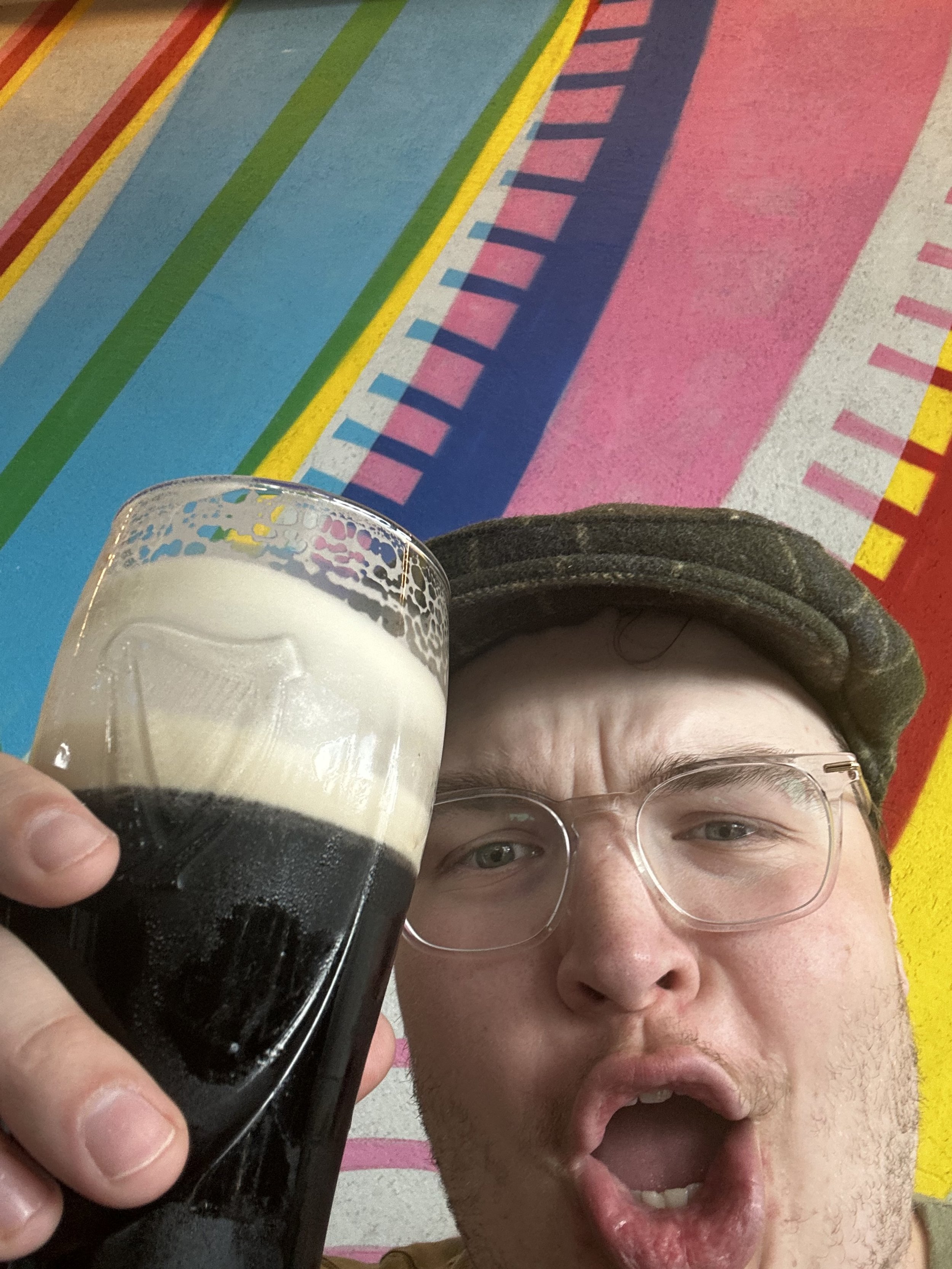
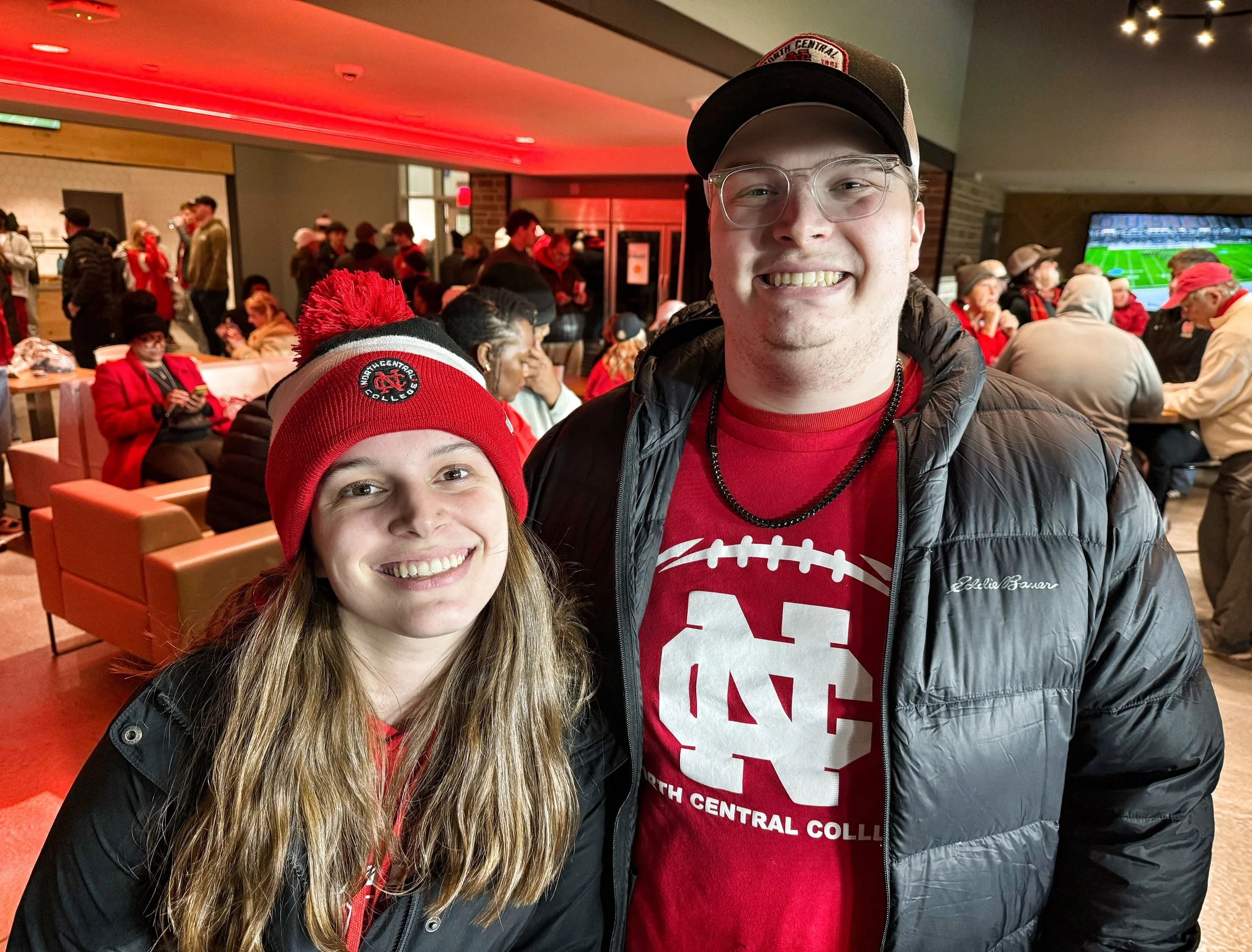
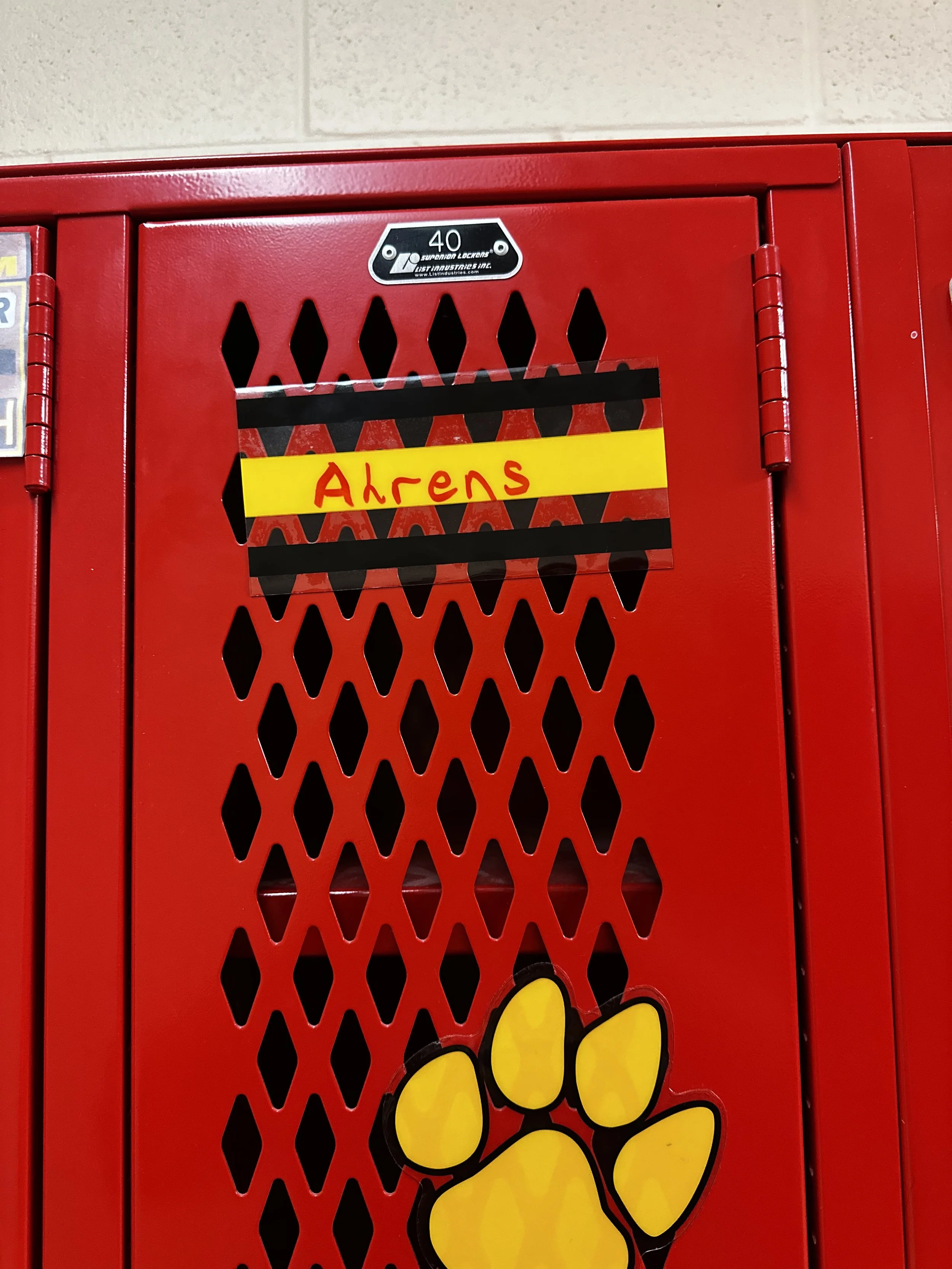
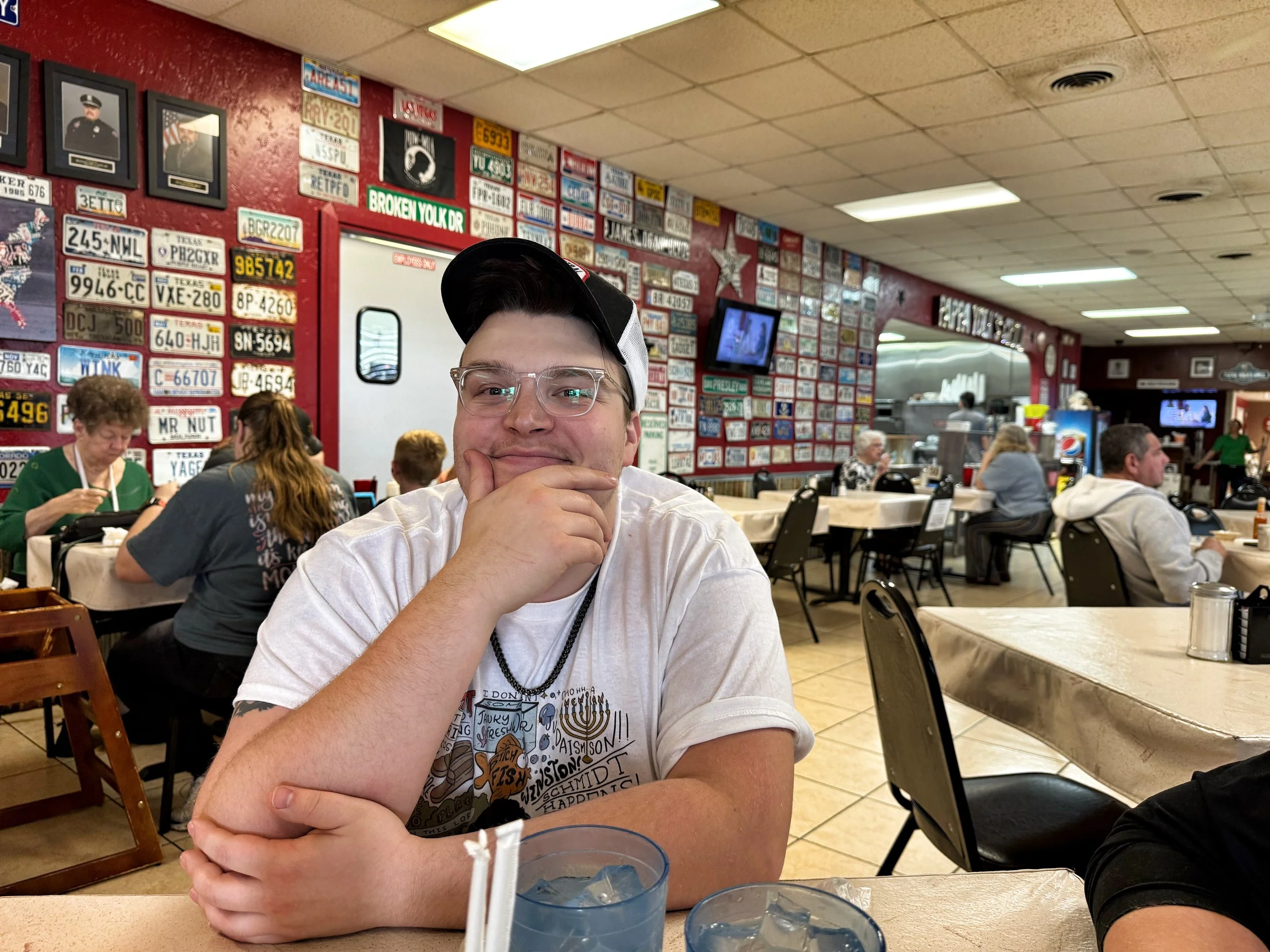
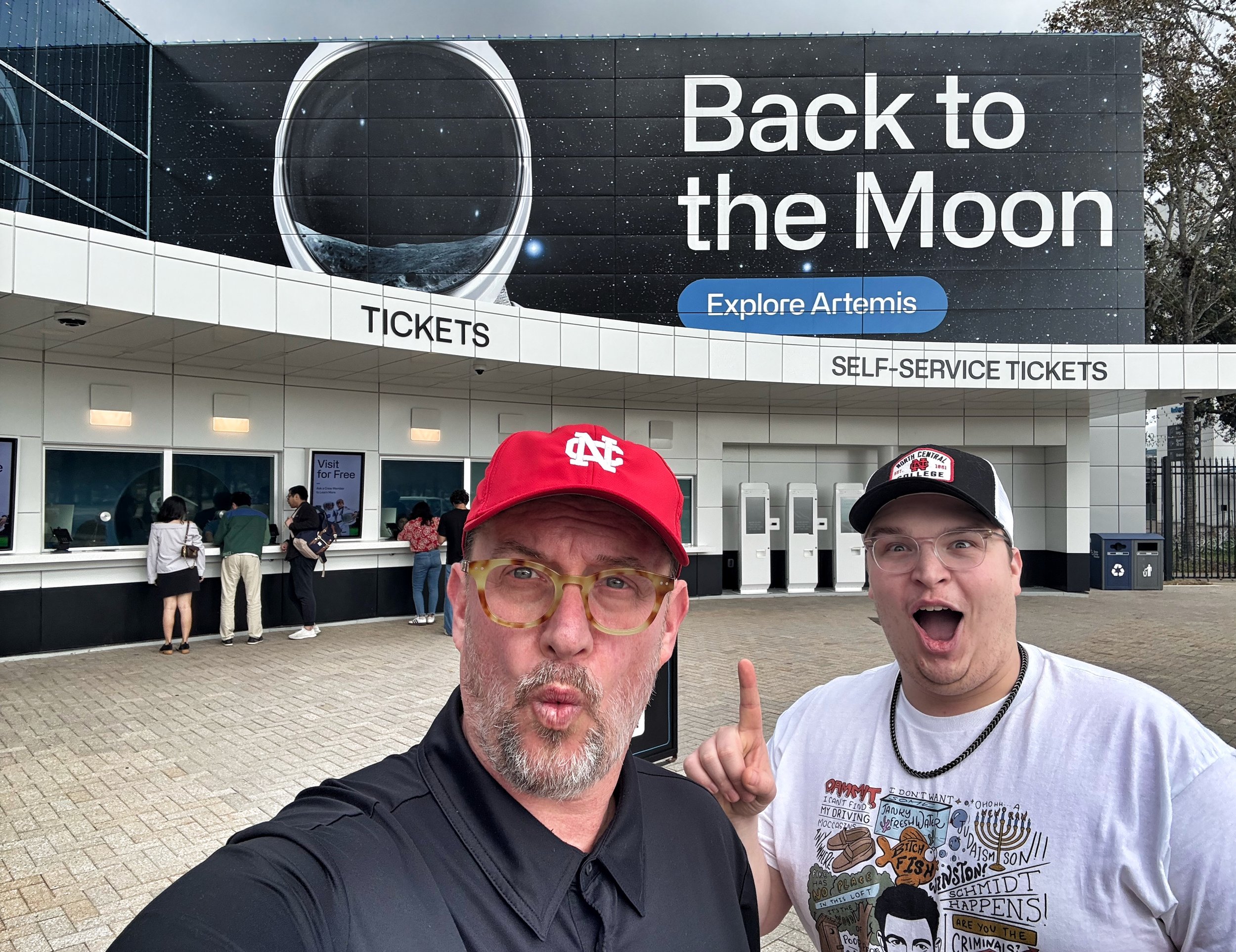
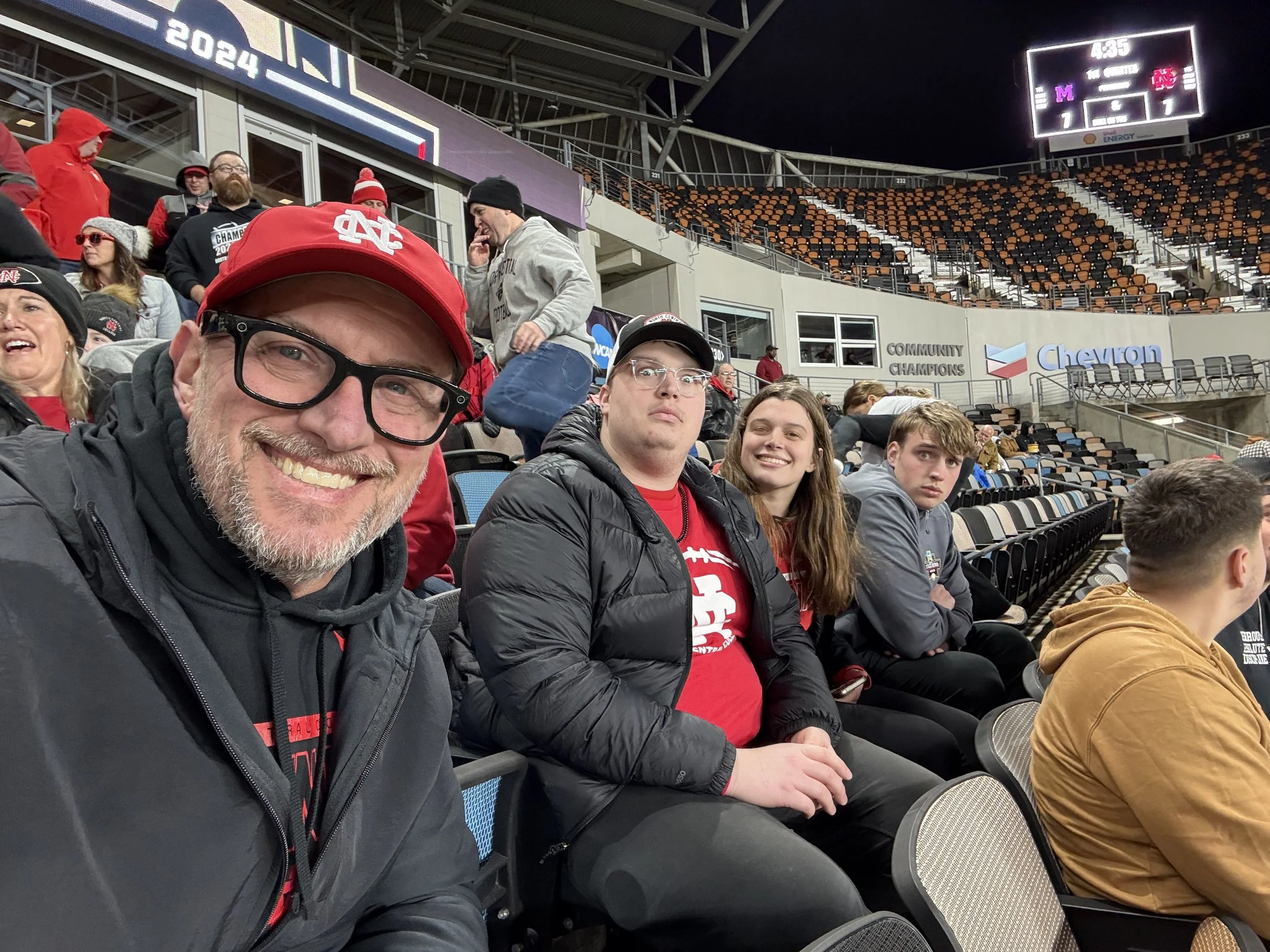
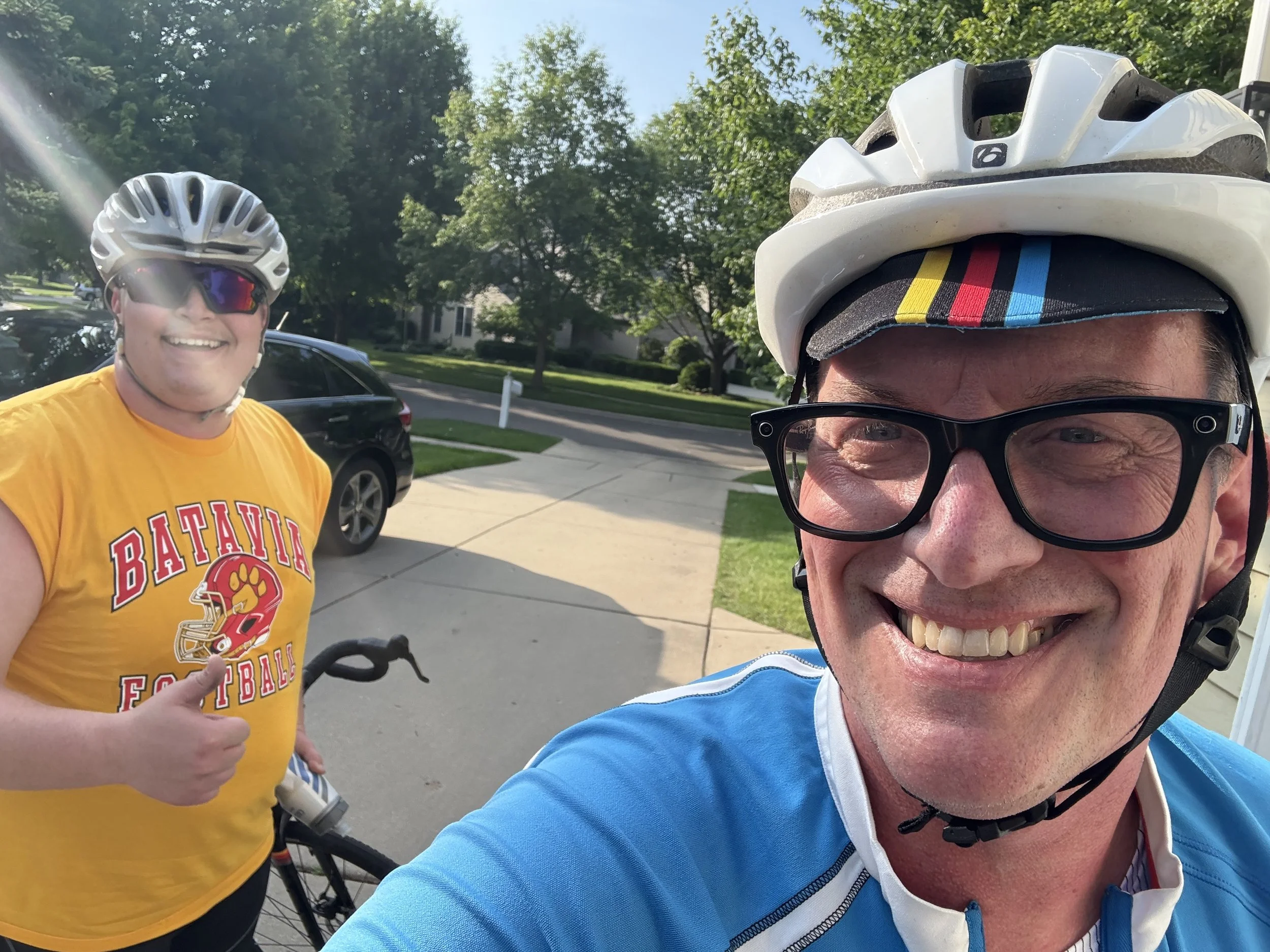

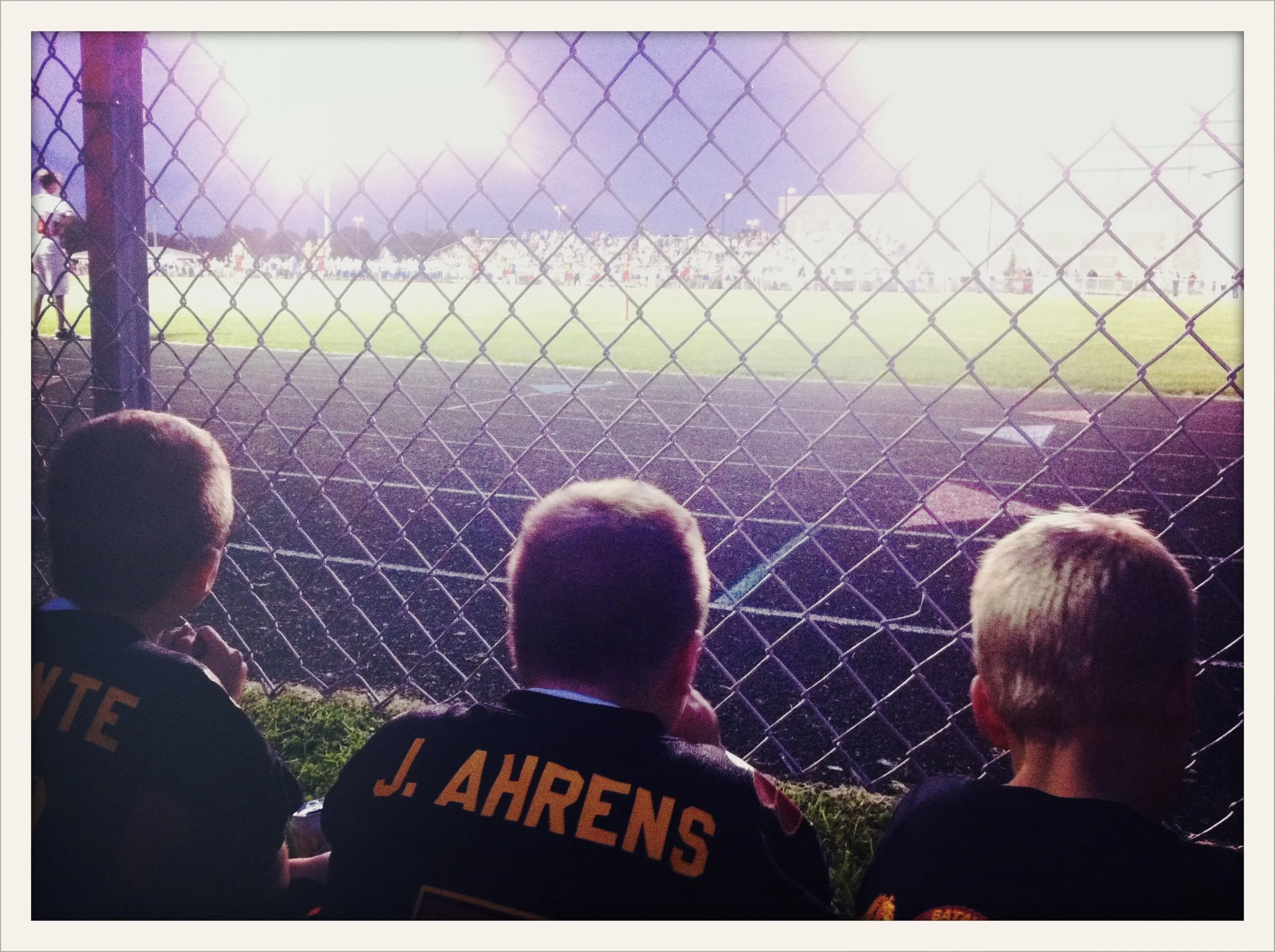
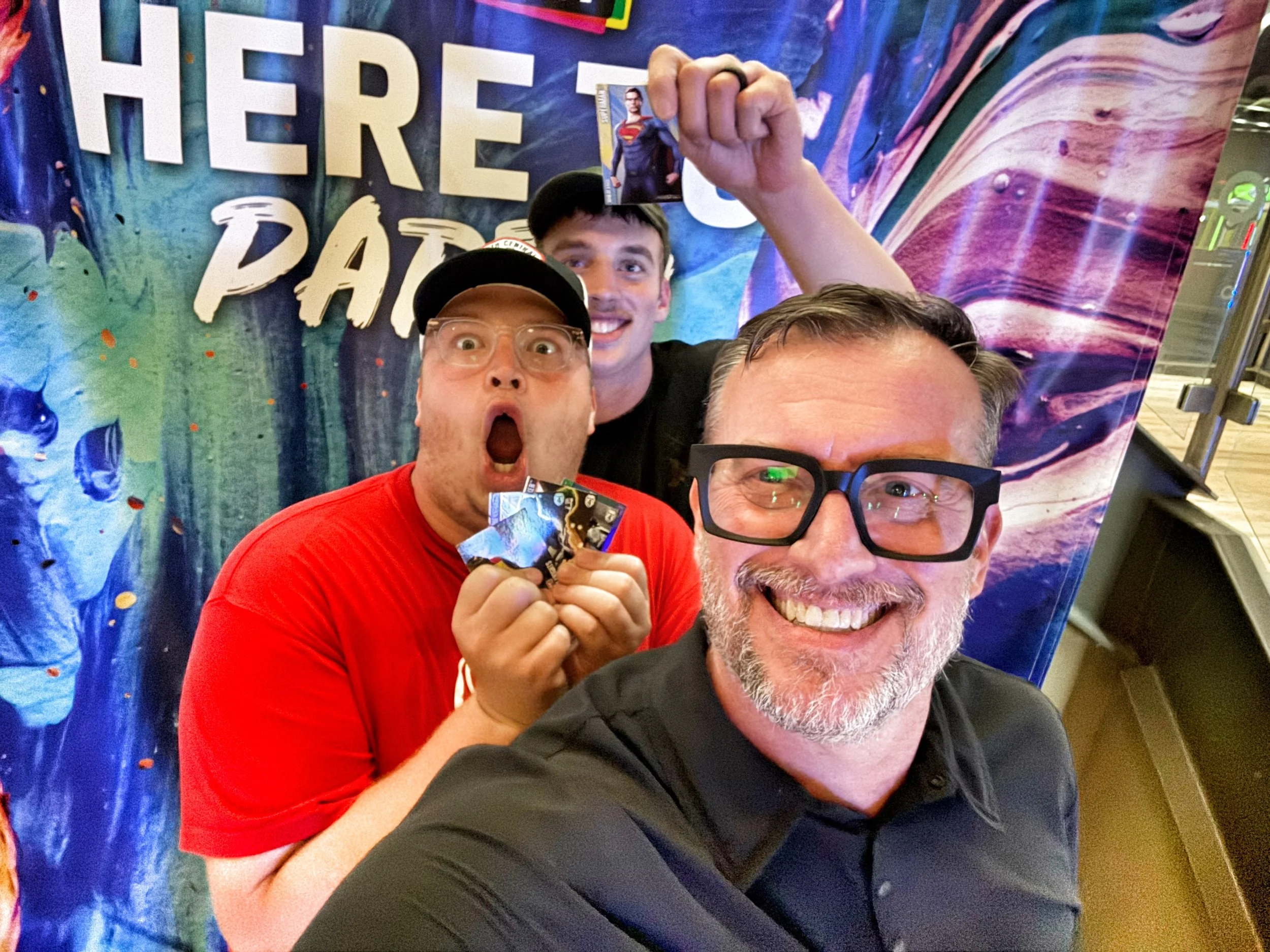
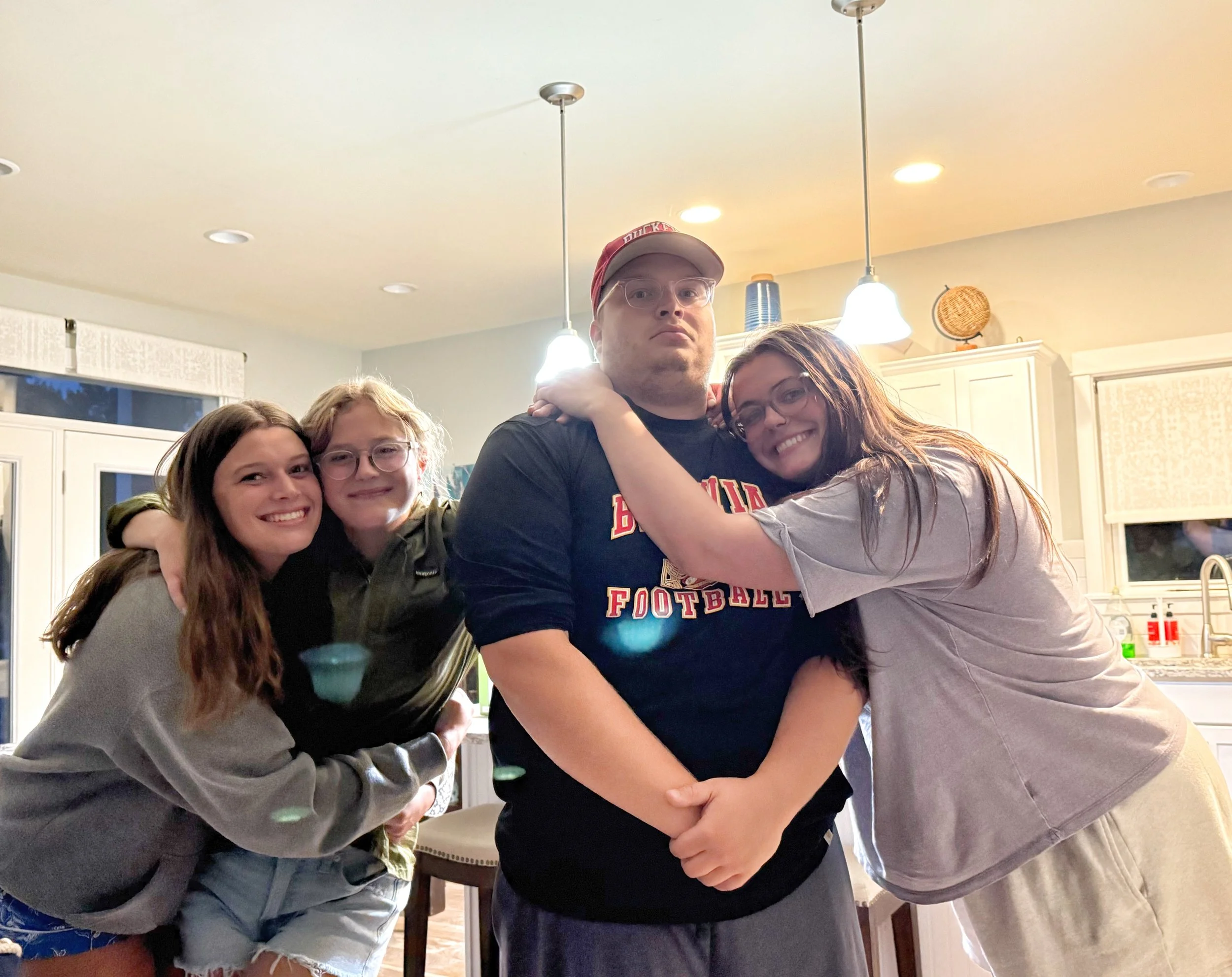
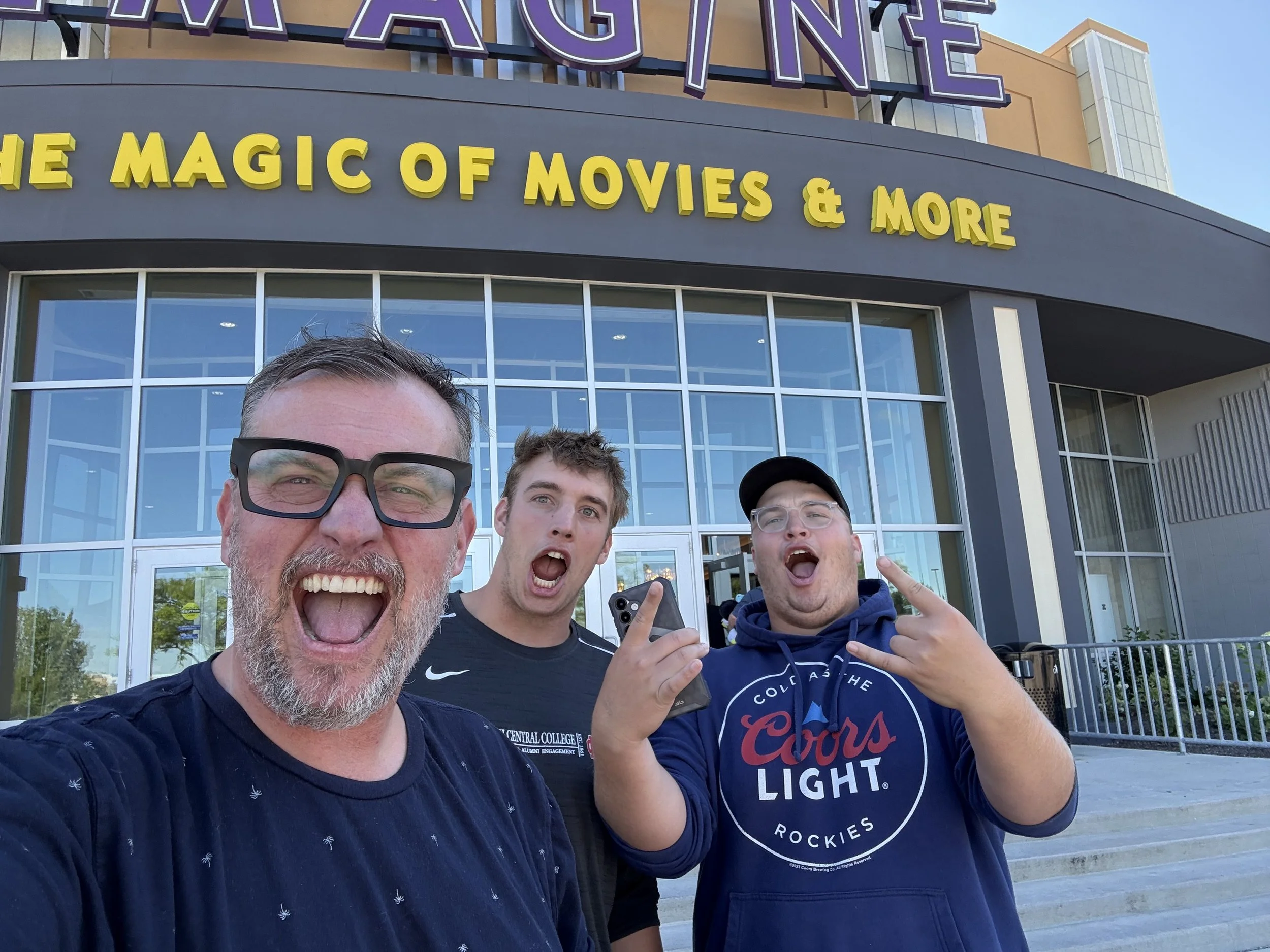
What We’ve Learned Along the Way
✔️ “Enough” can mean many things. Sometimes it’s rest; sometimes it’s fear. The real work is learning to tell the difference.
✔️ Presence matters more than pressure. When we stay curious instead of critical, growth happens naturally.
✔️ Leadership can look quiet. Jackson leads by example, steady, calm, and consistent. People follow because they trust him.
✔️ Respect is mutual. He’s taught us that giving respect is how you earn it, especially with kids finding their independence.
✔️ Loyalty runs deep. Jackson will always protect his people. That kind of faithfulness is rare and worth recognizing.
✔️ Joy shows up when he feels safe. When he’s laughing and relaxed, we see his full heart, thoughtful, funny, grounded, and fully himself.
Why This Matters
Parenting adult kids isn’t about managing them. It’s about understanding them. “Just Enough Jack” reminds us that every person has their own rhythm, their own definition of effort, courage, and care.
Our job isn’t to decide what enough looks like. It’s to walk beside them as they figure it out. Sometimes that means cheering them on. Sometimes it means challenging them. Always, it means staying close enough to see who they’re becoming.
An Encouragement
If you have someone like Jackson in your life, steady, loyal, protective, and figuring it out in real time, meet them where they are. Ask questions. Listen well. And when they do show up, even if it’s “just enough,” know that it’s part of the process.
👉 Listen to Episode 16: The Thinker: Jackson on Risk, Reason, and Finding His Own Path
Because sometimes enough is right.
And sometimes enough is fear.
But both can lead to growth when love stays in the room.
—Justin & Sarah
What Friendship Can Teach Us About Belonging
Friendship can open your eyes to what you never saw before. In this blog, Justin reflects on his friendship with Uncle Deon, what it’s taught him about race, privilege, and belonging, and why the people who are different from us often shape us the most.
Some friendships are easy to explain. Others are harder, not because they don’t make sense, but because they matter so much they shape who you become.
For us, that’s what our friendship with Deon has been.
We met back at Illinois Wesleyan. Different hometowns. Different backgrounds. Different experiences. But something clicked. What started as two college guys in the same fraternity turned into a friendship that’s lasted decades, one that’s now deeply woven into our family. Our kids call him Uncle Deon. He’s been there for games, graduations, and hard days. And in every season, he’s shown up.
That’s what friendship does. It shows up.



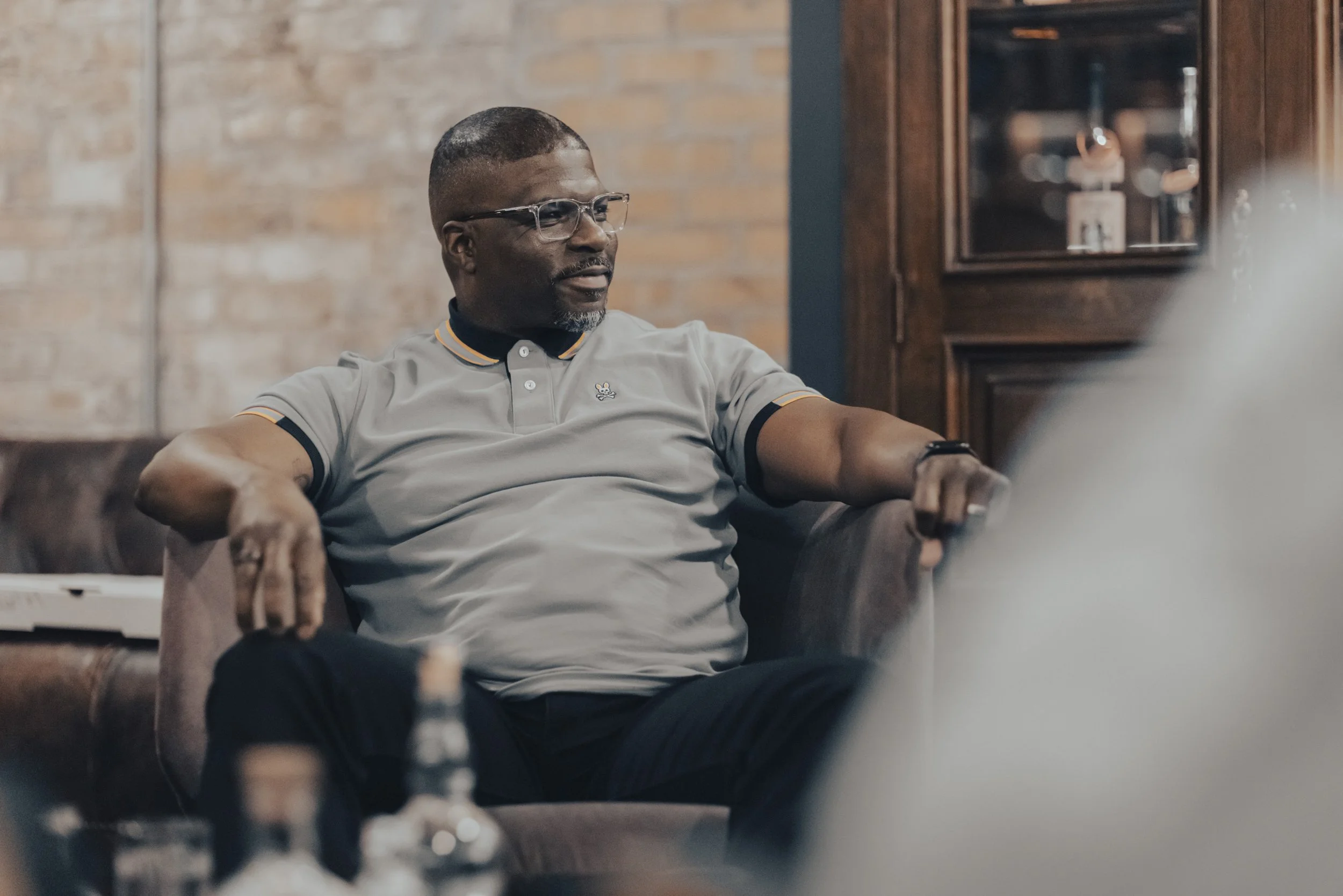

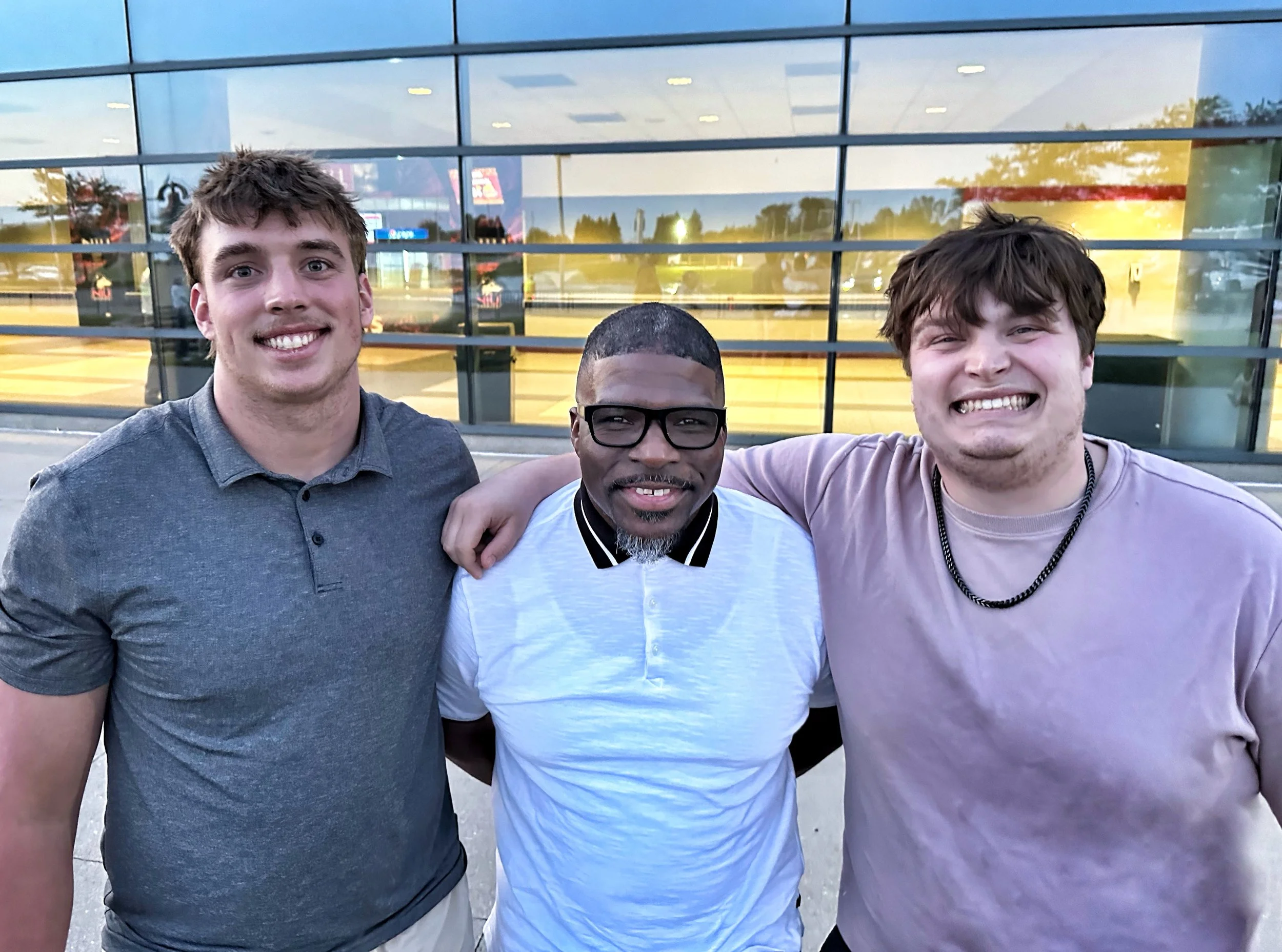
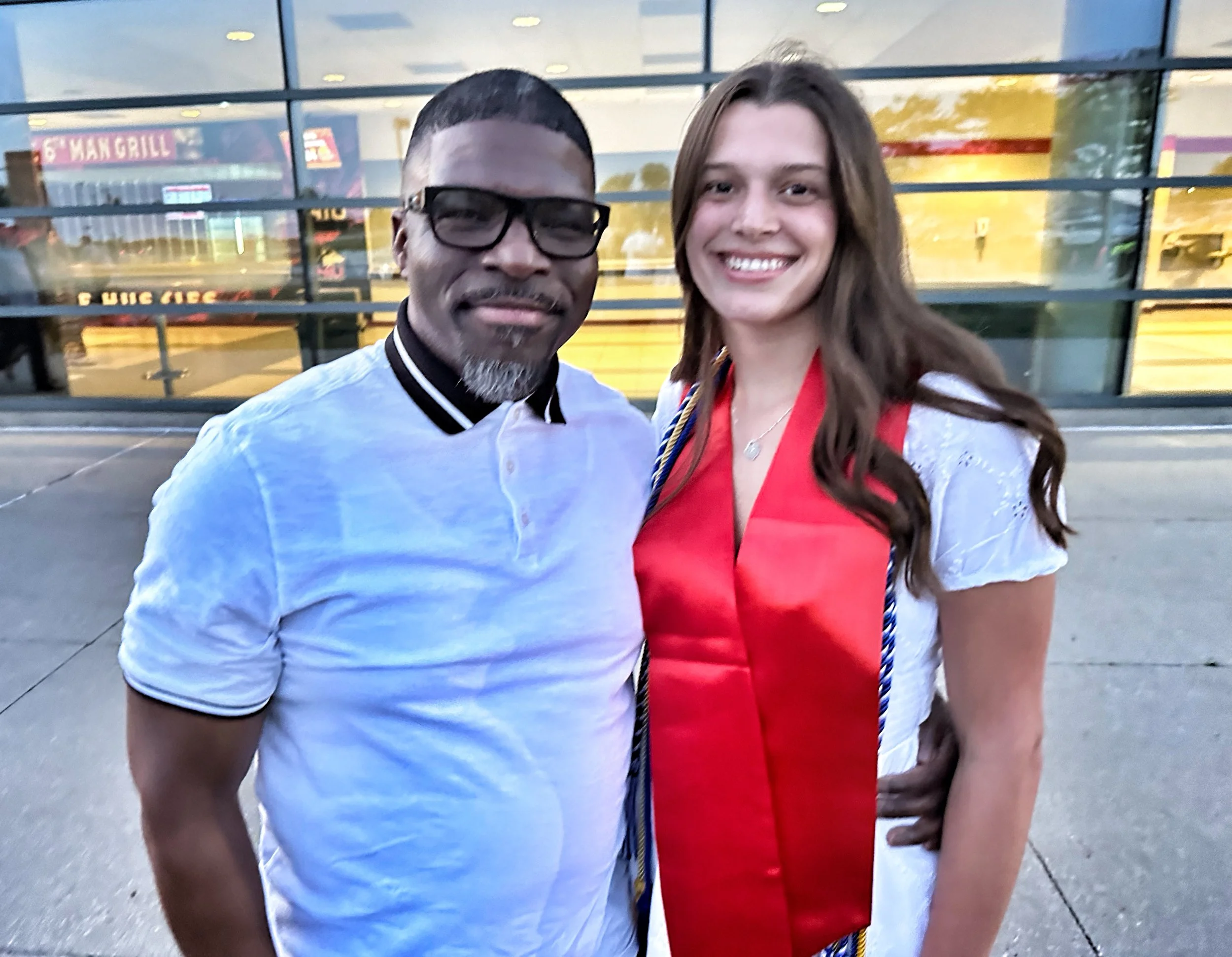
Learning From Our Differences
When you grow up in a world that tends to stay in its own lane, by race, class, or comfort, it takes intention to cross those lines. And yet, those are the conversations that change you.
I moved to Plainfield in 8th grade. Back then, I’d heard rumors of racism, stories of families who were treated unfairly or made to feel unwelcome, but I didn’t fully believe them. Then I saw it. Friends and families were literally run out of town. And I couldn’t understand it.
Even more horrifying was realizing that some of that same racism wasn’t just “out there.” It was closer to my family and friend group than I ever wanted to believe.
That’s a hard thing to admit, but it’s the truth. I was part of a world that could ignore it because it didn’t touch me directly. That’s privilege. And that’s where I was wrong.
I don’t see Deon as different from me. He’s my brother, my friend, part of my family. But I’ve also learned to see what he carries that I don’t, the extra calculations he has to make walking into certain rooms, the conversations he’s had to have that I’ve never needed to think about. That’s the tension and the gift of real friendship: you see the world through someone else’s eyes, and it changes the way you move through it yourself.
It wasn’t until college, meeting people like Deon and Kedzie, that I began to see the depth of what I’d missed. Deon grew up in Joliet, where the realities of race weren’t rumors, they were daily life. I grew up just a few miles away, in a place that had the luxury of pretending those problems didn’t exist.
That’s when I began to understand that awareness starts with proximity. You can’t see what you don’t stand close enough to notice.
Sarah and I have tried to live by that ever since, to surround ourselves, and our kids, with people whose stories are different from our own. Race, religion, background, belief, difference isn’t something to avoid. It’s something to learn from.
Why It Matters
We live in a world that often feels more divided than connected. But the data tells us something hopeful: friendship still has the power to bridge those divides.
Nearly 60 % of Americans say they have at least one close friend of another race, but only 35 % say they talk openly about race or culture.
People who maintain long-term cross-cultural friendships are more than twice as likely to describe their communities as “hopeful.”
Adults with diverse social circles report higher empathy, stronger problem-solving skills, and a greater sense of belonging.
And according to the American Psychological Association, people who build friendships across difference report lower stress and greater overall life satisfaction.
Friendship, it turns out, is one of the simplest, and most powerful, ways to create understanding.
The Work of Showing Up
What we’ve learned from Deon, and from so many others, is that being friends across difference isn’t a one-time act of inclusion. It’s a lifetime of curiosity.
It’s asking questions without assuming you already know the answers. It’s noticing when your world looks too much like you, and doing something about it.
It’s also about humility, knowing that you’ll get some things wrong, but choosing to stay in the conversation anyway.
That’s what Deon models. He listens, he mentors, he builds bridges, and he reminds our family that faith and friendship are best lived out loud, not in comfort, but in connection.
A Simple Reminder
Family isn’t only who you’re born to. It’s who you choose to walk with.
And the more those people reflect the real, beautiful mix of the world we live in, different races, stories, beliefs, and experiences, the more complete our lives become.
That’s what friendship does. It widens the circle.
Our friendship with Deon continues to shape how we raise our kids, how we build our community, and how we see the world. Because when we open our lives to people who don’t look or think like us, we don’t lose who we are, we find more of it.
Thanks for reading,
Justin
Life is a Road Trip: Choosing How We Spend Our Time
Time doesn’t just pass, it’s spent. In this blog, we share lessons from the road about making time to be, time to connect, asking better questions, and finding joy in the detours. Because life isn’t about speed, it’s about who’s in the car with you.
Time doesn’t just pass, it’s spent. And like a road trip, how we spend it is less about speed and more about what (and who) fills the miles.
For us, cars have always been one of the best classrooms. Long drives to college drop-offs, family vacations, or even Sunday errands have created space for conversations we might never have had otherwise. On one of those drives, taking Ava back to school, we decided to hit record. That’s how Episode 14, Road Trip Q&A: Talking Life on the Way Home, came to be.
We’re now 14 episodes into Running Ahrens. Fourteen conversations about marriage, parenting, running a business, and figuring out how to keep showing up for each other. And if there’s one lesson that keeps coming up, it’s this: time only matters if we’re intentional about it.
What We’ve Learned Along the Way
✔️ Time to be. Most of us pack our days until they burst. But studies show that people who regularly create “unstructured time” report 30% lower stress levels and higher creativity. Road trips give you that naturally, the miles create margin. We’ve learned to protect that space off the road too.
✔️ Time to connect. Harvard’s 85-year study on adult development found that close relationships, not money or success, are the single strongest predictor of long-term happiness and health. That means a simple car ride with questions and laughter may be more valuable than another hour at the office.
✔️ Ask better questions. Small talk fades fast, but the right questions can spark connection that lasts long after the car ride. Psychologists call them “high-nurturance questions”, the kind that deepen bonds because they invite stories, reflection, and vulnerability.
Instead of: “How was your day?”
Try:
For spouses:
“When did you feel most supported by me this week?”
“What’s something small that would make your life easier right now?”
“What’s one dream you’ve been carrying that we haven’t talked about?”
For kids:
“What’s one thing that made you laugh today?”
“If you could design your perfect weekend, what would it look like?”
“What’s something you’re proud of that no one knows about?”
Neuroscience backs this up: when someone feels listened to, their brain releases oxytocin, the same “bonding hormone” triggered by physical affection. So every good question + attentive response literally rewires the brain toward trust and closeness.
✔️ Listen without fixing. Couples who practice active listening report 62% higher relationship satisfaction. Resist the urge to jump in with solutions. Sometimes the best gift is just being heard.
✔️ Make room for joy. Road trip games, silly questions, and yes, even belting out your favorite songs—are more than distractions. They create shared memories. Research shows that families who laugh together regularly have stronger resilience when life gets hard.
✔️ Detours matter. Some of the best family moments happened when we stopped somewhere unplanned, or when a wrong turn turned into a new memory. That’s true in life too—the unscheduled often shapes us most.
Why This Matters
It’s tempting to think that meaning comes from big events or carefully planned milestones. But when we look back, what stands out are the small, consistent ways we connected. Conversations in the car. Shared playlists. Roadside snacks. The questions that made us laugh—or made us pause and think.
Being purposeful with your time doesn’t mean over-scheduling. It means choosing presence. Making room to ask, to listen, to sing, to sit quietly side by side.
An Encouragement
As we celebrate 14 episodes of Running Ahrens, we’d love your feedback. Which conversations have stayed with you? What do you want more of—marriage, parenting adult kids, business, health, friendship, or something else entirely? And just for fun: what’s your favorite road trip or travel game?
Your voice helps shape what comes next.
👉 Episode 14: Road Trip Q&A: Talking Life on the Way Home
Because in the end, life isn’t about how fast you get there. It’s about who’s in the car, the questions you ask, the songs you sing, and the memories you choose to make along the way.
—Justin & Sarah
Both Sides of the Family, How Friendship Becomes More: Lessons From Jenn & Ken
For nearly 20 years, Jenn and Ken Visocky-O’Grady have been part of what we call “Both Sides of the Family.” Together we’ve raised kids, swapped recipes, cheered at games, and carried each other through life’s mess and beauty. Friendship like this doesn’t happen by accident, it’s built with intention, vulnerability, and love that shows up again and again.
Friendship like this doesn’t just happen. It isn’t built by accident or by keeping walls up. It takes vulnerability, intention, and years of showing up.
That’s what makes our friendship with Jenn and Ken so special. For nearly twenty years, we’ve lived life together in ways big and small, raising kids, cheering at events, navigating loss, celebrating milestones, planning trips, and creating traditions that stick. We’ve learned that deep friendship requires being willing to let people see the messy, not just the polished.

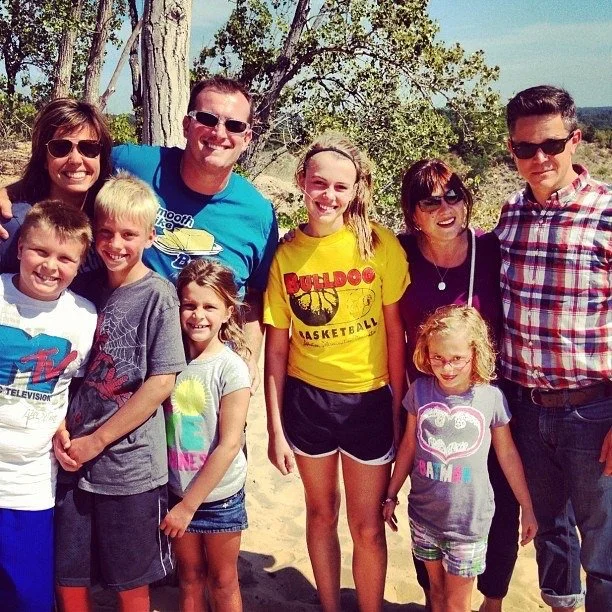
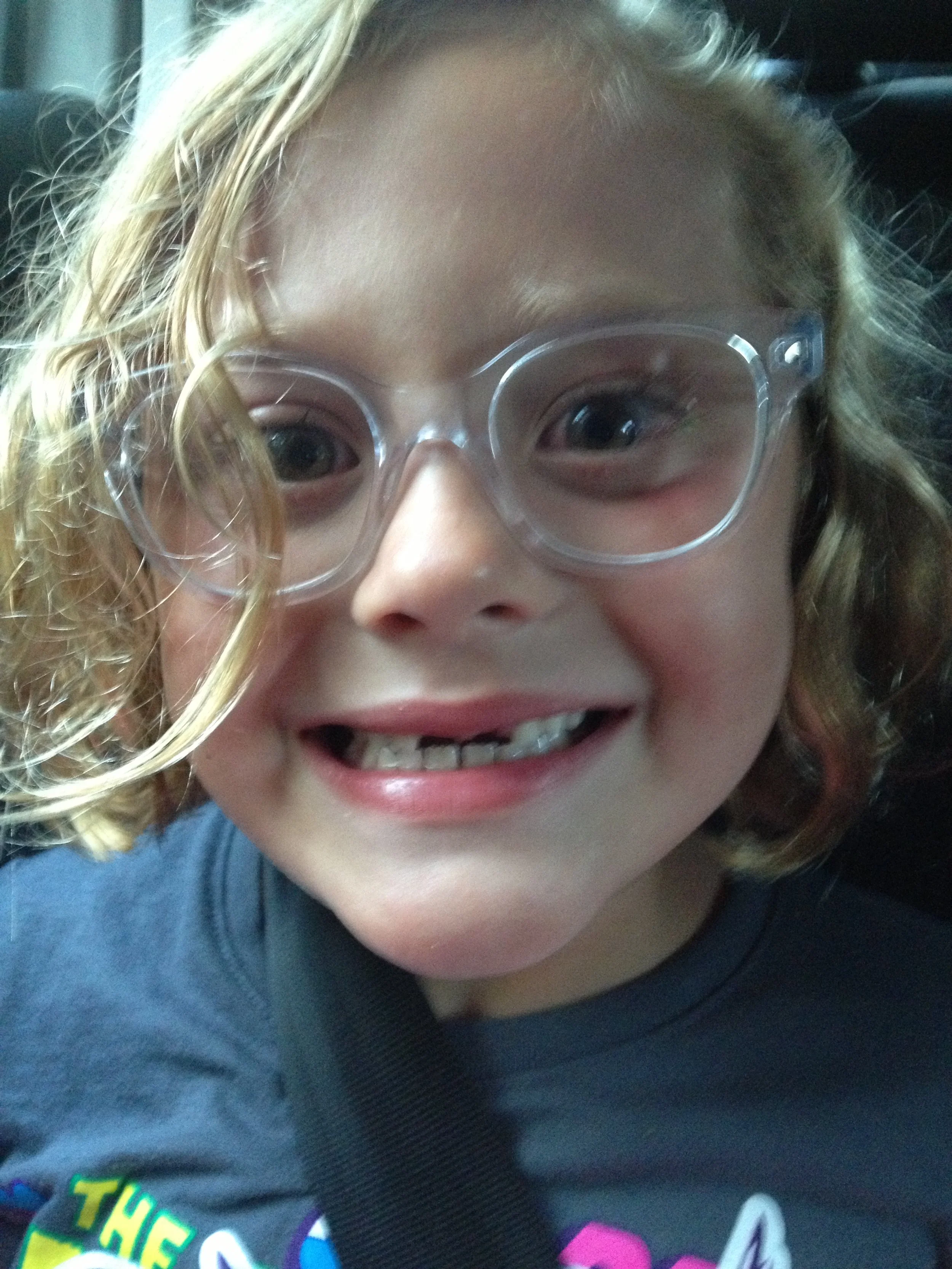
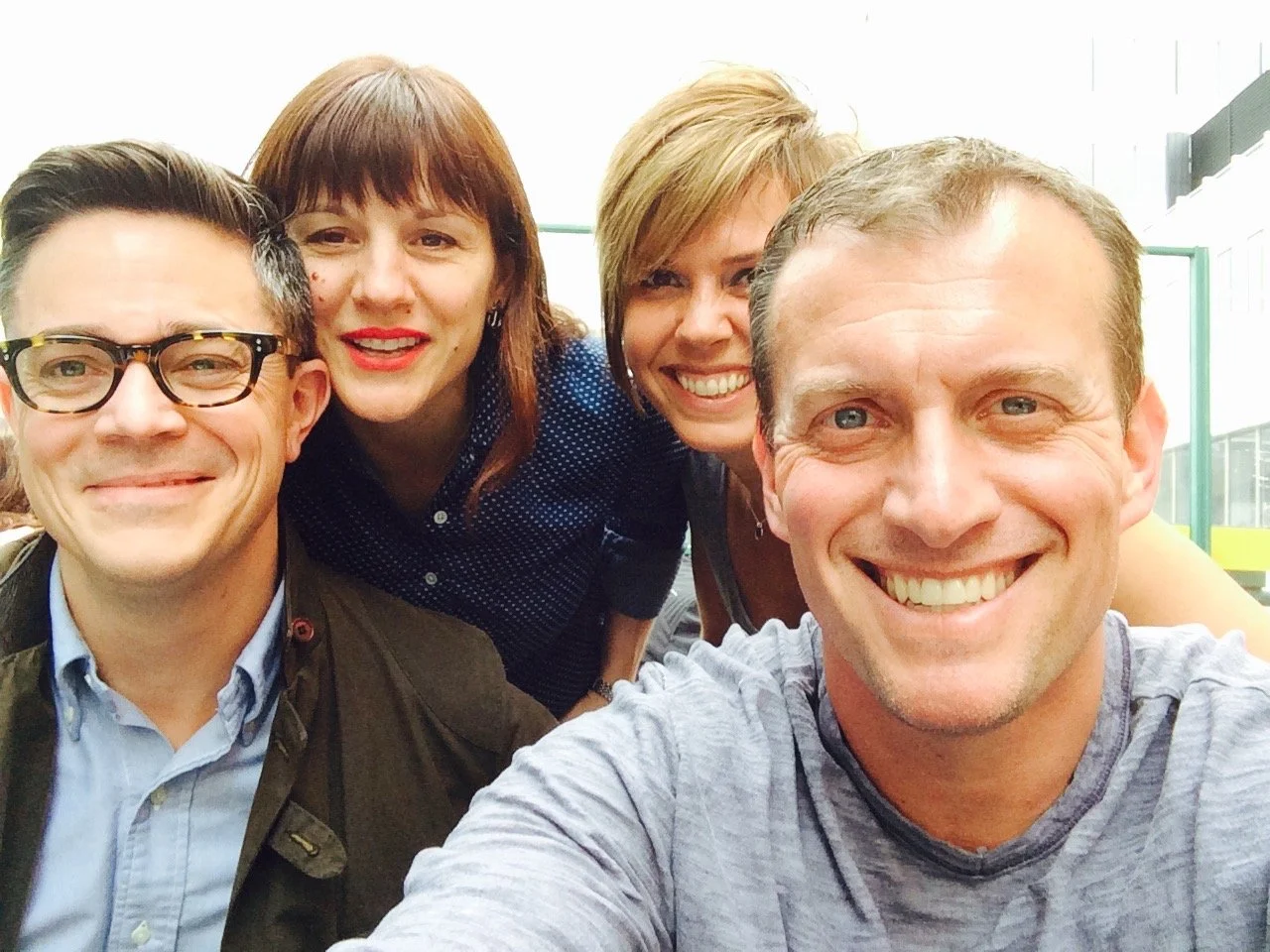



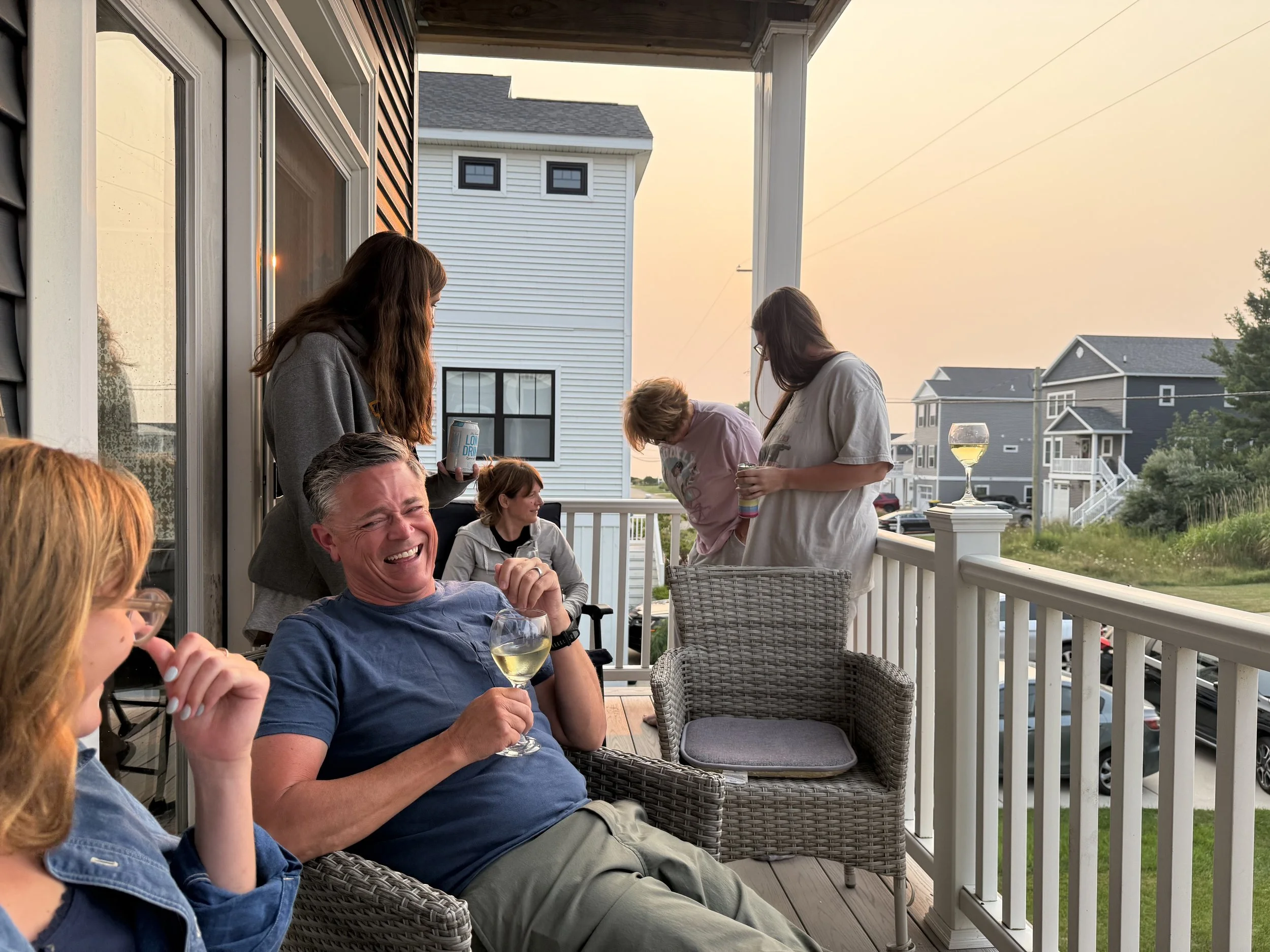
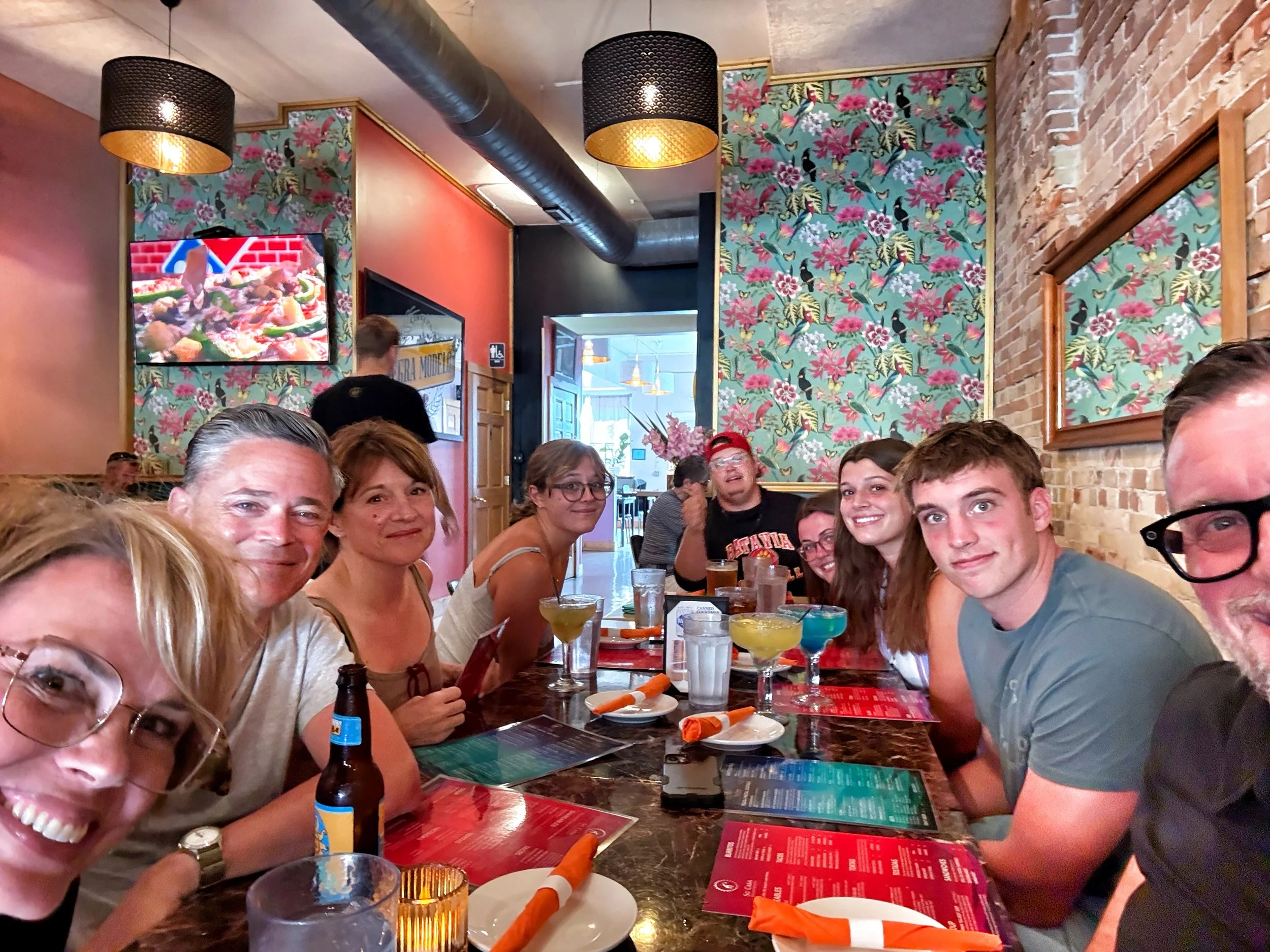

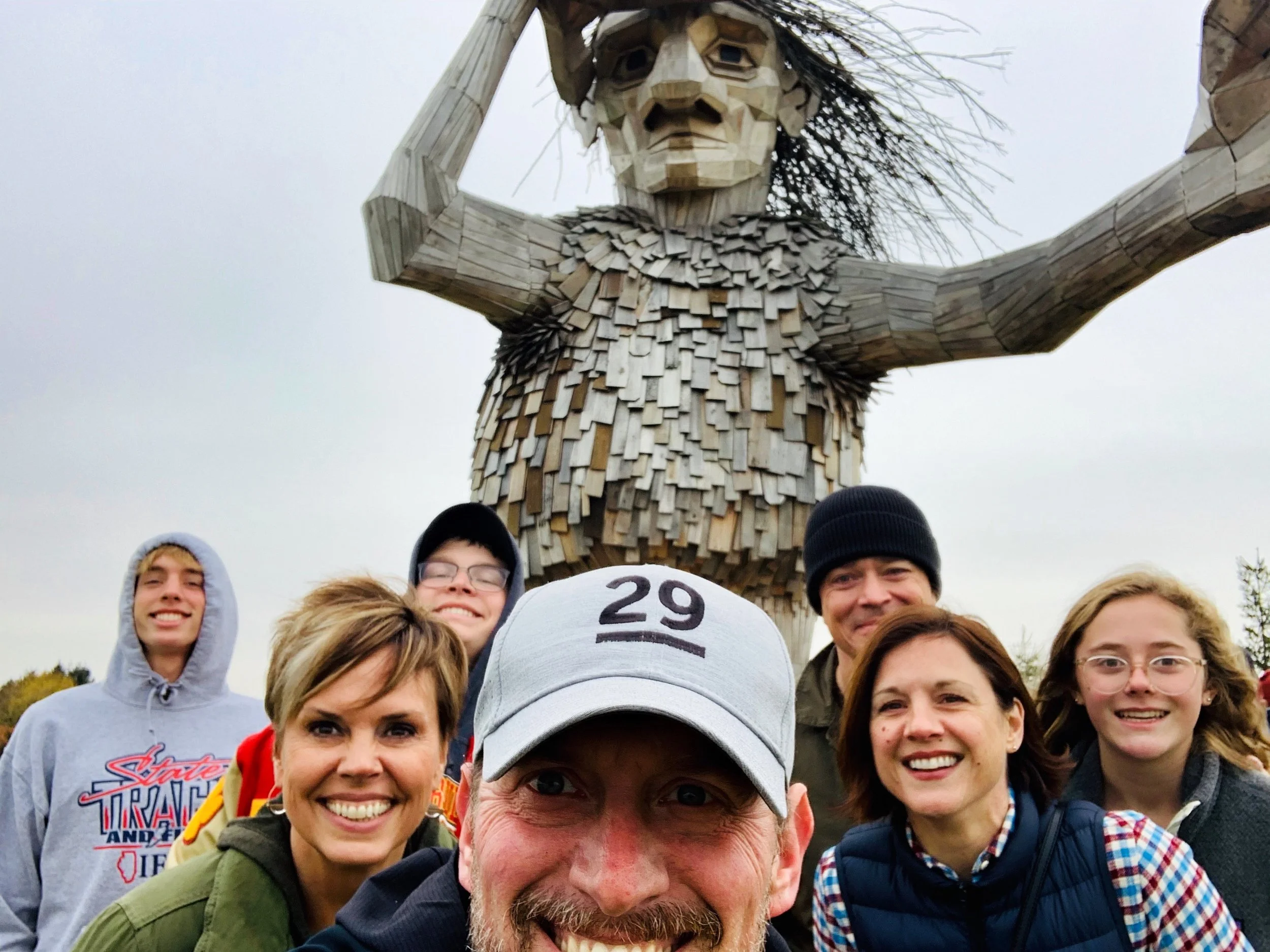
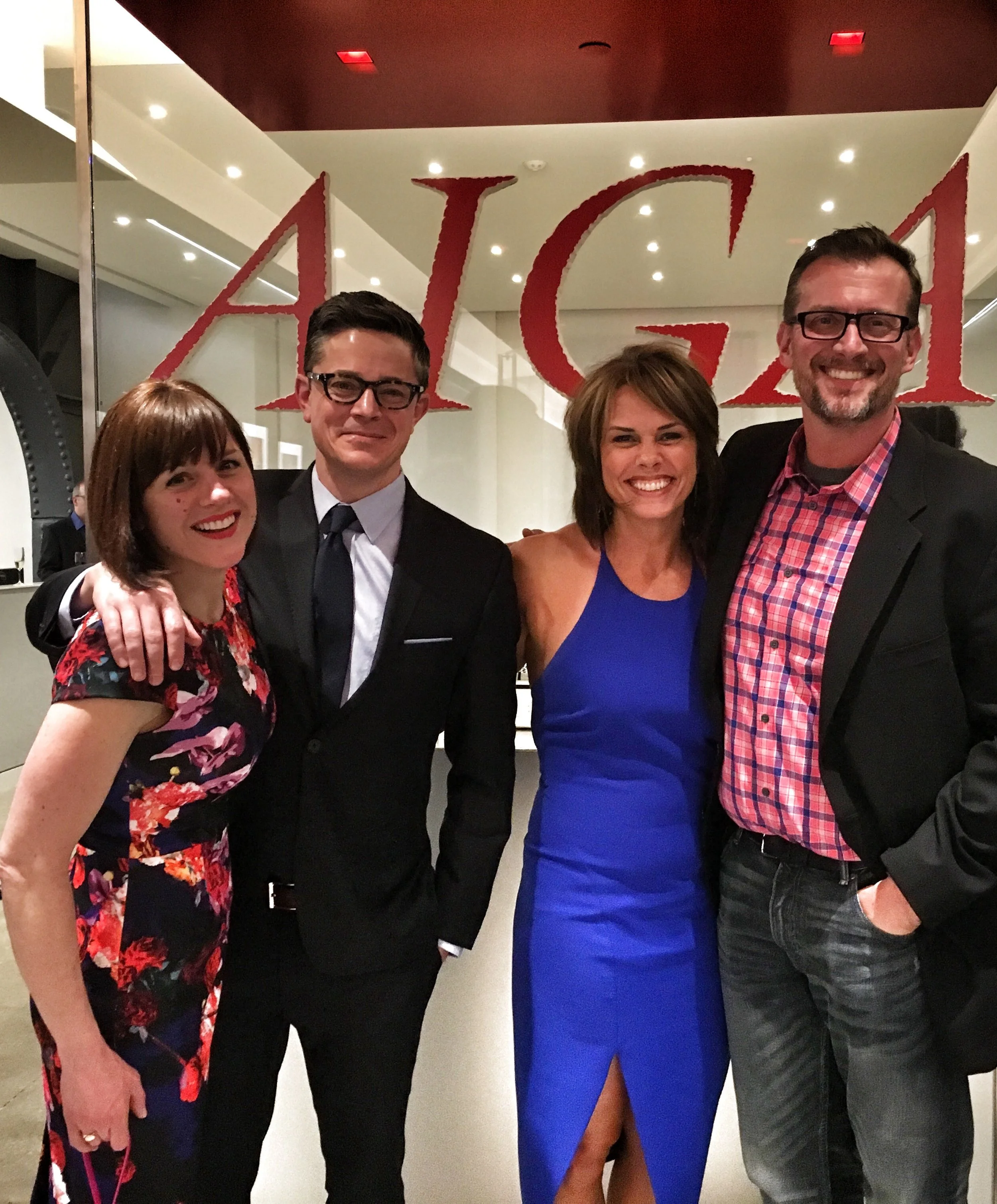
And while Jenn might prefer to deny that emotions exist, the truth is she is one of the deepest feelers and thinkers we know (don’t tell her we said that). She and Ken have taught us so much about how to think, how to listen, and how to love people with both head and heart.
We’ve worked at this friendship. We’ve found ways to connect on projects, in classrooms, and at conferences. We’ve carved out time for vacations and adventures, even if it meant hauling kids and luggage halfway across the country. We’ve shared dreams on long bike rides, laughs over cocktails (yes, even the infamous Malört experiment - see below), and encouragement in our both sides of the family text threads that have become our own lifelines and connection points.
We’ve been there for the small, tender moments too: celebrating first teeth lost, swapping recipes that became staples in each other’s homes, creating holiday traditions that made our kids feel like cousins (because they are). These little rituals, the meals, the milestones, the memories, are what knit us together as much as the big trips and projects.
We love them dearly, and we know it goes both ways. This isn’t one-sided, it’s mutual, intentional, chosen again and again. And that’s what makes it rare.
What We’ve Learned Along the Way
✔️ Proximity isn’t the secret—intention is. We live two states apart, but our traditions, texts, and trips make the distance disappear.
✔️ Kids thrive when they’re surrounded. Studies show children with multiple trusted adults outside their immediate family grow up more resilient, confident, and emotionally healthy. Our kids see Jenn and Ken as aunt and uncle. Their Lulu sees us as family. That belonging matters.
✔️ Shared projects deepen trust. Whether it’s a book, a bike ride, or planning a trip, working toward something together builds closeness in ways that small talk can’t.
✔️ Differences don’t have to divide. We don’t see eye-to-eye on everything, faith, politics, even baseball teams, but respect and curiosity keep us connected. Love is bigger than the divides.
✔️ Community makes life healthier. Harvard’s 85-year study on adult development found that close relationships are the single strongest predictor of long-term happiness and health. People with deep connections live longer, get sick less often, and recover faster.
Why This Matters
Too often, we assume friendship will take care of itself. But deep, sustaining friendships, the kind that last decades, don’t happen without effort. They require planning, vulnerability, shared traditions, and the courage to let people see your whole self.
They also require forgiveness and flexibility. Not every season will be equal. Sometimes you’ll be the one showing up more; other times you’ll be the one receiving. But the give-and-take is what makes it real.
An Encouragement
If you have friends who feel like family, don’t take it for granted. Nurture it. Send the text. Make the trip. Start a tradition that will outlive a busy season. If you don’t yet, be open. Vulnerability is the soil where deep friendship grows.
We’re grateful beyond words for Jenn and Ken. This episode of Running Ahrens is a wonderful sharing to the kind of friendships that carry us through.
👉 Episode 13: Designing Friendship with Jenn & Ken Visocky-O’Grady
Because in the end, it’s not about finding people who agree with you on everything. It’s about finding the ones who keep showing up, no matter what.
—Justin & Sarah
PS: Try the Two Step Dads if you dare:
The Two Step Dads Recipe:
4oz Rye
1oz Sweet Vermouth
.5oz Reposado Tequila
.5oz Jeppson’s Malort
Dash of Turkish Tobacco Bitters
Mezcal Rinse
Stir and serve up or over big rock ice
From Jersey to Whistle: What #66 is Teaching Me Now
Seeing Jackson coach on the same field where he once wore #66 stopped me in my tracks. He’s becoming the kind of leader he needed, steady, thoughtful, and focused on both the game and the kid. As a mom, watching him step into who he was created to be is humbling, holy, and a reminder of what really matters.
Jackson wore #66 when he played football for Batavia Bulldog Football. He wasn’t the loudest on the field, he was steady. Always thinking two steps ahead. For him, football was never just a sport. It was a puzzle to solve. A system to understand.
And now, he’s back on that same field. Only this time, he’s the one holding the whistle. Coaching freshmen. Pouring into kids who are just starting out. And wouldn’t you know it, one of his players is wearing #66.
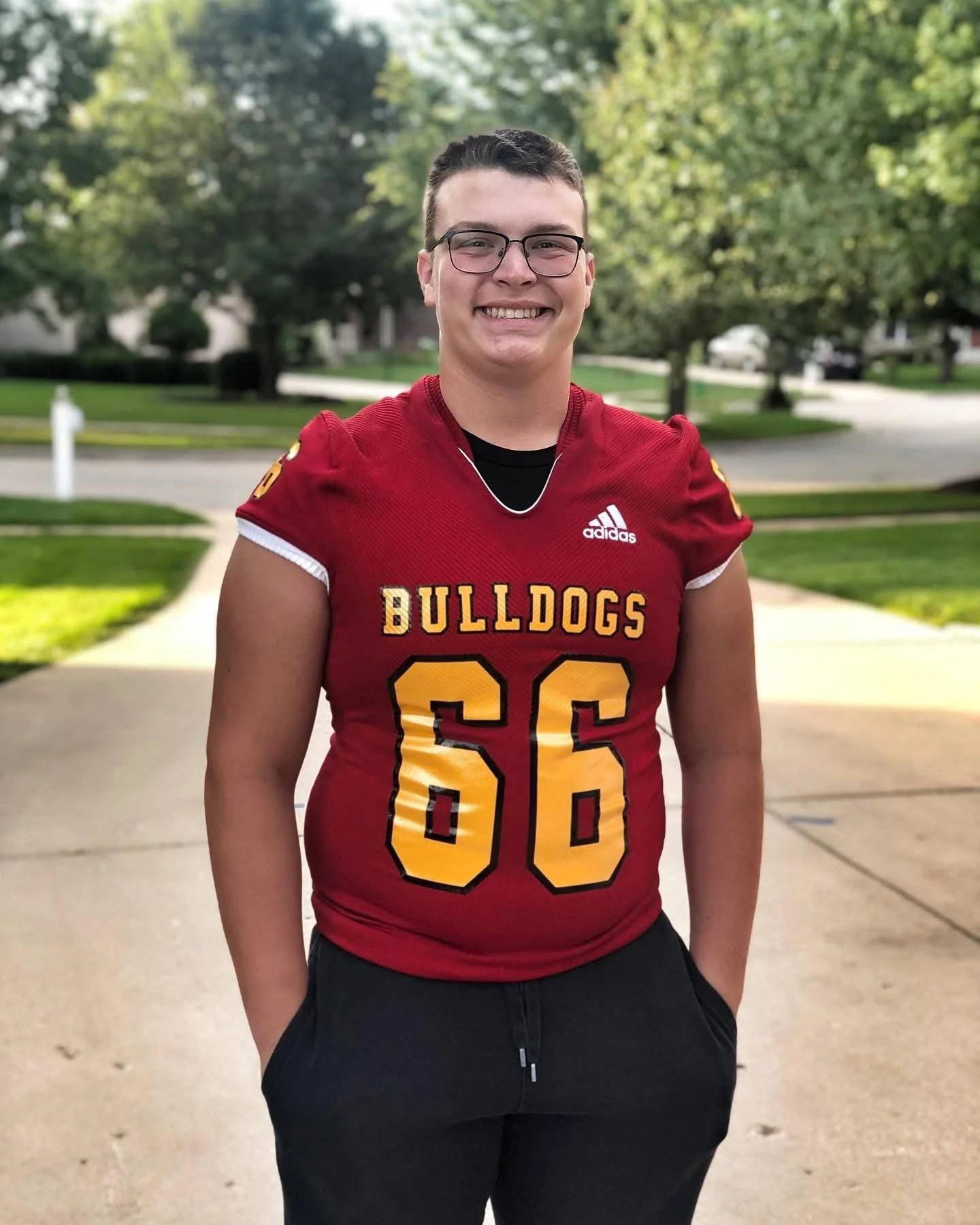
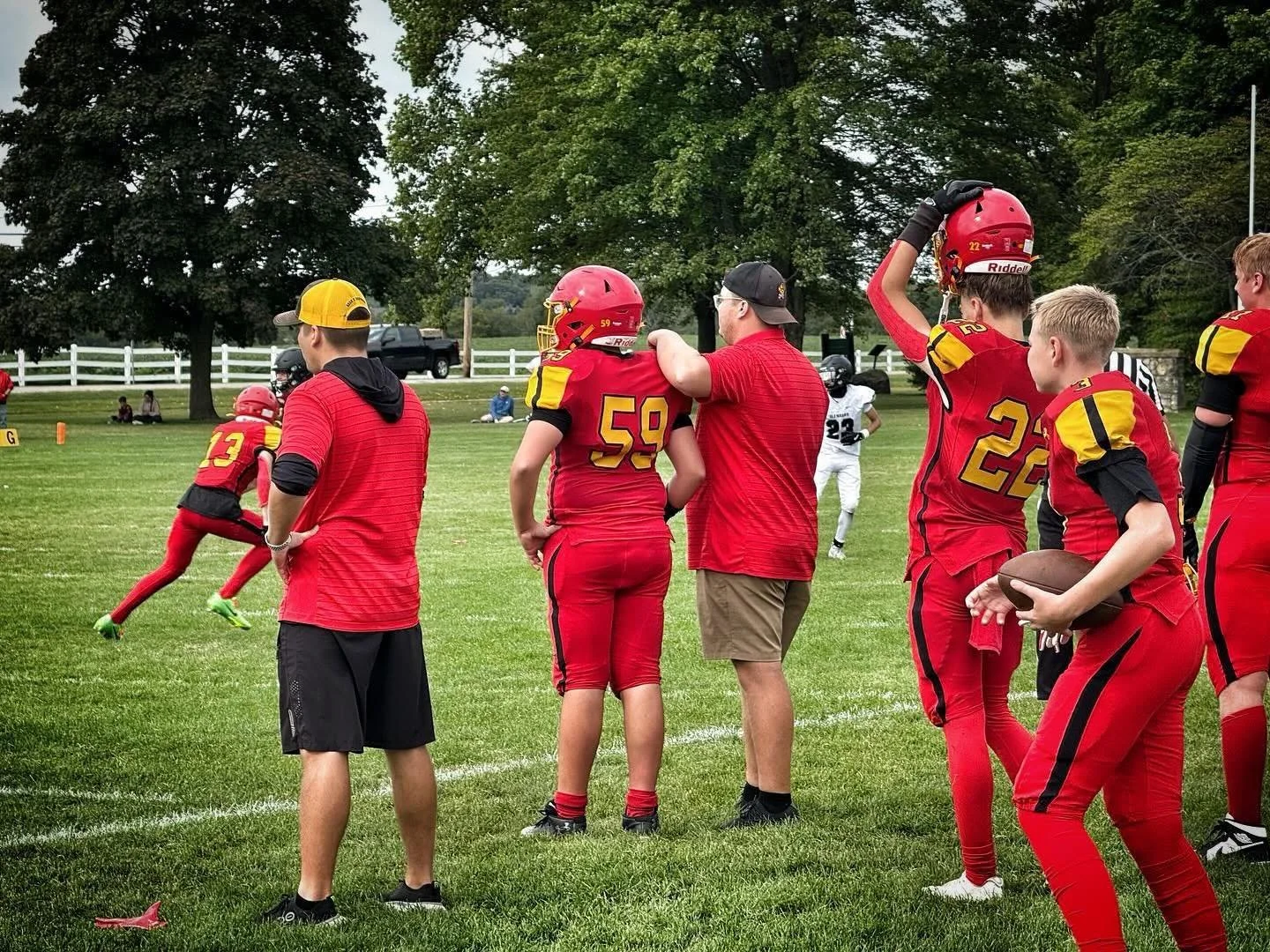
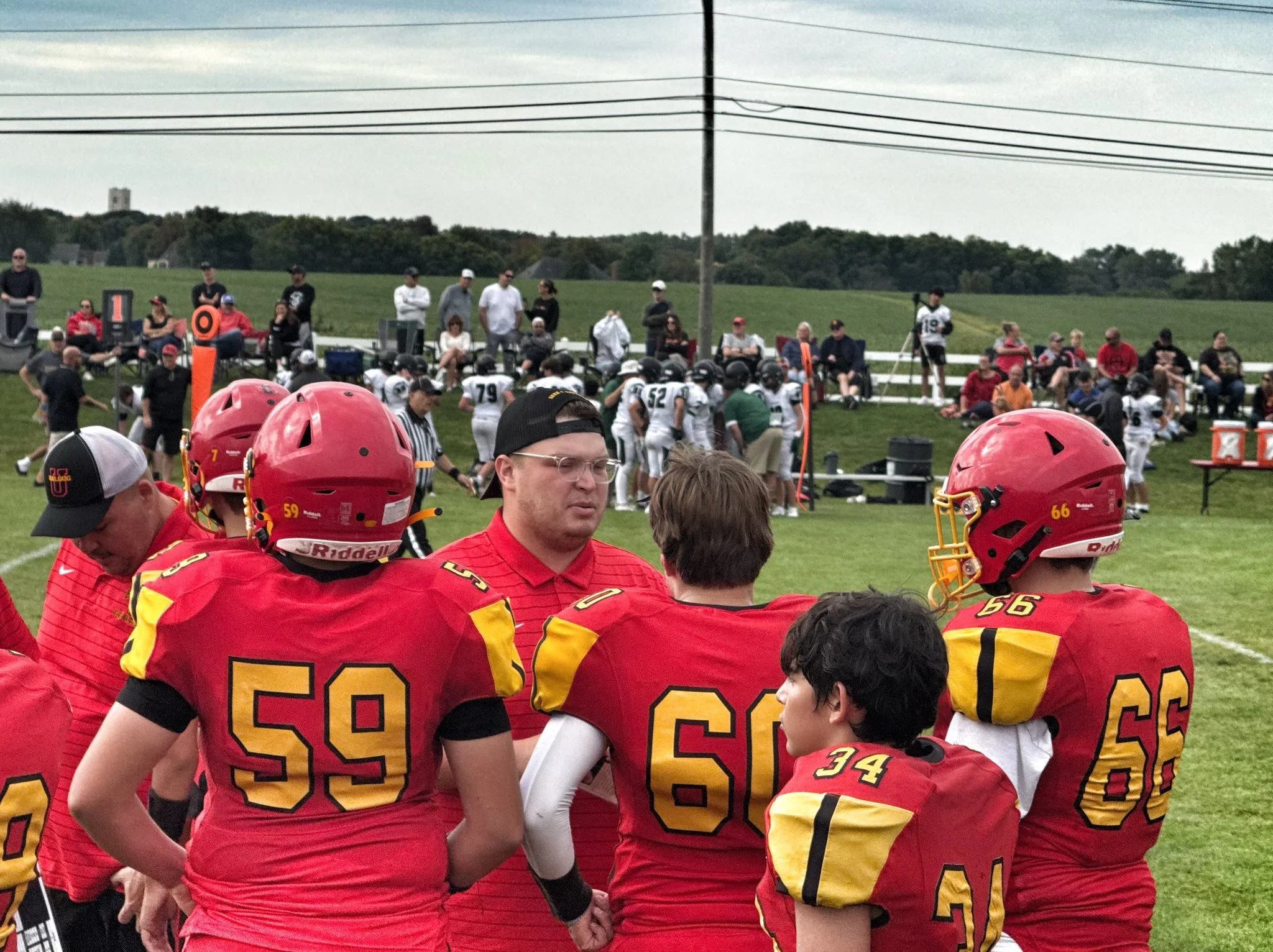
This season of life we’re in feels textured. Our house is full again. The fridge empties faster than we can stock it. We’re figuring out what it means to parent in a whole new way. It’s messy and beautiful, often at the same time.
Football has always been part of our family’s rhythm.
Justin played at Illinois Wesleyan. An injury cut his playing short, but his Titan teammates are still like brothers to him.
Quinn won a national championship at North Central, carrying lessons of grit and humility we still see shaping him today.
And me? One of Justin and my very first dates was a Notre Dame Football experience - starting with a Friday night movie, Rudy. The next morning, we were in South Bend at a Notre Dame tailgate. I held the Heisman Trophy in my hands, and we watched the Irish beat USC. That weekend sealed something for both of us.
We love football. We love sports in general. Not just for the game, but for what they teach: discipline, resilience, teamwork, humility, preparation, tradition, heart.
And I’ll be honest, I loved the sideline years too. The cold bleachers, the crockpot dinners, the carpools, the Friday night lights. They were exhausting, yes, but also holy ground. Because that’s where you get to watch your kids learn the hard lessons in real time.
Now to see Jackson step into coaching, becoming the kind of leader he once needed, it humbles me. He sees the game and the kid. He carries forward what was poured into him. And now he’s passing it on with quiet strength.
That’s what I’m learning too:
✔️ What shapes us becomes what we pass on.
✔️ God wastes nothing, not the practices, not the setbacks, not the victories.
✔️ Parenting shifts from guiding to watching, and that’s its own bittersweet gift.
Watching your kids become who they were created to be is both ache and awe. It makes your heart burst with pride and break with gratitude at the same time.
Life isn’t linear. It bends, it loops, it circles back. Sometimes it brings you right back home, only now, you’re the one on the sideline, watching your child carry it forward. Tears close, heart full, grateful beyond words.
If you’ve ever stood on the sideline and watched your child step into their purpose, you know the feeling. The mix of pride, tears, and thankfulness that just about undoes you. I’d love to hear your story too.
Grateful you’re here,
Sarah
When the Nest Refills: Embracing Parenting & Midlife Flourish
Three kids back under one roof. Shoes go missing, pans pile up, and yet… the dinners, laughs, and morning coffee talks make it a season we’re grateful for. Parenting adult kids is messy, and a gift.
When we sat down to record this episode of Running Ahrens, we didn’t expect it to hit quite so close to home, literally. A year ago, we thought our house was beginning to quiet down. Kids graduating, moving out, building their own lives. But now, three of our four are back under our roof, and it feels like a whole new chapter of parenting we never really planned for.
There are moments of laughter (and a lot of noise), a fair share of “how did we get here?” conversations, and plenty of gratitude. This isn’t the season we imagined, but it’s quickly becoming one we’re thankful for.
The Shift We Didn’t See Coming
Parenting adult children is different. It’s not about managing schedules or homework anymore. It’s about car insurance, phone bills, and navigating the blurred line between being an ATM and being a safety net. It’s making sure they feel supported while also nudging them toward independence.
And the stats back it up:
1 in 3 U.S. young adults live at home with their parents.
65% of families report tension around chores, money, or space.
74% of adult kids say they want emotional support, not advice.
We’re finding all of that to be true. Sometimes it’s funny, like Quinn still managing to lose something daily. Sometimes it’s frustrating, like dirty pans left in the sink when everyone swears they’ll “get to it later.” But beneath those small annoyances is a bigger reality: we’re learning how to set new boundaries, with our kids, with each other, and with our parents as we begin to support them more, too.
Growing Individually, Growing Together
While our kids are learning how to step into adulthood, Sarah and I are also evolving. Midlife has brought its own changes, in our faith, in our marriage, and in how we see our roles in the world.
Richard Rohr talks about the “second half of life” as a time of deconstruction and reconstruction. That resonates with us right now. We’re asking better questions. We’re less interested in control and more focused on curiosity.
Individually, we’re pursuing new passions (Sarah’s taken up golf, Justin is all-in on exploring AI). Together, we’re learning to enjoy each other in ways that aren’t tied to raising small kids or running a business side by side.
And as we reflect, we keep coming back to this truth: what we choose to do now, especially with our health, time, and relationships, is shaping whether our future selves will feel grateful or regretful.
Everyday Joys in a Full House
Yes, dinner planning after 30 years can feel exhausting. Yes, empty boxes in the fridge still make us crazy. But this season also brings small, everyday joys we don’t want to overlook:
Family dinners that turn into long conversations about the day’s wins and losses.
Watching shows together on the couch, laughing at the same ridiculous moments.
Morning coffee talks where the house feels both busy and connected.
These rhythms may not have been the plan, but they’re a gift, a chance to enjoy one another in a way we know we’ll look back on with gratitude.
Parenting While Parenting Up
There’s another shift happening, too: our parents are aging. We’re stepping in more often to support their health, transitions, and daily needs. It’s a privilege, but also a reminder, someday, our kids will be in this role for us.
That thought has made us ask hard but good questions: How do we want to prepare now? What can we learn from caring for our parents that will help our kids someday? How can we make it easier for them to walk with us in the future?
We don’t have all the answers yet. But we want to be intentional. Just as we’re guiding our kids into adulthood, we also want to guide them in how to care for us when the time comes, with honesty, openness, and love.
If You’re in This Season Too…
Here are a few things we’re learning (and unlearning) about parenting adult kids while still growing ourselves:
Support without smothering
Be available, but don’t take over. Sometimes the best thing you can do is listen without fixing.Set clear expectations
Whether it’s chores, bills, or shared space, talk openly. Don’t assume they know what you want.Celebrate progress, not perfection
Launching takes time. Some steps forward, some steps back, and that’s normal.Keep room for yourself
Your life, your marriage, and your faith are still evolving. Give each other the space to grow individually, not just as parents.Look forward with intention
How you care for your parents now shapes how your kids will someday care for you. And how you invest in your health, your habits, and your relationships today will determine whether your future self thanks you, or regrets the choices you avoided making.
The Story We’re Living
Parenting in the launch years is both harder and better than we expected. It’s frustrating at times, but it’s also deeply rewarding. We’re stretched, we’re learning, and we’re grateful.
So if you’re in this stage, whether your kids are coming home, heading out, or boomeranging between both, know that you’re not alone. It’s a lot. And it’s also a great time to be a parent.
Thanks for walking through this season with us.
With gratitude,
Justin & Sarah
When Loud Kids Don’t Feel Heard: What Quinn’s Story Has Taught Us So Far
We thought we had Quinn figured out. Loud, tall, full-speed from the start. But somewhere between the energy and the achievements, we missed the quiet parts. In this post, we reflect on what it means to truly hear your kids, especially the ones who seem like they don’t need you to. A look at parenting from the middle seat, and what our third child helped us finally understand.
We thought we had Quinn figured out.
He was the third of four. The tall one. The loud one. The full-speed, full-volume, all-in kid from the jump.
He made friends easily. Lit up the sidelines. Always had a story to tell, even if you didn’t ask for it. He was the kind of kid who filled the house and the silence at the same time.
But here’s the truth we didn’t see back then:
Sometimes, the loudest kids still don’t feel heard.
And sometimes, the ones who seem “fine” are just the best at covering it up.
The Middle Kid Mystery
Birth order isn’t a formula, but it does matter. Psychologists say middle children are more likely to become adaptable, diplomatic, and independent, because they have to be.
But they’re also the least likely to be asked:
“Hey, how are you really doing?”
They’re the ones in motion. The ones you don’t worry about because you’re worrying about the oldest’s firsts or the youngest’s meltdowns.
We didn’t realize it at the time, but that’s what was happening with Quinn.
He was the peacekeeper (sometimes), he actually held things in vs share how he was feeling. The entertainer. The easy laugh. And deep down, he was trying to carry a lot.
What We Missed
He had speech issues as a little kid, and we cheered him on through it, but we didn’t always stop to ask what it felt like.
He got injured during a key moment in his athletic career, and we didn’t fully believe him at first. Not because we didn’t love him, but because we thought pushing him was helping.
We heard the noise, the drive, the big energy.
But we didn’t hear the quiet parts, the doubts, the fears, the questions he didn’t know how to ask yet.
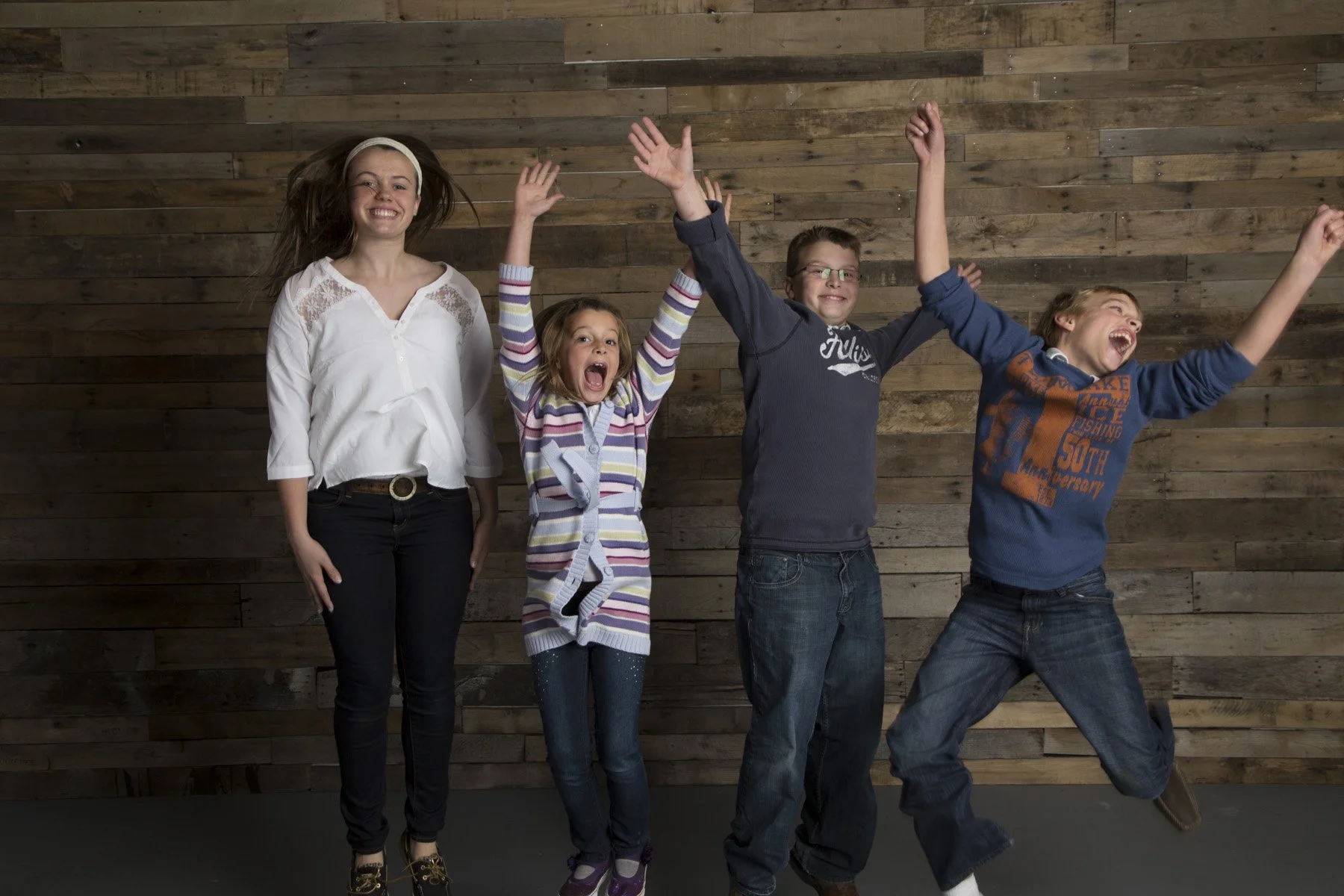





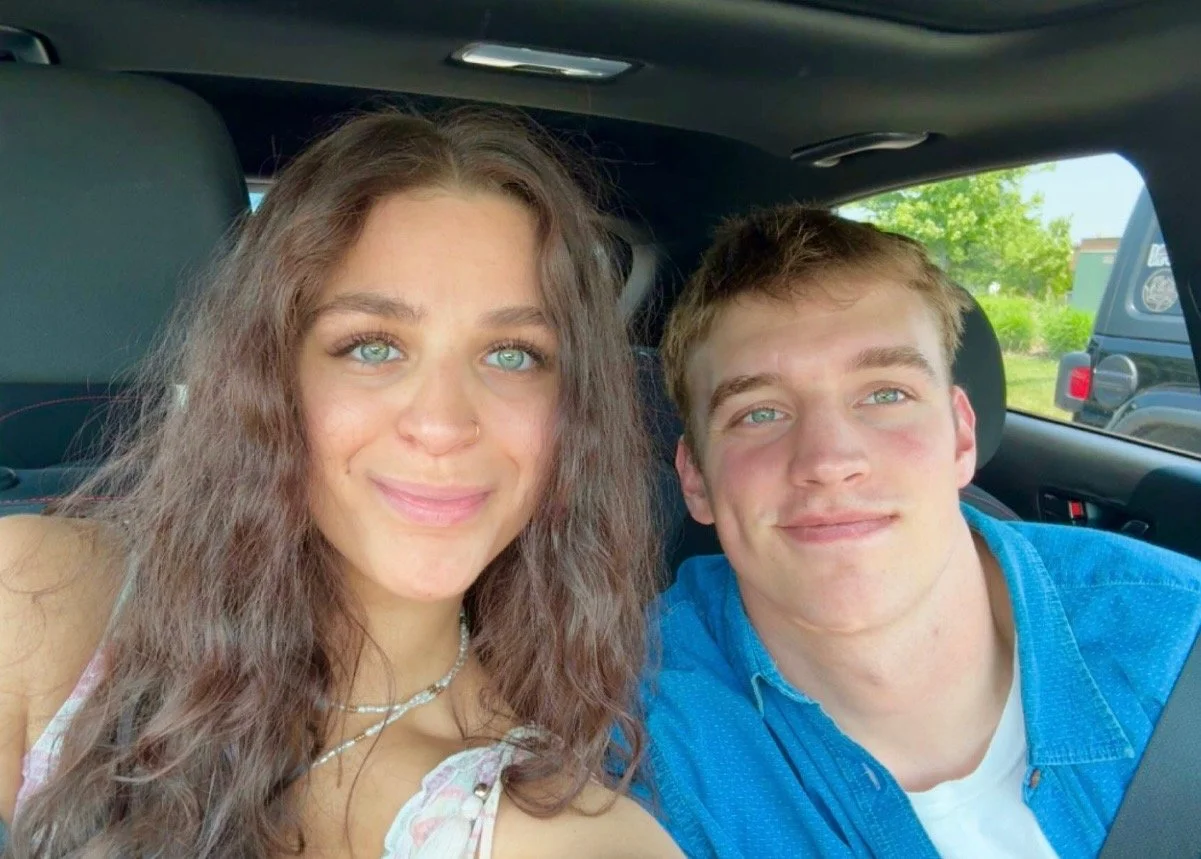
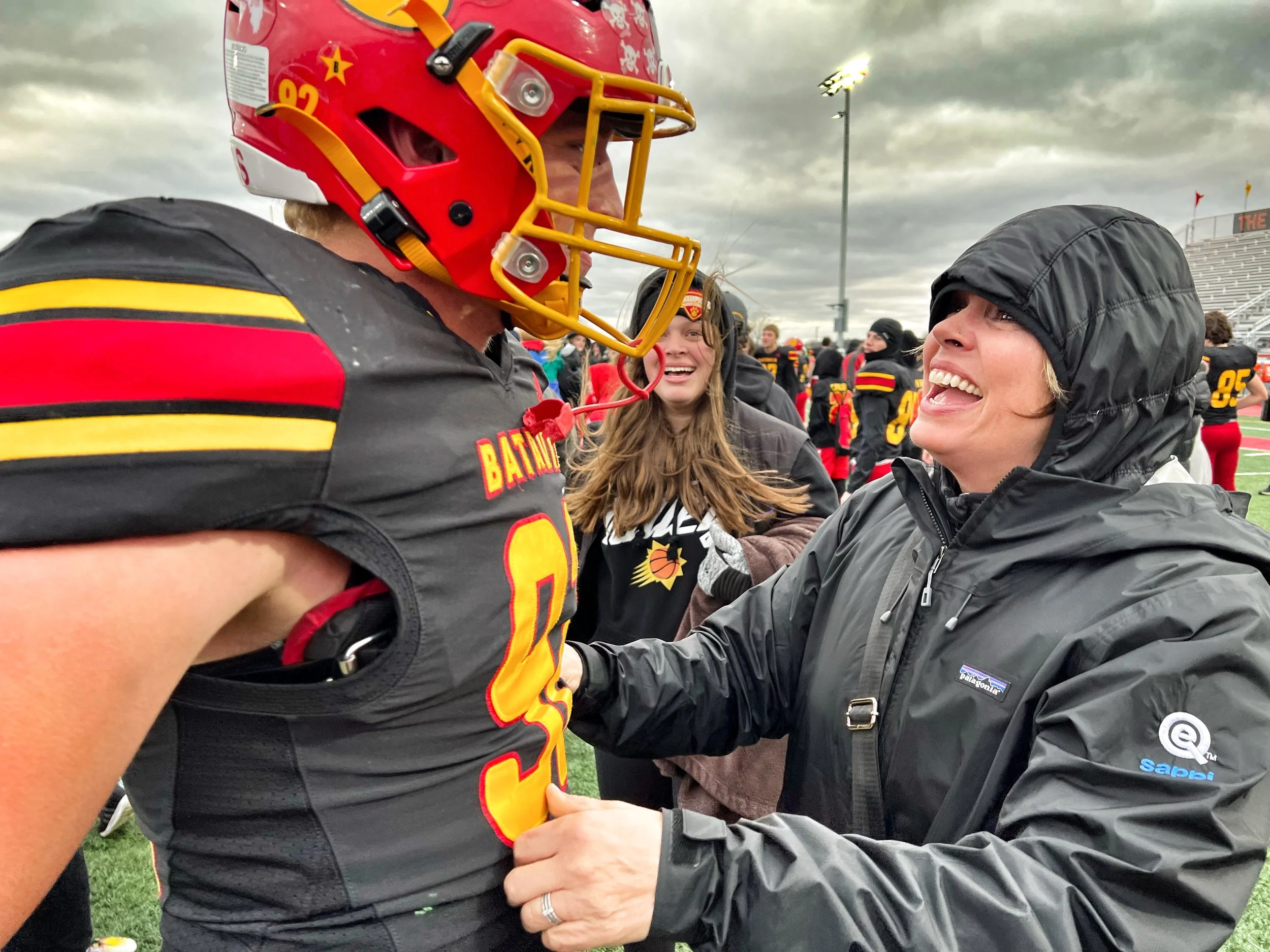
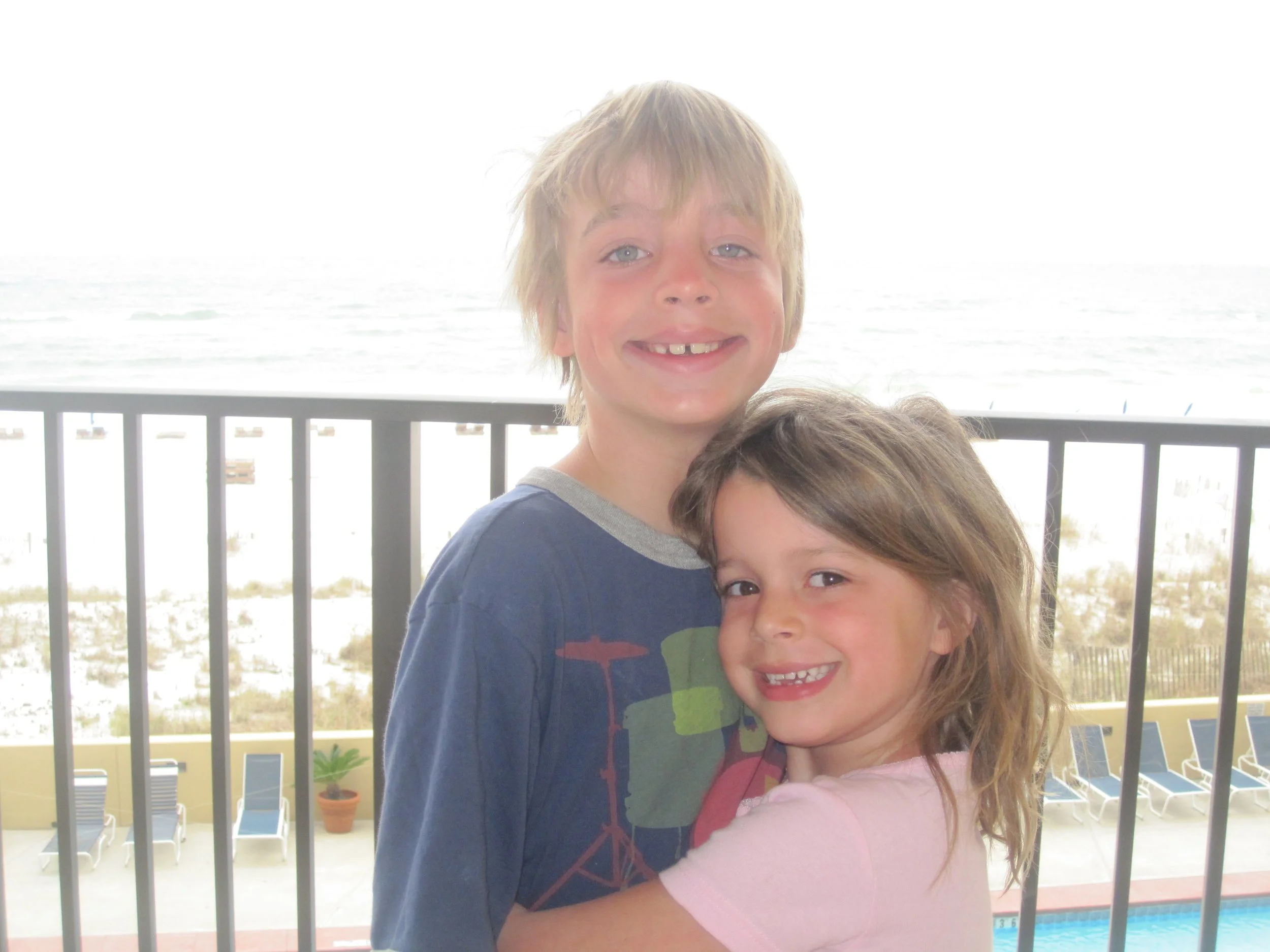

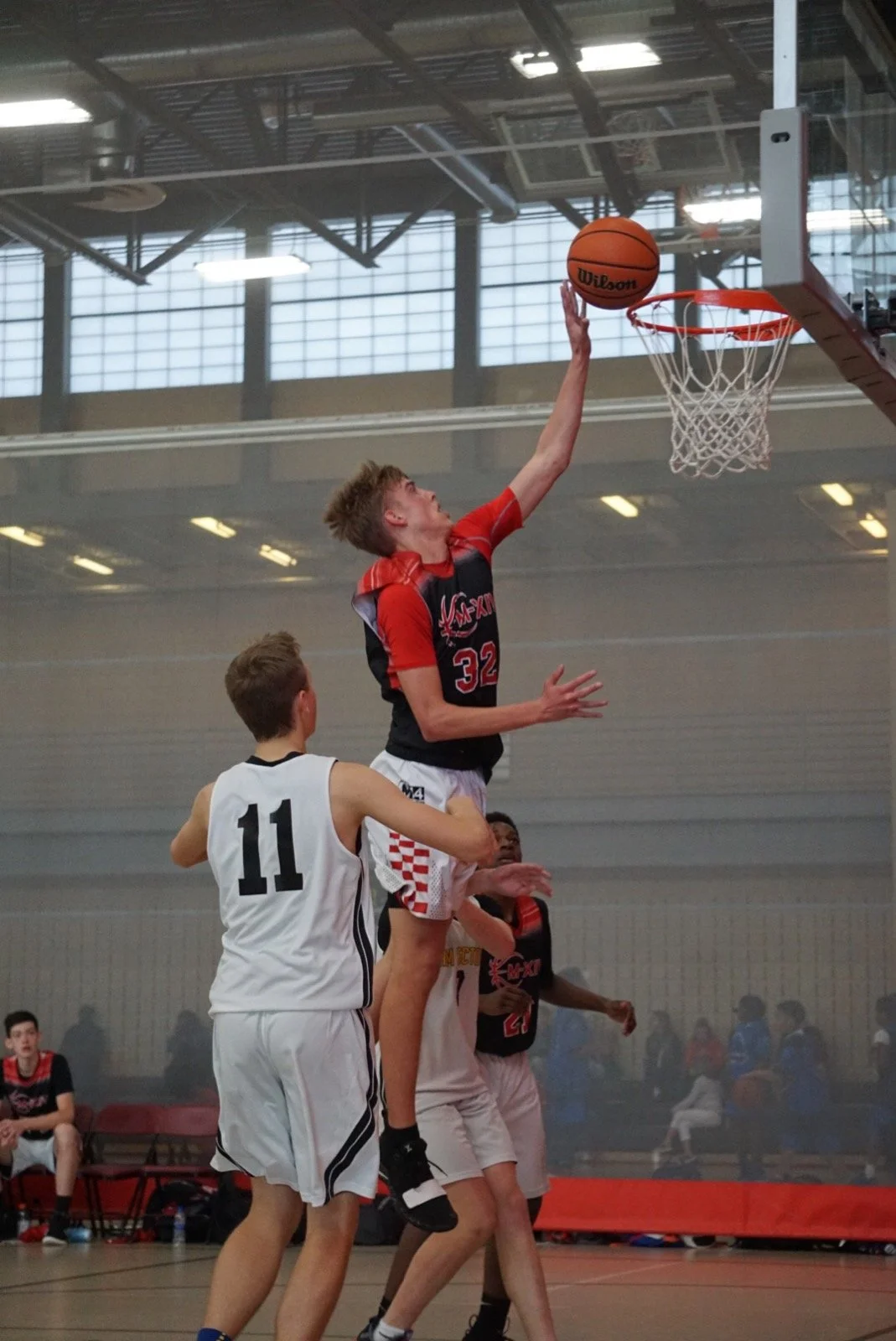
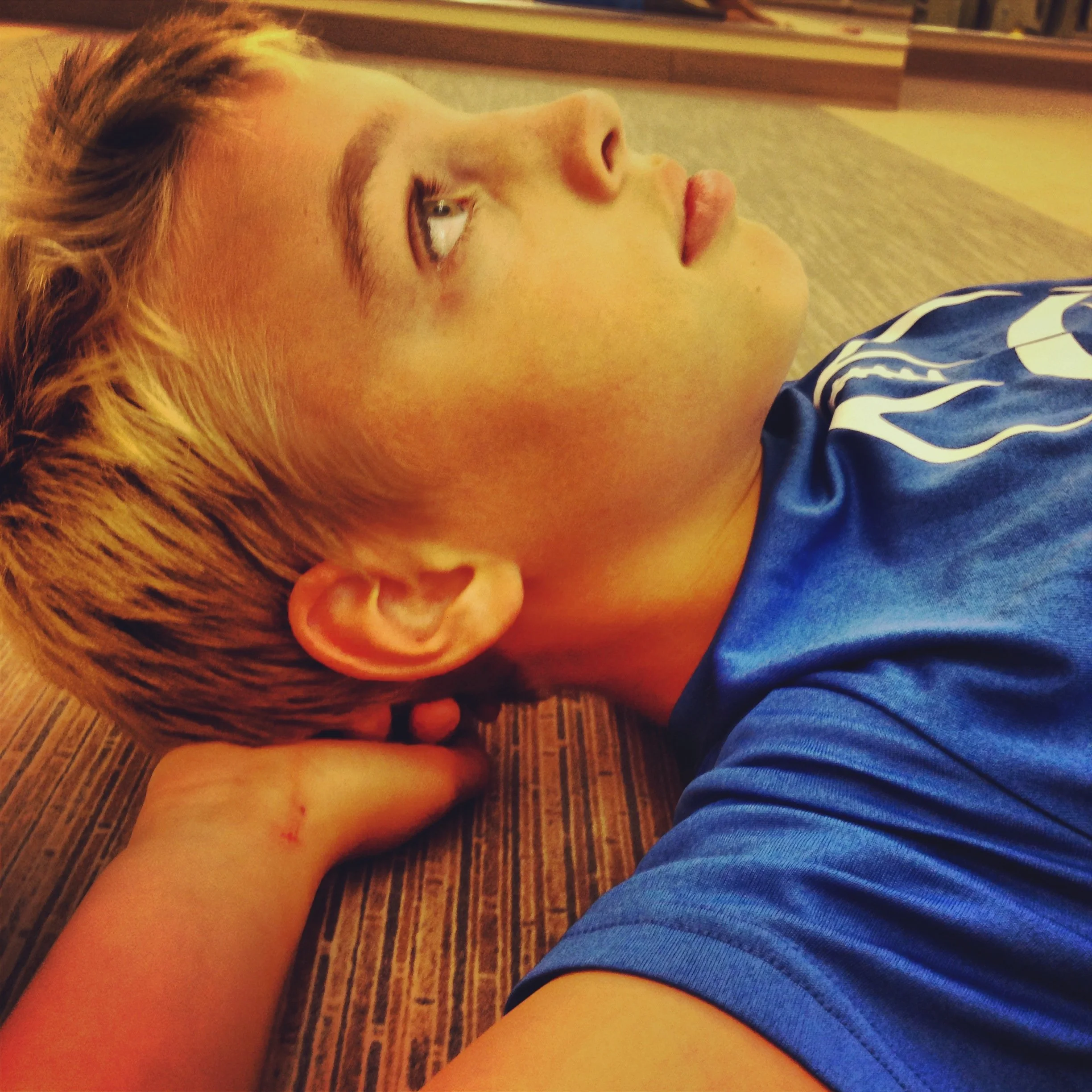

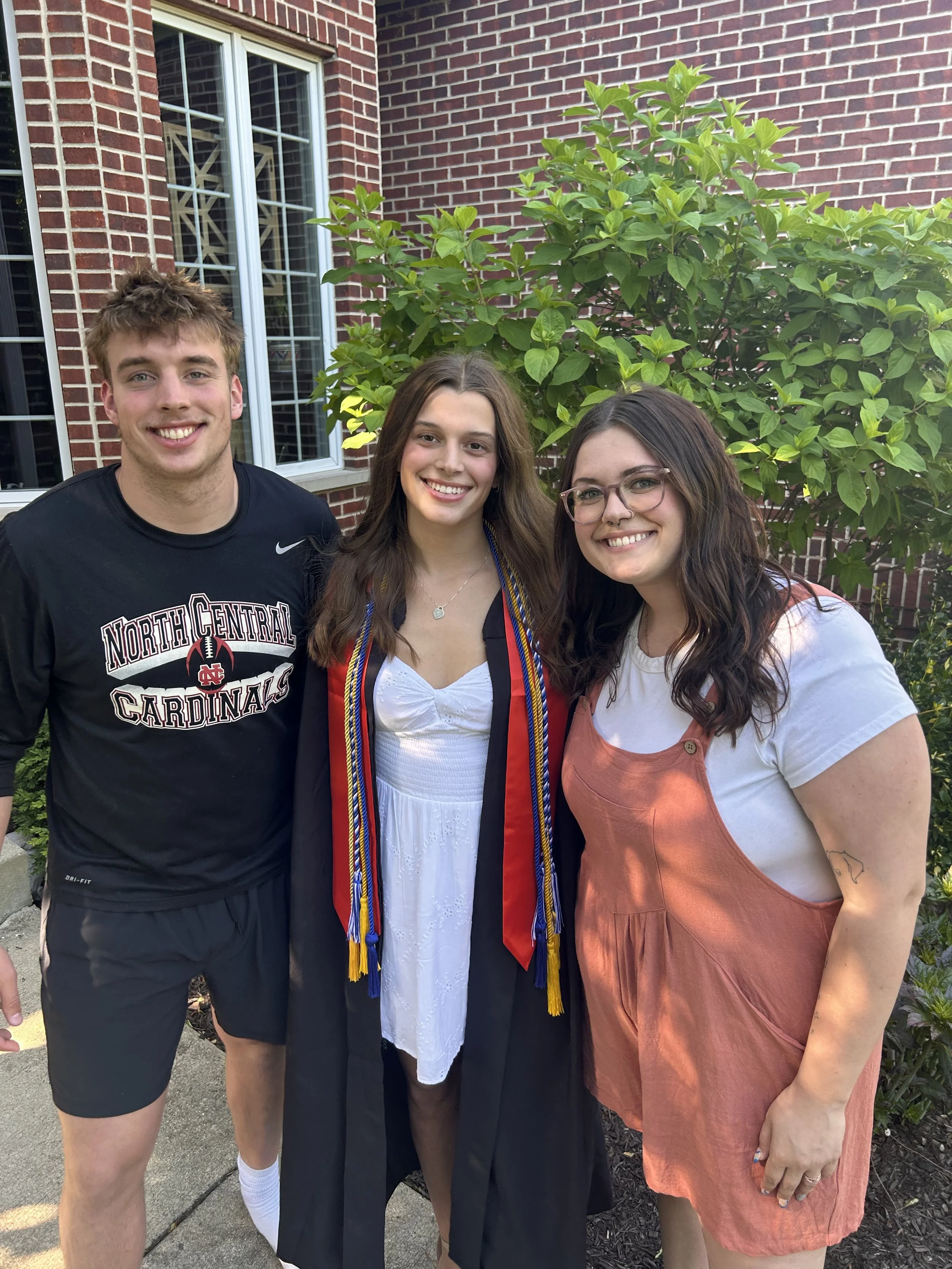
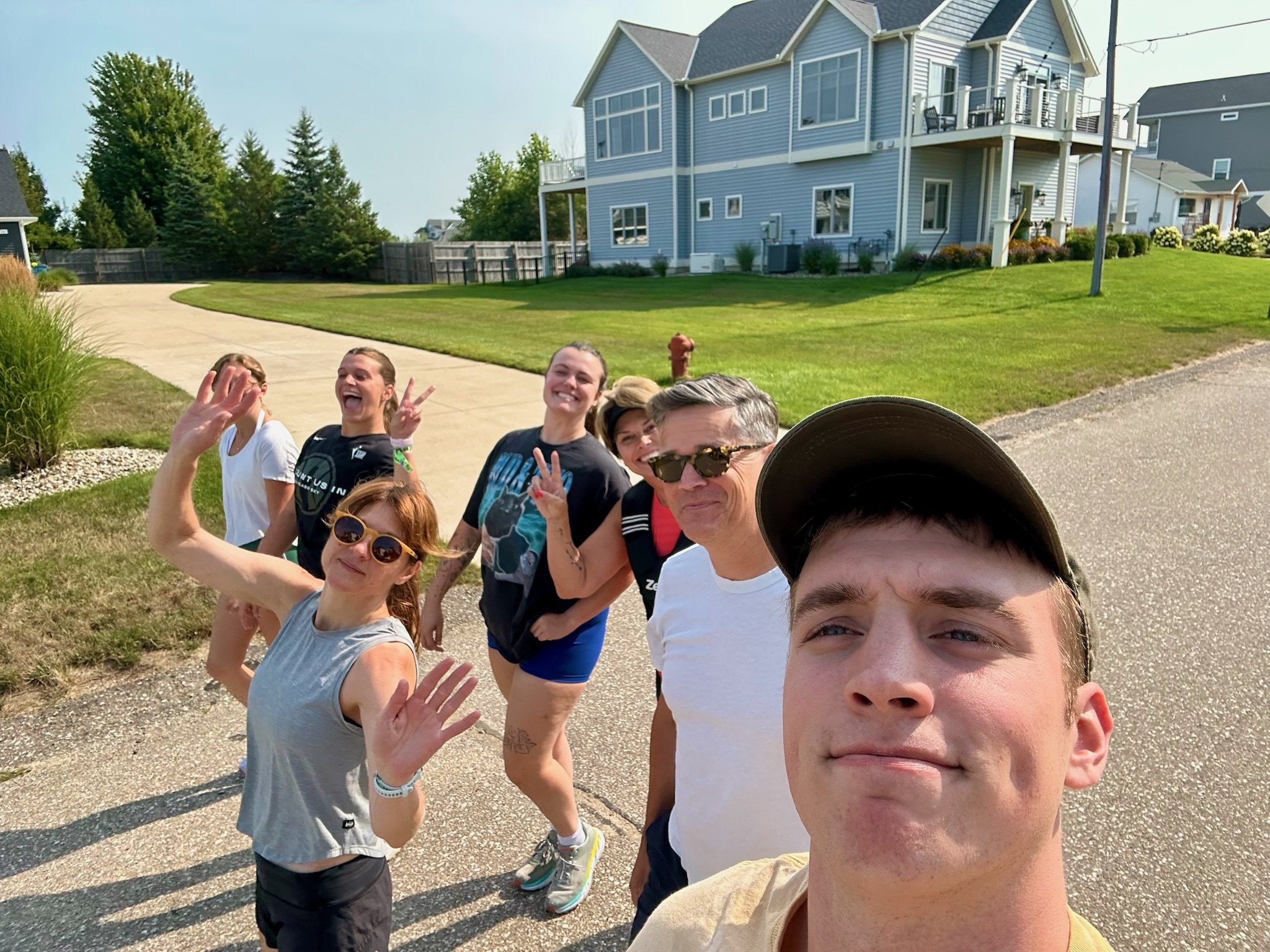
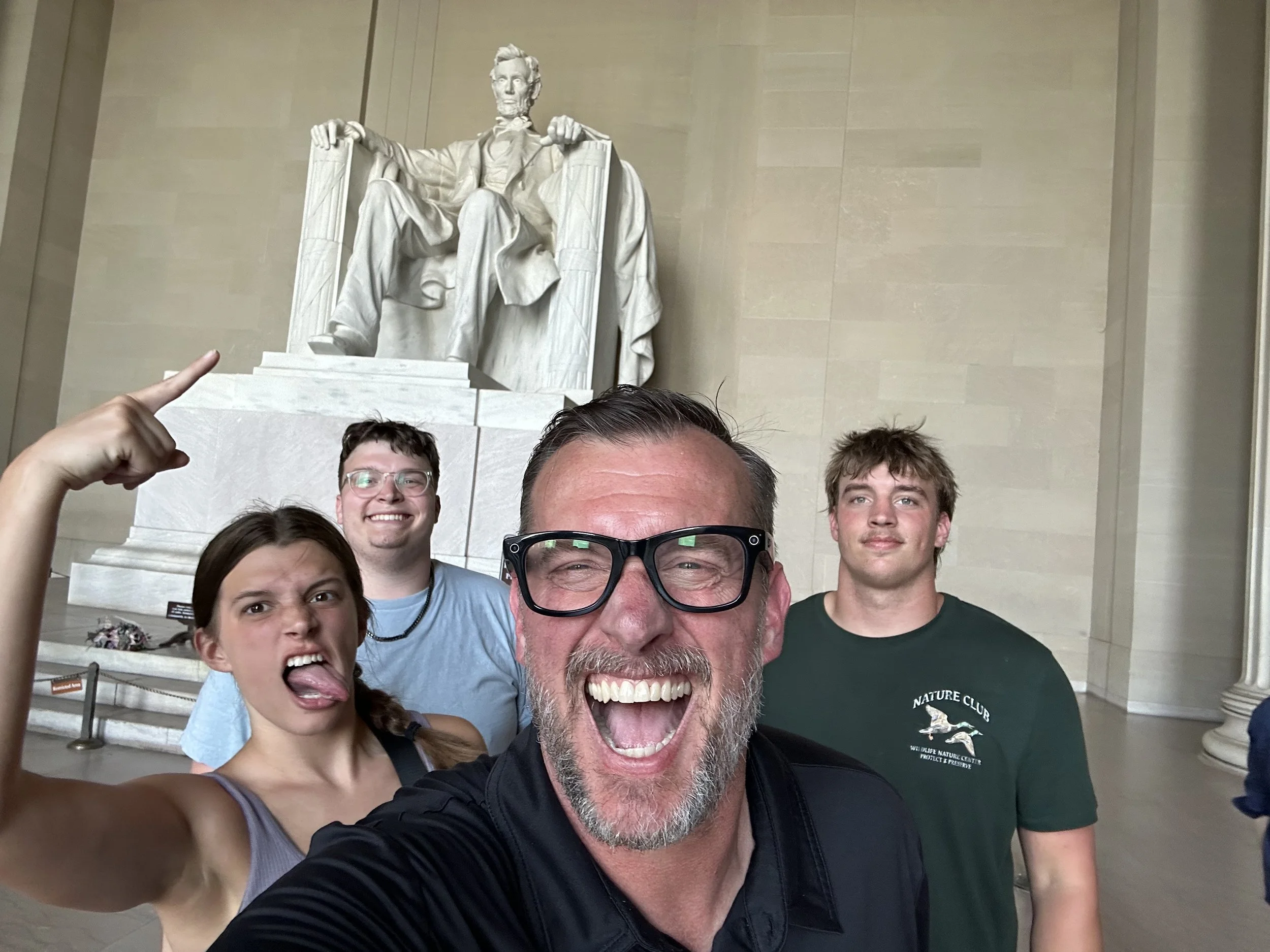
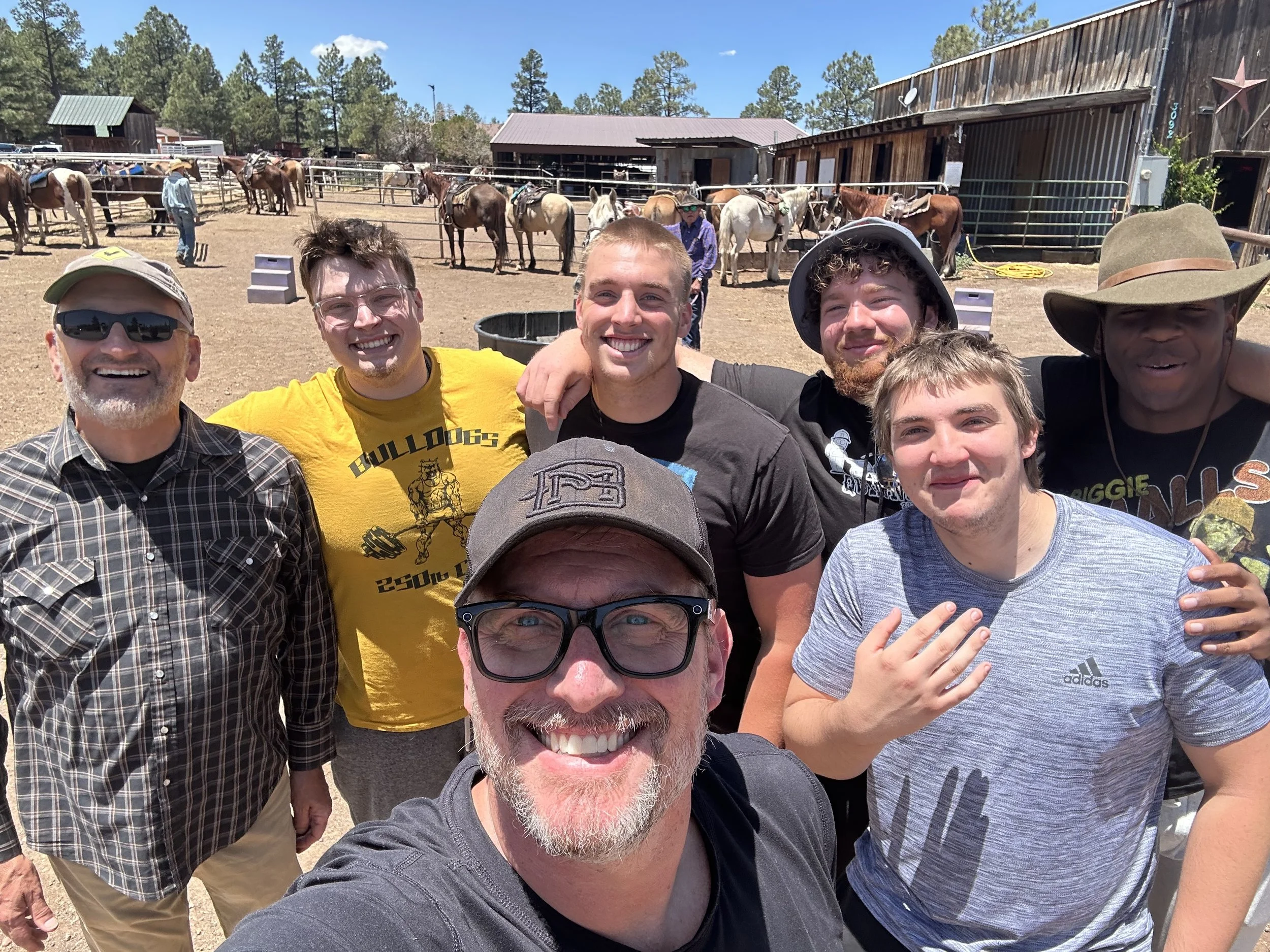
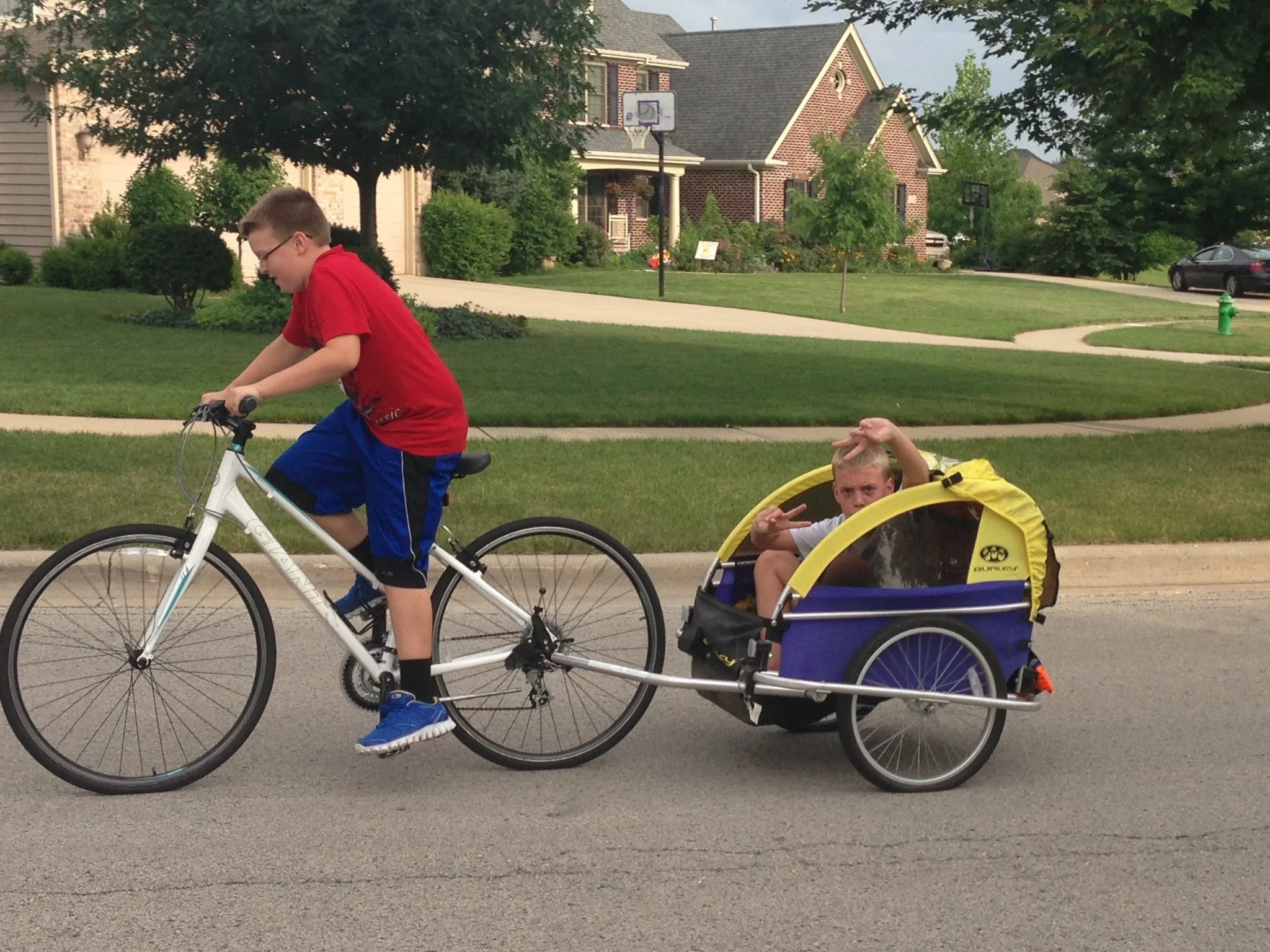
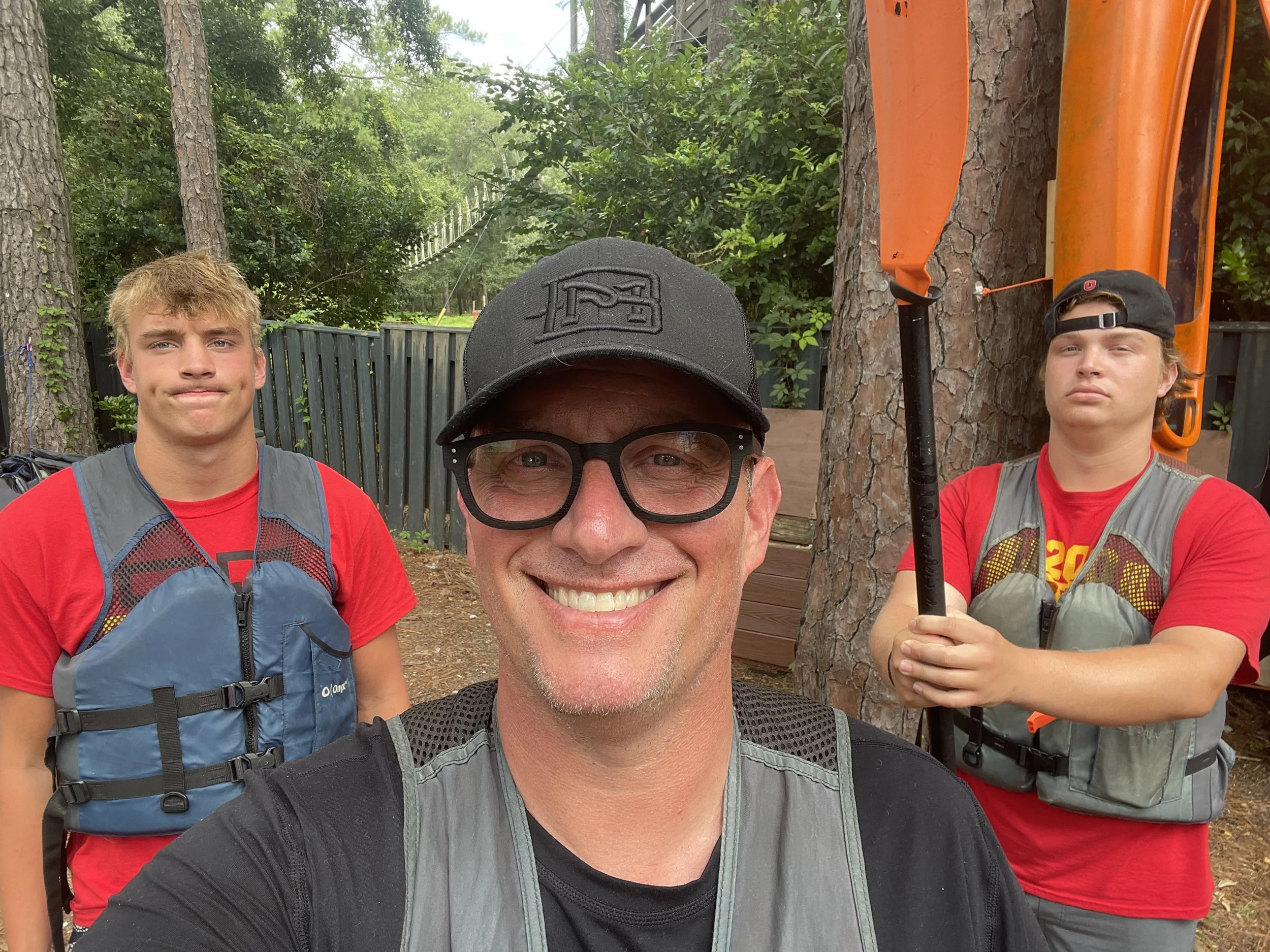
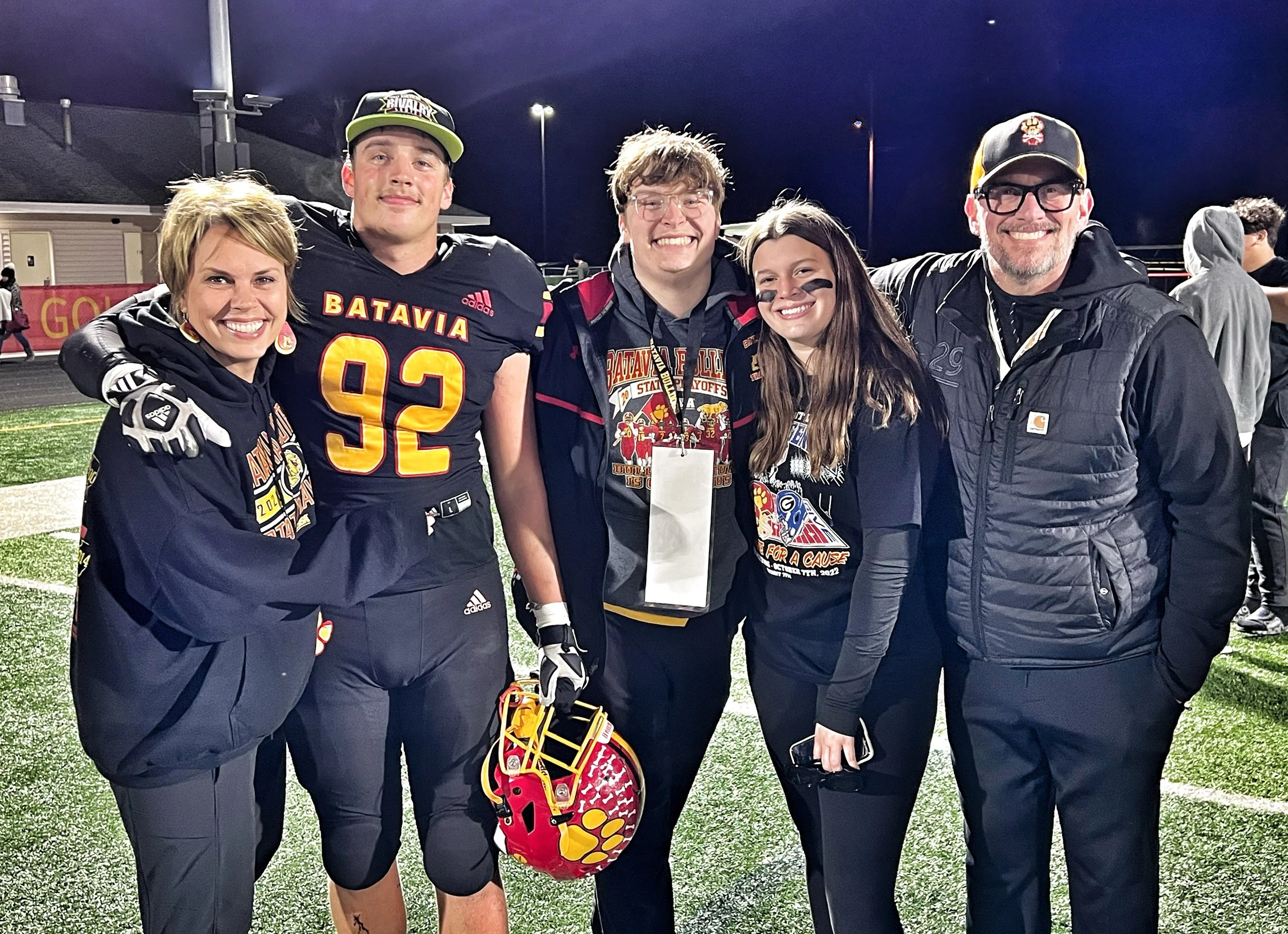
What We’re Learning
Quinn is older now. So are we. And looking back, we can see it more clearly.
We know that:
Being loud doesn’t mean being fine
Birth order can shape how seen (or invisible) a kid feels
The kid who gets the least of your worry might carry the most weight
And maybe most of all:
Being present isn’t just about being there.
It’s about noticing. Asking twice. Listening without fixing.
Stats That Matter
Middle children are 30% more likely to describe themselves as overlooked compared to oldest or youngest siblings (Psychology Today)
67% of Gen Z say they define success more by emotional wellness than traditional achievement (Pew Research)
Over 33% of youth athletes experience injuries that change their sports trajectory, and over 70% of them report feeling misunderstood by coaches or parents in recovery (American Academy of Pediatrics)
One More Thing
If you’re raising a middle kid, a strong kid, a loud kid, or any kid, really, we hope this episode and reflection remind you of this:
Sometimes, they don’t need advice. They just need to be believed.
Sometimes, they don’t need more direction. They just need to know you see them.
We missed it for a while. But we’re trying to show up differently now.
Thanks, Quinn, for helping us hear the quiet parts, even when you were shouting.
Running with you,
Justin & Sarah
25 Years, One Business, and a Whole Lot of Life: Reflections on Building Rule29 Together
Starting a business while raising a young family wasn’t easy, but it shaped everything. In this episode of Running Ahrens, we share how Rule29 began, what we learned, and what it really took to build a life and business together.
When we sat down to record this episode of Running Ahrens, we honestly weren’t sure how it would go. We’ve told pieces of the Rule29 story before, over coffee, at conferences, on walks with friends. But this was the first time we both sat down together to really unpack it. Start to finish. No script. Just the truth.
And wow, did it bring up a lot.
There were laughs (employee attire flashbacks), unexpected tears, and a whole lot of “do you remember that?” moments. But more than anything, this episode reminded us of just how much we’ve built, learned, survived, and shared, together.
The Power of Looking Back
Reflecting on the early days, starting Rule29 while pregnant, navigating unpredictable cash flow, running a business from our unfinished basement, was humbling. We didn’t have a roadmap. We had each other, a shared vision (most of the time), and a whole lot of grit. Looking back now, it’s easy to see the lessons. But back then? It was mostly late nights, hard conversations, and figuring it out as we went.And yet, we’d do it again.
Because even though it was hard, it was ours.
Gratitude in the Grit
We are deeply grateful, to the team members who joined us when we could barely pay ourselves, to our families who helped us juggle babies and budgets, and to each other. There were seasons we carried different loads, and times we didn’t feel seen in the work. But there was always respect, even when we were stretched to the edges of our capacity.
This episode made us realize how rare it is to go through that kind of professional and personal journey side by side, and still be laughing (mostly) about it on the other side.
If You’re Building Something Together…
Here are a few takeaways we’d share with any couple or partners trying to grow something meaningful without losing themselves, or each other, along the way:
1. Have the hard conversations early
We wrote a contract to protect our roles, responsibilities, and expectations. It felt odd at the time, but it saved us more times than we can count. Get aligned. Write it down. Revisit it often.
2. Know your strengths—and your limits
One of us is a big-picture dreamer (hi, Justin). The other is the operational rock (that’s Sarah). When we leaned into what we each do best, the business thrived. When we tried to do everything together? Not so much.
3. Separate the business from the marriage (when you need to)
Sometimes the biggest gift you can give your relationship is stepping away from the business. Sarah’s decision to leave Rule29 was incredibly hard, and exactly what we both needed to grow in new ways.
4. Celebrate the little wins
We were often so focused on the next milestone that we forgot to acknowledge how far we’d come. Every client, every hire, every late-night breakthrough mattered. Looking back, those were the moments that built our legacy.
5. Support doesn’t always look the same
One of us might be out front while the other holds everything together behind the scenes. It doesn’t mean one role is more important, it just means you’re on the same team, playing different positions.
The Story Continues
Rule29 is still growing. So are we. And though we’re no longer in the trenches of the day-to-day together, the foundation we built is still solid, and full of memories we’re incredibly proud of.
We hope this episode offers a little hope, a few laughs, and maybe even a gentle reminder: you don’t have to have it all figured out. You just have to keep showing up, for the work, and for each other.
Thanks for being part of this story with us.
With gratitude,
Justin & Sarah
What Becomes of Us After the Breaking
This conversation with Kelly reminded us that becoming isn’t a finish line, it’s a daily choice. In this post, we’re reflecting on the truths her story brought to light: about grief, creativity, boundaries, and the courage it takes to start over.
There’s a version of life most of us imagine.
The one where the plan works, the relationships hold, and we grow into exactly who we thought we’d be.
But what happens when that version shatters?
What do we do when the marriage ends, the job disappears, the people we counted on are no longer there?
In this week’s episode of Running Ahrens, we sat down with our dear friend Kelly Allison, a brilliant creative, solo parent, and survivor of so many life-altering moments. Her story is layered, honest, and full of wisdom that’s stayed with us.
This post isn’t a recap of that conversation, it’s a reflection of what we learned from it. Because so much of what Kelly shared mirrors the quiet, messy, powerful work of becoming we’re all invited into.



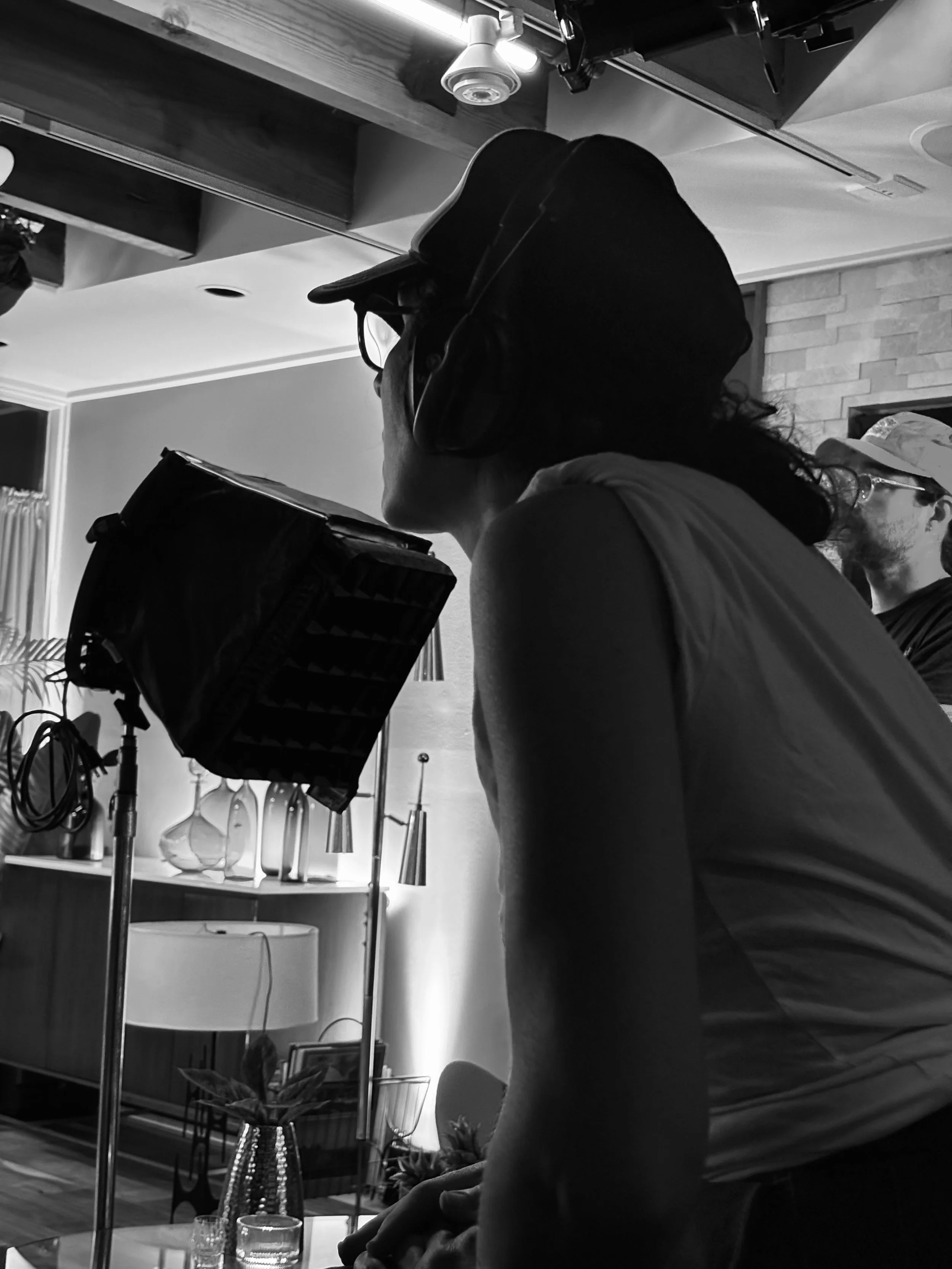
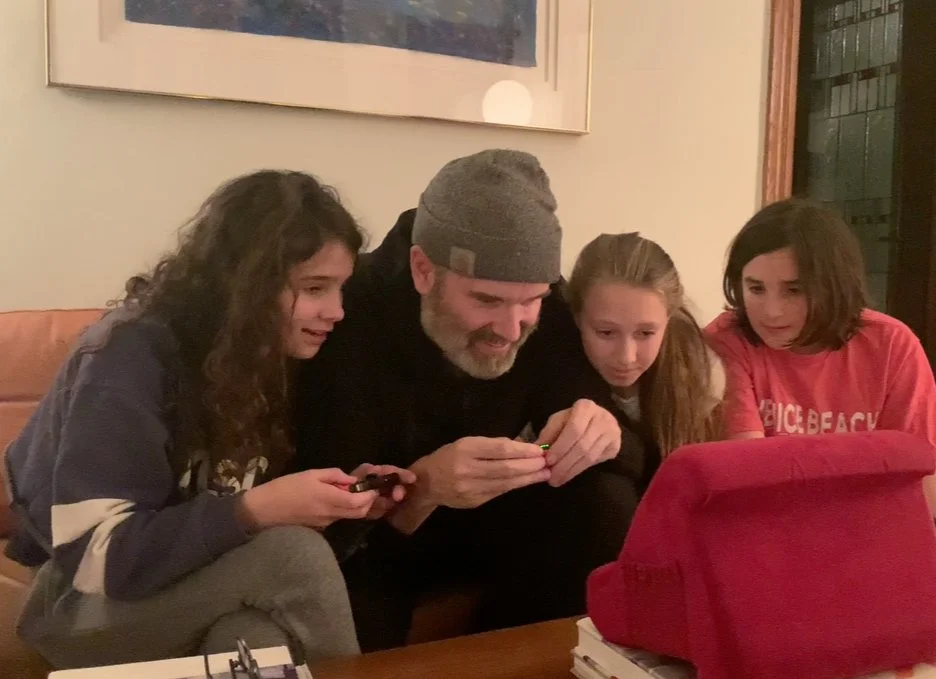

Here are some truths we’re walking away with:
1. Boundaries are a form of love.
Not everyone will understand the lines you draw.
But protecting your peace, especially when you’ve fought to find it, isn’t selfish. It’s sacred.
2. Grief doesn’t mean you’re broken.
You can love someone deeply and still feel pain, confusion, even anger in their absence.
Grief and gratitude can live in the same space. So can heartbreak and healing.
3. Rebuilding your life might look nothing like what came before.
And that’s okay.
Sometimes rebuilding means reinventing.
Sometimes it means doing the thing you were afraid to name.
Sometimes it means admitting: “I need something different now.”
4. Chosen family is real family.
The people who show up, affirm your identity, and fight for your belonging, those are your people. You don’t owe anyone access to your story if they refuse to see who you truly are.
5. Creativity is more than expression, it’s survival.
We were made to make. And sometimes, making is the only way we find our way back to ourselves.
If you’re in the thick of becoming…
We see you.
Maybe you’re setting new boundaries for the first time.
Maybe you're holding grief that no one else can see.
Maybe you’ve walked away from something, or someone, you once built your life around. Maybe you’re finally stepping into your own story.
Whatever season you're in, here’s what we believe:
You are not too much.
You are not too late.
And your story is not over.
You are becoming. And that’s enough.
This is what we took away from Kelly’s story.
And maybe, some part of it is for you too.
With grace,
Justin & Sarah
What We’ve Learned From Running Ahrens (So Far)
This started as a simple podcast. Just us, sharing our story. But it’s become something more—more vulnerable, more stretching, and honestly, more fun than we expected.
In this post, we’re reflecting on what we’ve learned so far from Running Ahrens—about connection, honesty, and why being real resonates more than being perfect.
Over the long (and much-needed) 4th of July weekend, we finally had some space to breathe. To slow down. To take a few deep, grilled-food-filled breaths and reflect on what this whole Running Ahrens journey has been so far.
The honest answer? It’s been really fun. Honestly, way more fun than we expected. And somehow more vulnerable, more stretching, and more rewarding, too.
This podcast started as a way for us to look back and talk through the mess and meaning of our story. It includes marriage, parenting, business, faith, failure, reinvention, and raising humans who don’t turn out to be jerks. We thought maybe a few people might listen. We didn’t expect the feedback, the laughter, or how many of you would say, “I thought I was the only one…”
We’re learning a lot. And we’re not just saying that to tie a bow on it. We really are.
1. Honesty resonates.
Every time we’ve hit publish on something that made our stomachs flip. Those moments where we told the harder or uncomfortable stories, admitted where we got it wrong, or talked about what we’re still trying to figure out, you showed up.
You sent messages like “That felt like my life,” or “I cried in the car,” or “My partner and I finally had the conversation we’ve been avoiding.”
We can’t even explain how meaningful that is.
Turns out, people don’t need or want perfect. They just need permission to be real.
2. You’re listening and we’re so grateful.
We never expected to build this kind of connection, and we definitely didn’t expect to make people laugh as much as we have. (Special thanks to the person who made a drinking game out of how often we say “for sure.” We see you.)
Whether it’s awkward stories from our early years, sideline parenting confessions, or a little sarcasm thrown in the mix, we’ve realized laughter is a gift. Especially when it shows up alongside real conversation.
If you’ve shared an episode with a friend, quoted something back to us, or just quietly listened while folding laundry or walking the dog, Thank you.
You make this worth doing.
3. We’re still learning. Every single episode.
We’re not coming to this with answers. That’s not our lane. We’re showing up with questions, with hindsight, and with a willingness to keep going.
And every time we sit down to record, we walk away a little more awake to something we didn’t know we needed to face.
We’ve seen the impact our upbringings had on our marriage and our kids. We’ve owned where we pushed too hard in parenting. We’ve gotten clearer about what we want this next chapter to look like. And we’re learning how to tell the truth without wrapping it in shame.
It’s been uncomfortable at times. But also deeply freeing.
4. The feedback, even the awkward stuff, makes us better.
You weren’t wrong. Our intro and outro needed help. We fixed them.
We’ve heard the vocal tics, the phrases we repeat, the moments we talk over each other. We cringe too. But the fact that you’re listening close enough to notice? That means something.
You’re not just tuning in. You’re in this with us. That’s more than we could’ve asked for.
We started this podcast so we could do something together and hoping it might create space for honest conversations. What it’s done is remind us that none of us are doing life alone. That we all need community. And that sometimes, sitting in the mess together is more healing than pretending we’ve got it figured out.
So thank you. For being here. For cheering us on. For letting us take this next step with you.
We’re just getting started and we’re so glad you’re running along with us.
If there’s a topic you’d love to hear us tackle, something real, something funny, something you’ve been chewing on, let us know. Message us, email us, or shout it out from the sidelines. We’d love to bring your questions, stories, and “oh man, same” moments into the conversation.
Big love,
Sarah and Justin
EP 8: Baby of the Family, Boss of the Moment: Ava Takes the Mic
What happens when you hand the mic to the youngest in a big, loud family? In this episode, Justin and Sarah welcome their daughter Ava for a truly unfiltered conversation. From sibling secrets and sports parent confessions to the realities of growing up with entrepreneurs as parents, nothing is off the table. Ava shares what it really takes to be heard in a family full of strong personalities, and why being the youngest can mean being both the funniest and the fiercest.
Honest, funny, and surprisingly moving, this episode shines a light on the unique challenges and gifts of the youngest child, the evolution of parenting, and the power of listening to your kids’ stories. Whether you’re raising your own crew, managing a family business, or just looking for a good laugh, you’ll find encouragement and real connection here.
If you have been listening to Running Ahrens for any length of time, you know we are not shy about sharing the real stories. We talk about the messy, beautiful, laugh-until-you-cry moments that come with running a business, parenting four wildly different kids, and trying (with varying degrees of success) to keep our marriage and sanity intact.
This week, we tried something brand new. For the first time, we flipped the mic and handed it to one of our kids. And not just any kid, our youngest, Ava.
If you know Ava, you know she does not tiptoe around a topic. She brings honesty, energy, and the kind of perspective only the youngest child can offer in a big, busy, sometimes chaotic family like ours.
What Happens When Your Kid Interviews You?
Let’s be real: we thought we were prepared. After all, we have spent years reflecting on our parenting wins, failures, and all the moments in between. But nothing prepares you for hearing your child, now an independent, outspoken young woman, describe your family, your rules, your quirks, and your mistakes right back to you, live on the mic.
We asked Ava about everything: from the infamous “haircut coverup” to the secret sibling group chats, from what it means to be “the favorite” (her words, not ours) to how the rules changed with each child. She told us what it really takes to survive (and thrive) as the youngest. It takes thick skin, quick comebacks, and the ability to find humor in just about everything.
Lessons from the Youngest
Here’s the truth: parenting is not a science. It is a series of experiments. By the time we got to our fourth, we realized we were parenting a different kid, and, if we are honest, we were different parents. The rules had loosened, some boundaries had shifted, and we learned to let go of the idea that “fair” means “the same for everyone.”
Ava reminded us that every child, especially the youngest, sees the family through a unique lens. She was not overlooked, but she did learn how to make herself heard. She owned her independence, her sass, and even her mistakes. Hearing her talk about what she would emulate as a future parent (and what she would gladly leave behind) was humbling, hilarious, and deeply rewarding.
What We Are Grateful For
We are incredibly grateful for the opportunity to listen to our kids, especially when it pushes us out of our comfort zone. Ava’s honesty and humor are gifts to our family and, we hope, to everyone listening. It is a reminder that we get to keep learning and growing alongside our children, no matter how old they get.
We are grateful for you, too, our community of listeners who are walking this journey with us. Your support, your stories, and your willingness to show up and be real with us is what makes Running Ahrens so special.
Encouragement for You
No matter what season of family life you are in, know this: you are not alone. Parenting is full of trial and error. Each child is different. Each stage requires something new from us. The best thing we can do is stay present, keep laughing, and never be afraid to listen, really listen, to the ones we love.
Invite your kids into the conversation, ask the tough questions, and don’t worry if it gets a little messy. That is where the good stuff lives.
Top Takeaways from This Episode
The youngest child often sees and experiences a different family than the oldest. Embrace those differences.
Looser rules are not always a bad thing. Each child needs something unique.
Secret sibling chats and group texts are real, and they are hilarious.
Honest conversations with your kids can be both humbling and healing.
Sometimes, the best parenting moments happen when you stop talking and start listening.
Family stories are powerful. Share them, celebrate them, and learn from them together.
There is no such thing as a perfect parent, but there is always room to be a present one.
The Real Gift: Vulnerability
Inviting Ava into this conversation was both a little scary and a lot beautiful. She challenged us, made us laugh, and gave us a glimpse into how our parenting looks from the other side. She reminded us that, at the end of the day, the legacy we are building is not about being perfect parents. It is about creating a family that is safe, supportive, and full of unconditional love (plus a healthy dose of sarcasm).
Your Turn
Whether you are raising your own crew, navigating the launch years, or simply trying to stay present for your family amid the chaos of business and life, we hope this episode encourages you to listen a little more, laugh a little harder, and maybe even hand the mic to your kids once in a while.
Running with you,
Justin & Sarah
P.S. Do not miss the end of the episode for a sneak peek at Ava’s new podcast, Ava’s Arena, where she is turning her boldness into a brand-new adventure.


